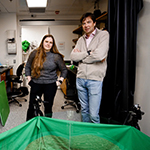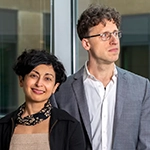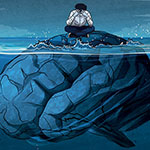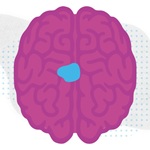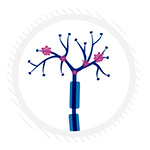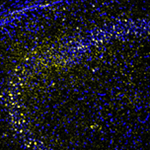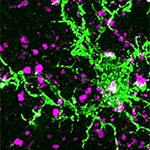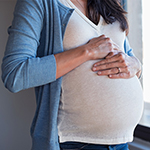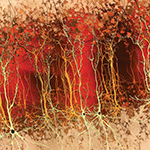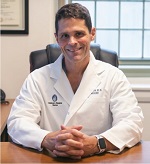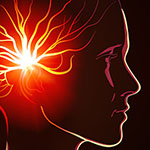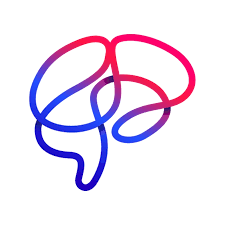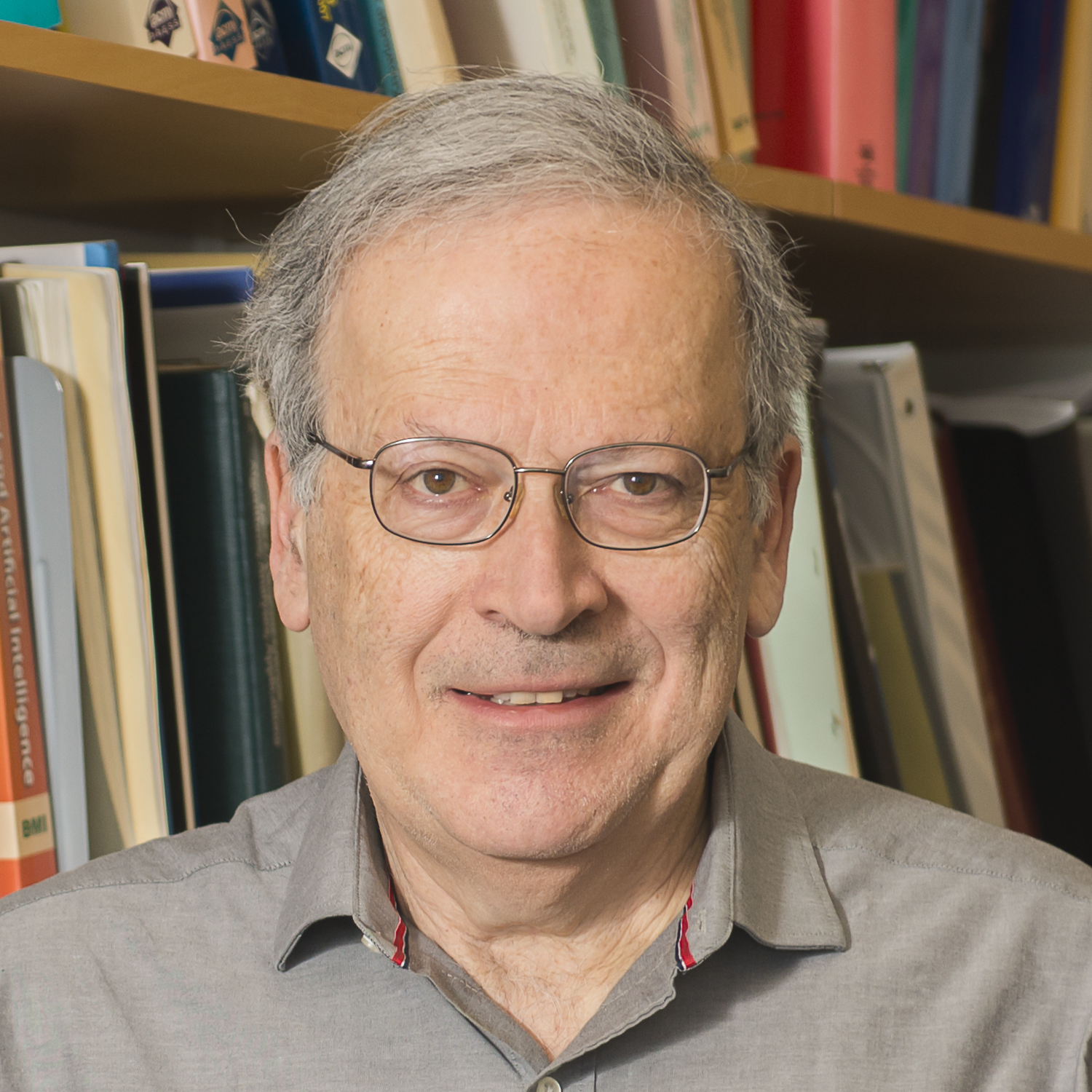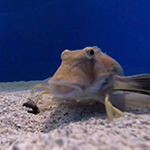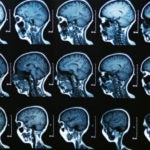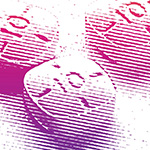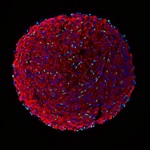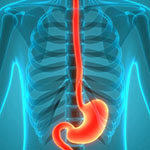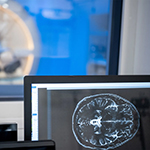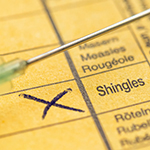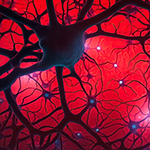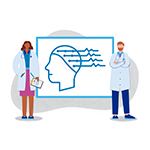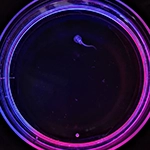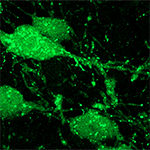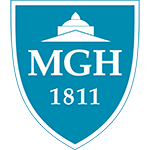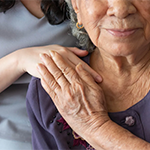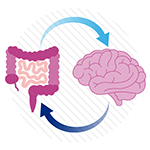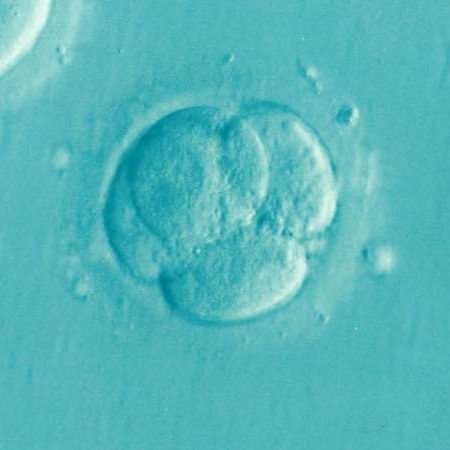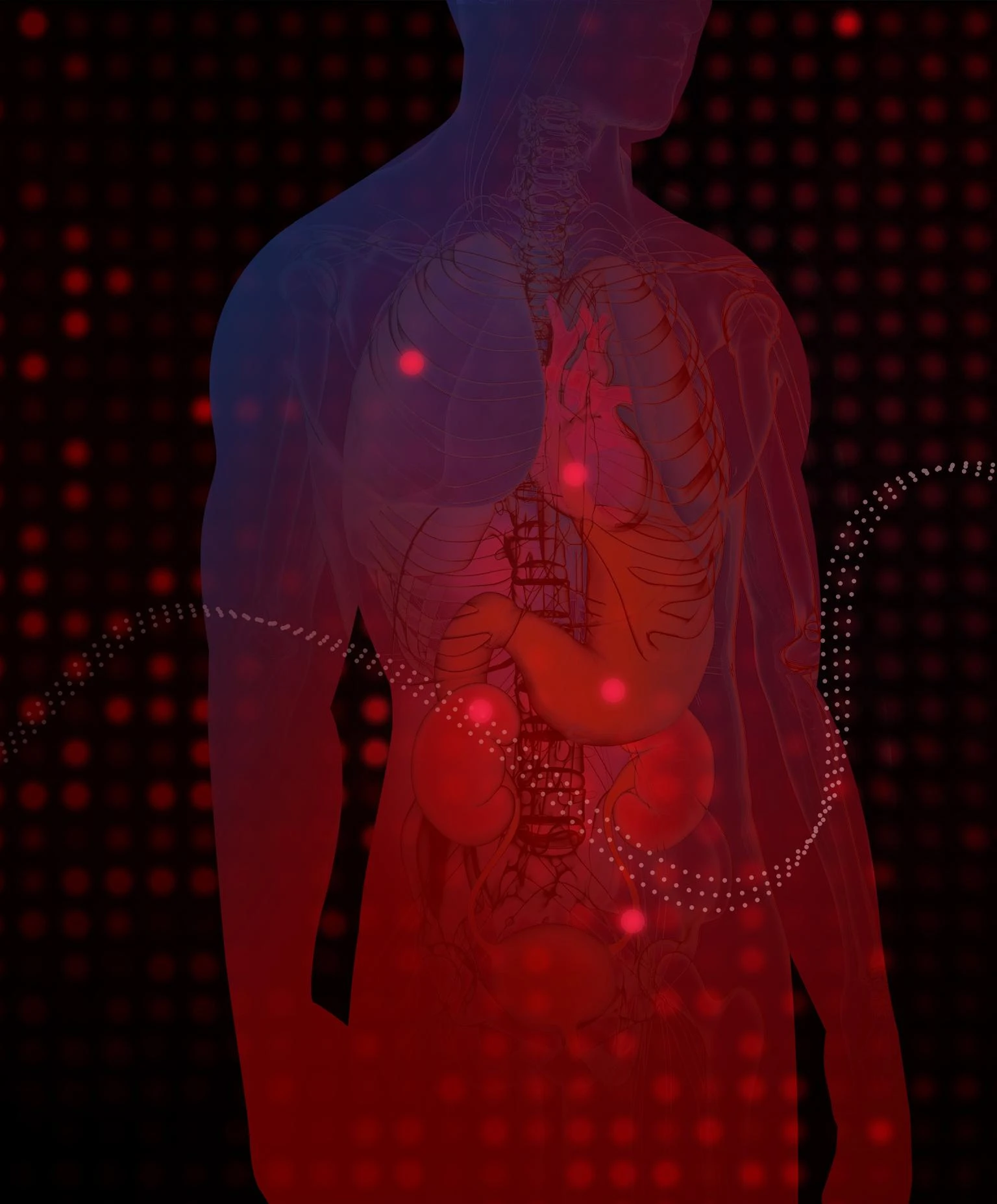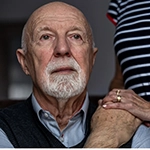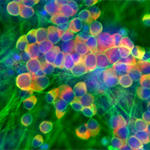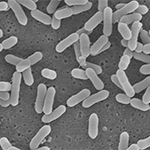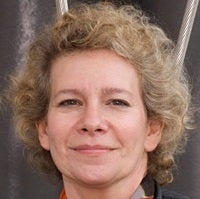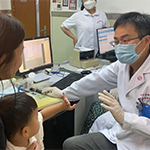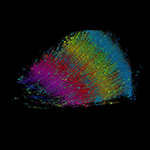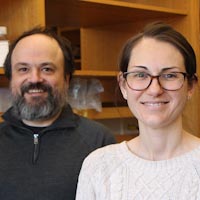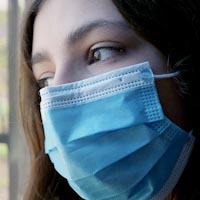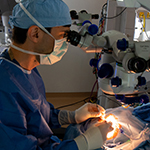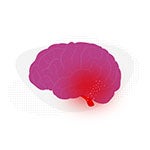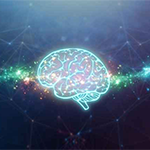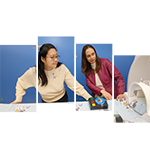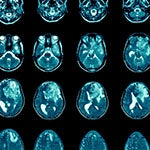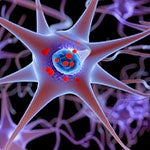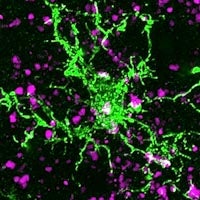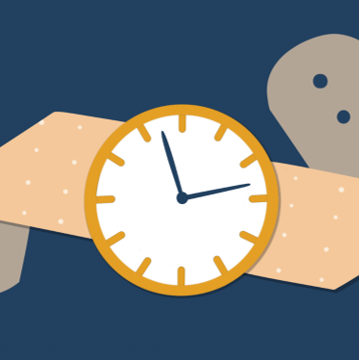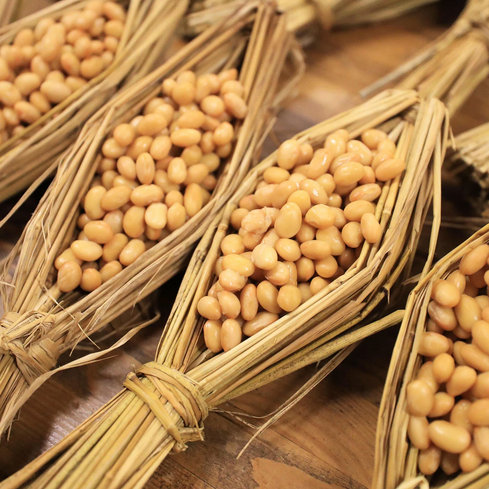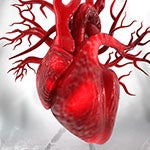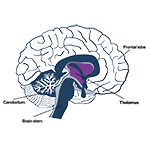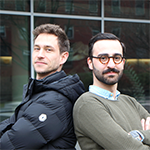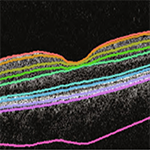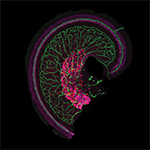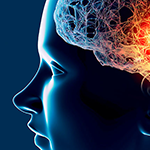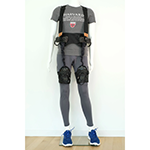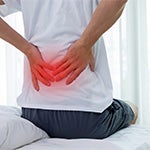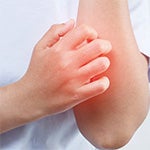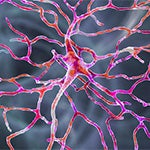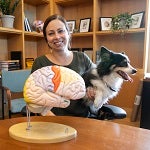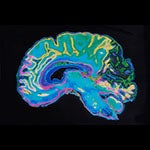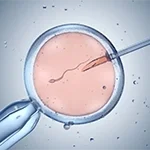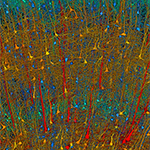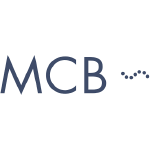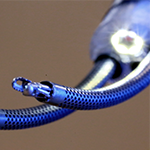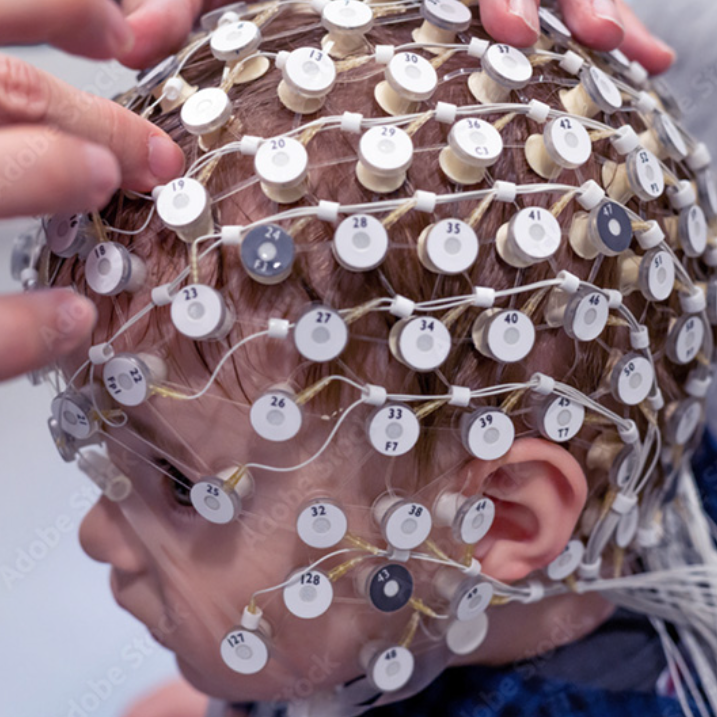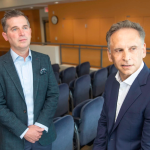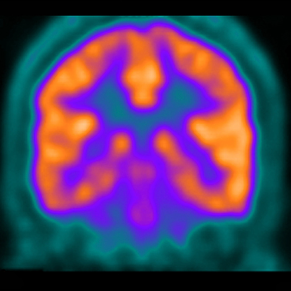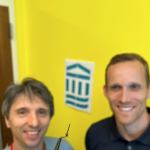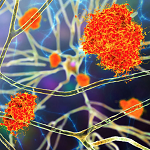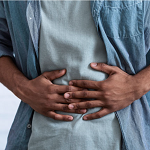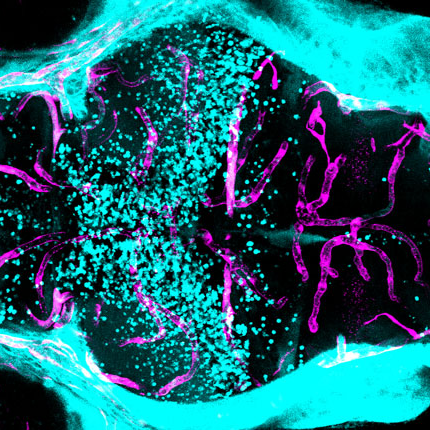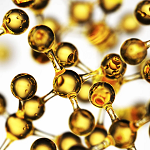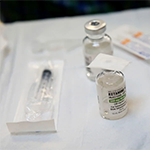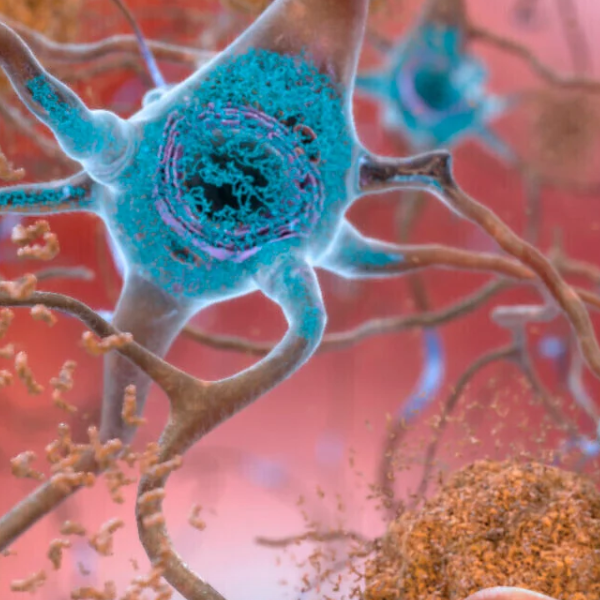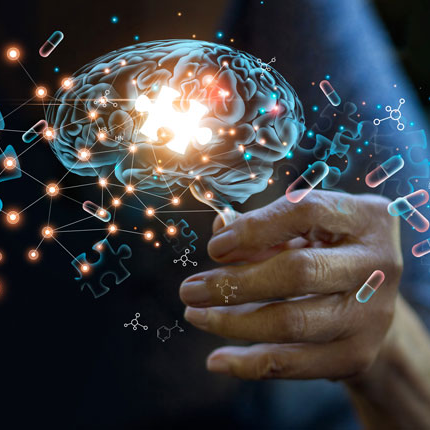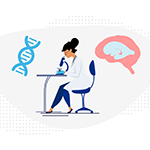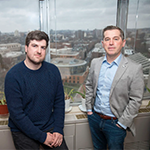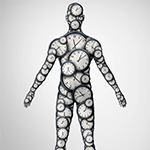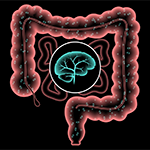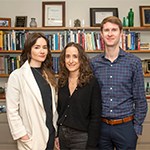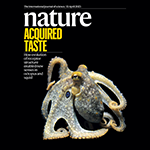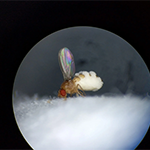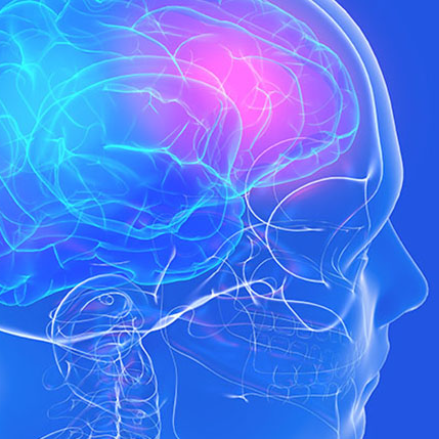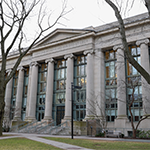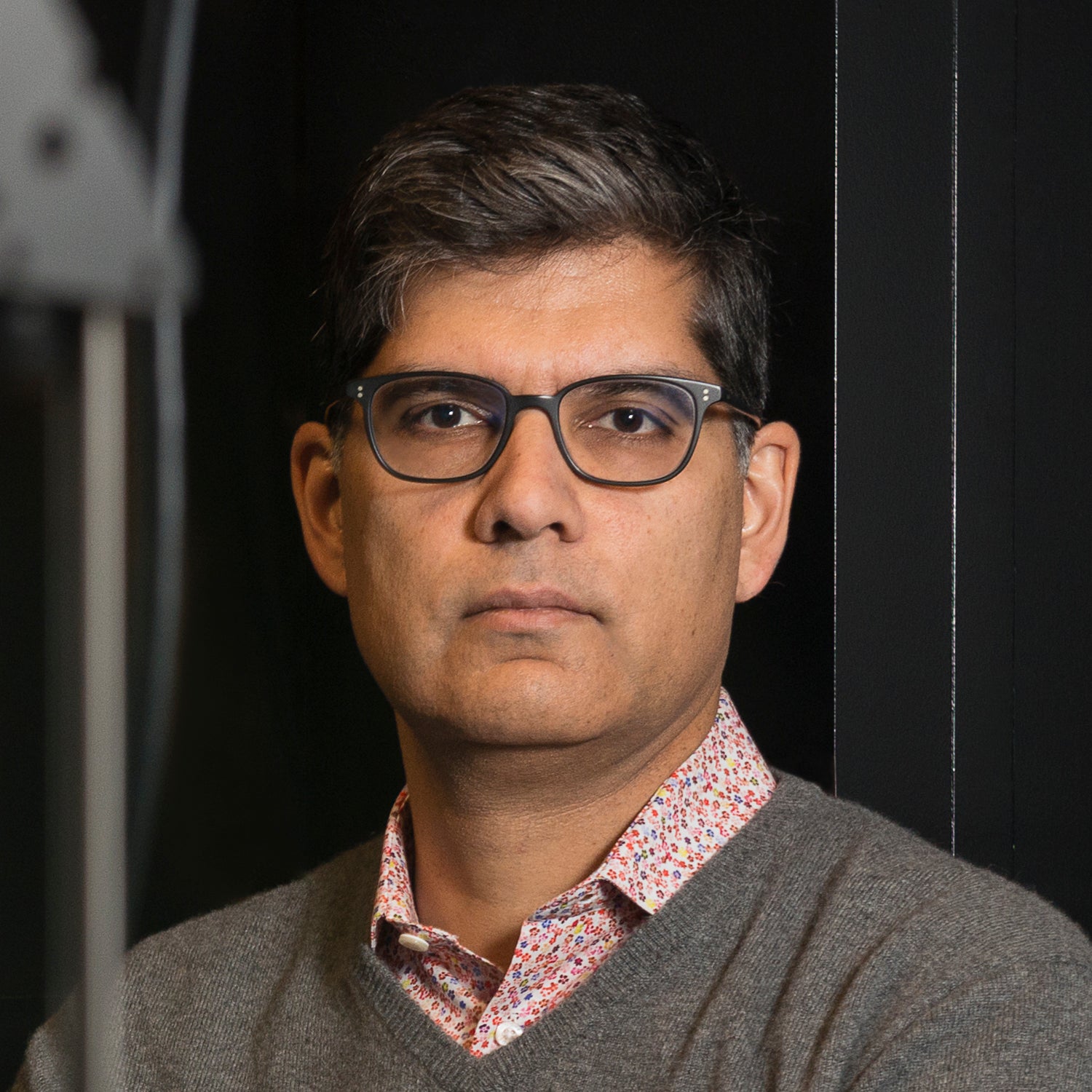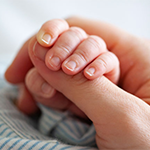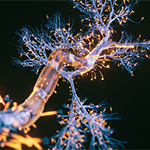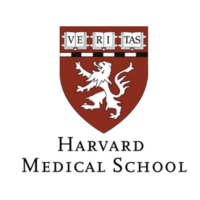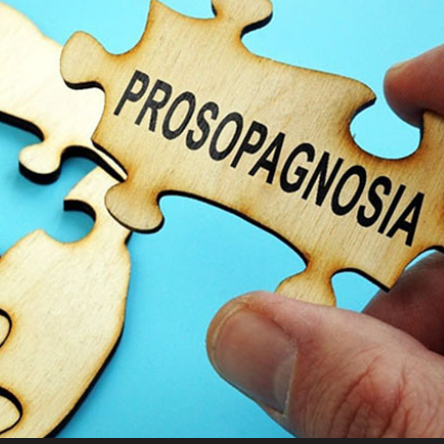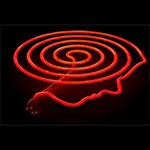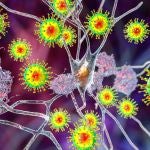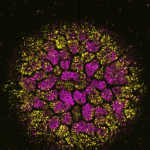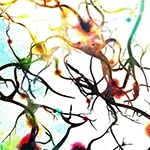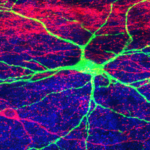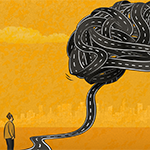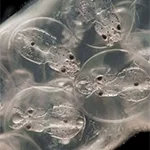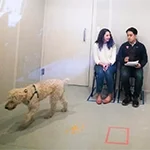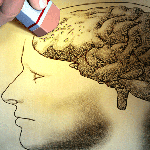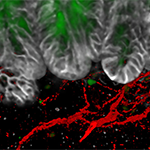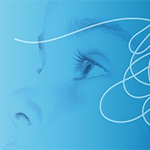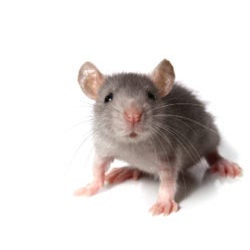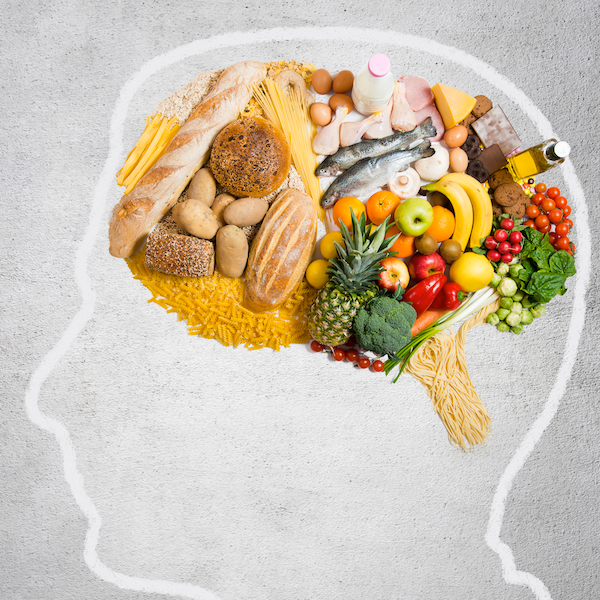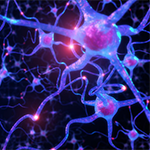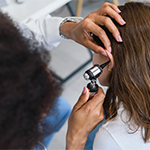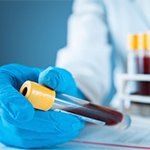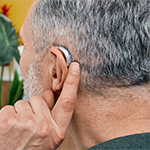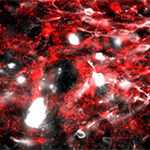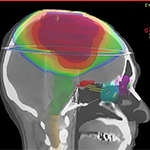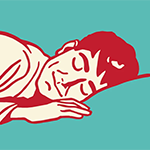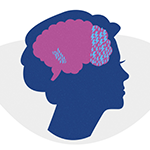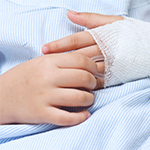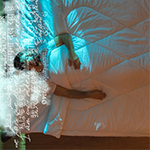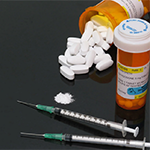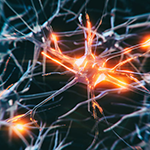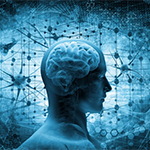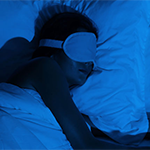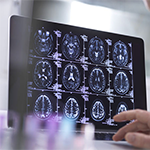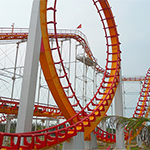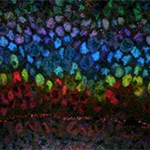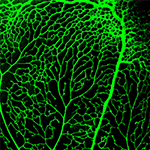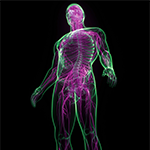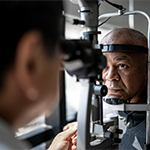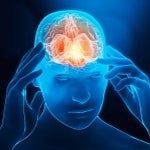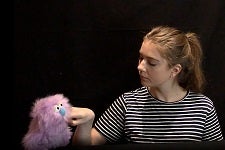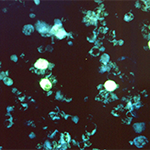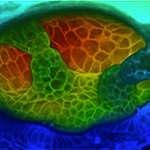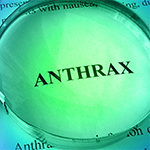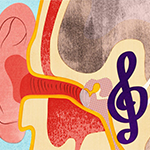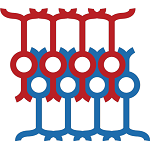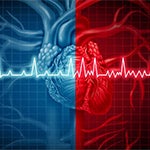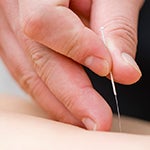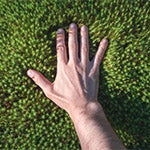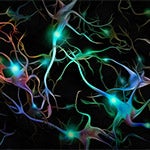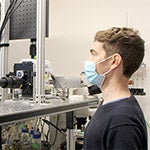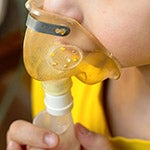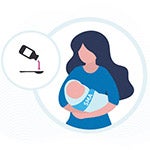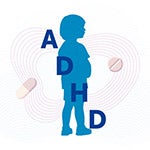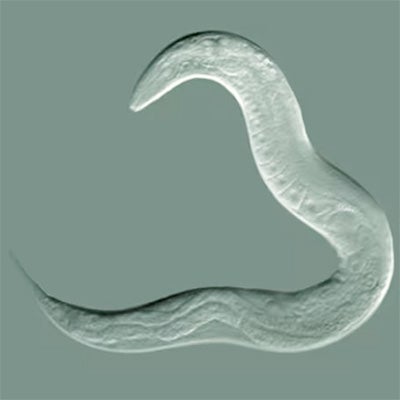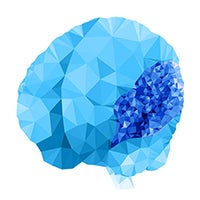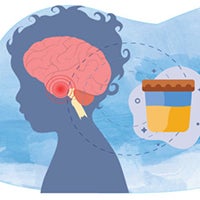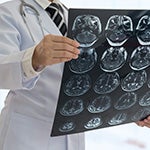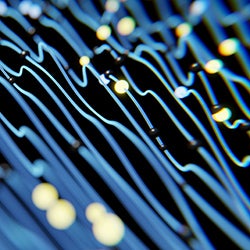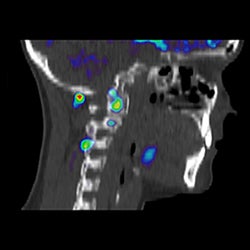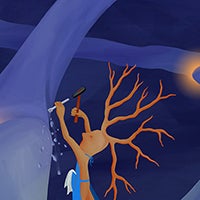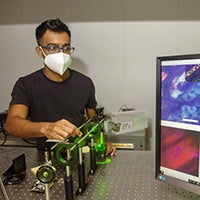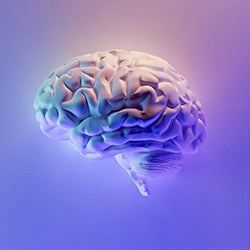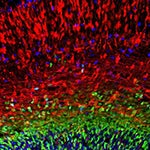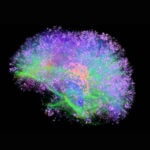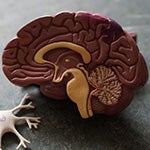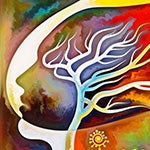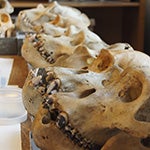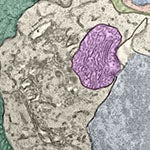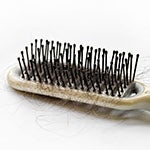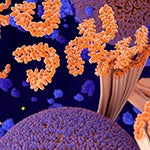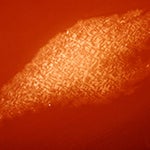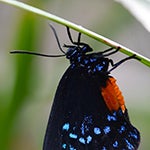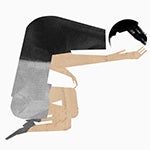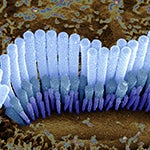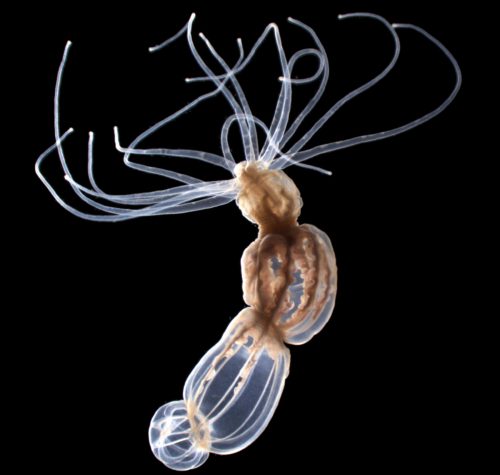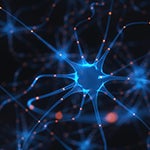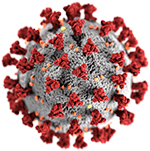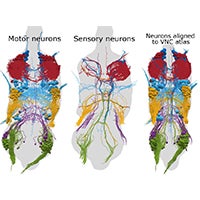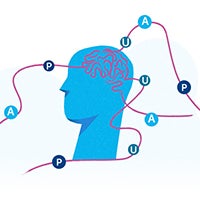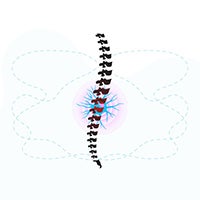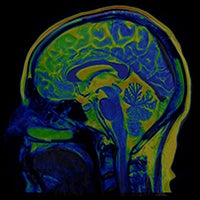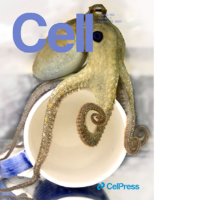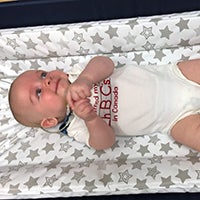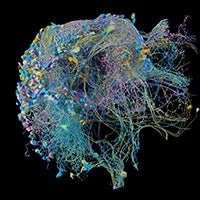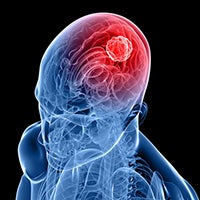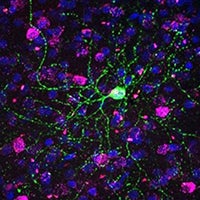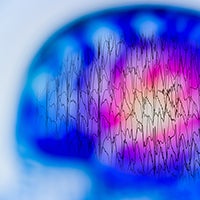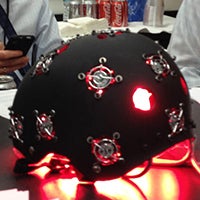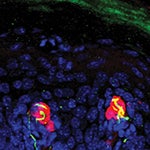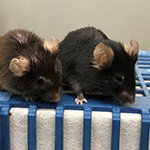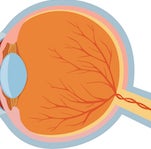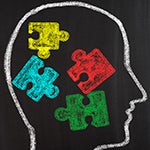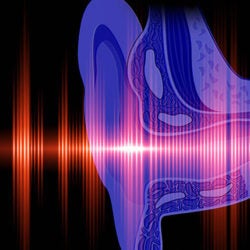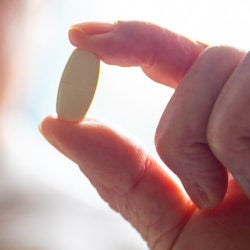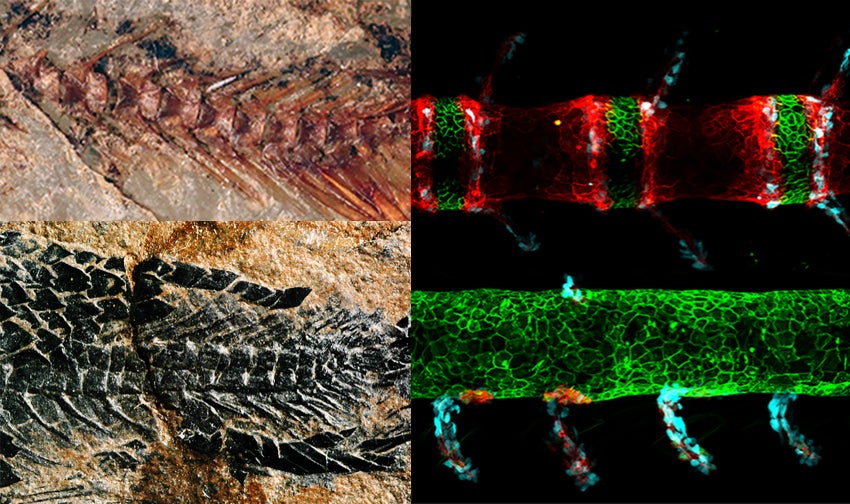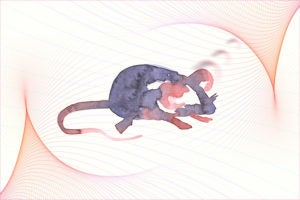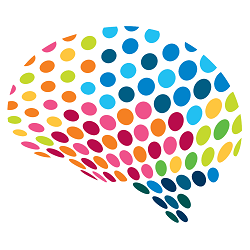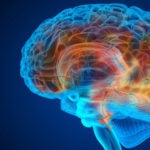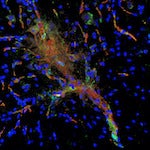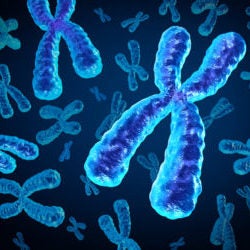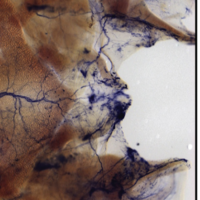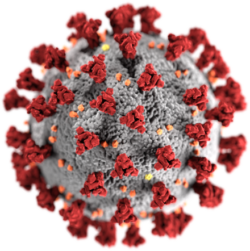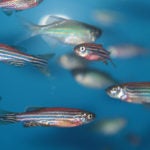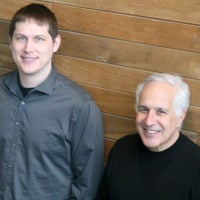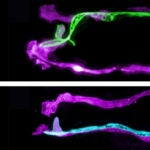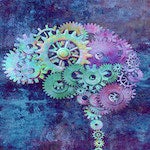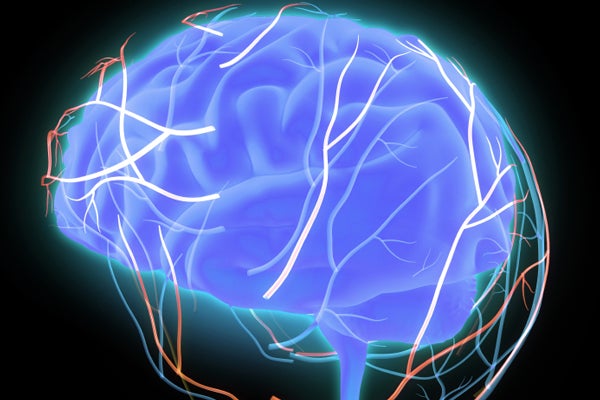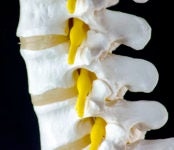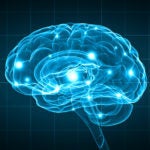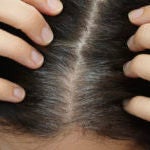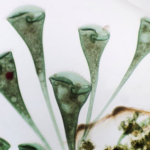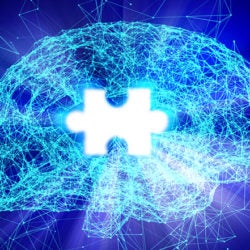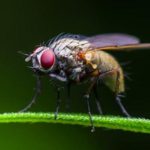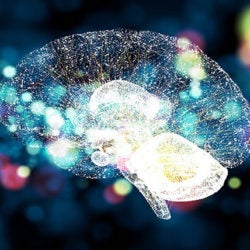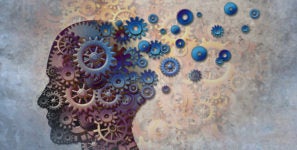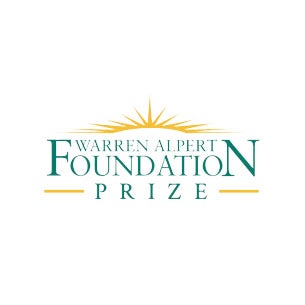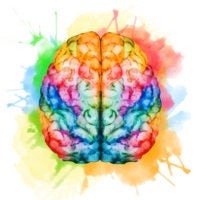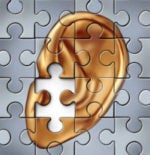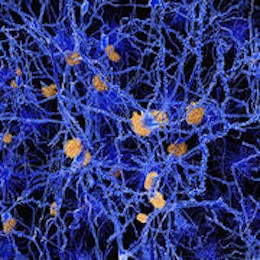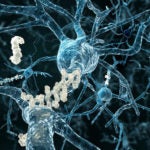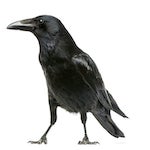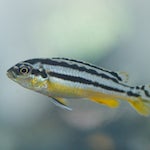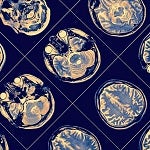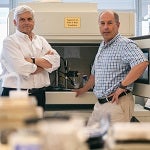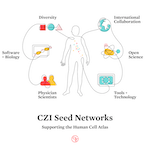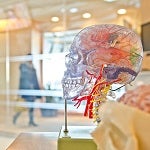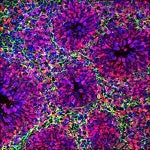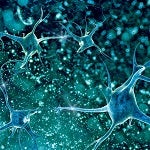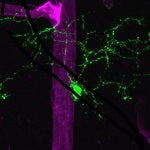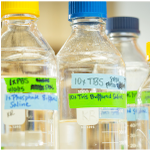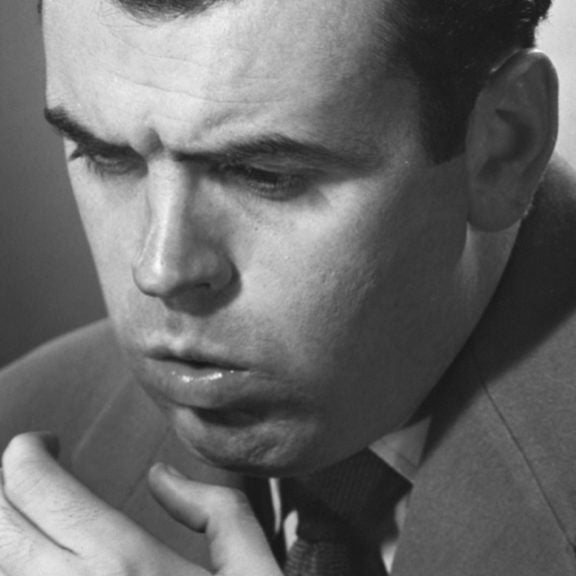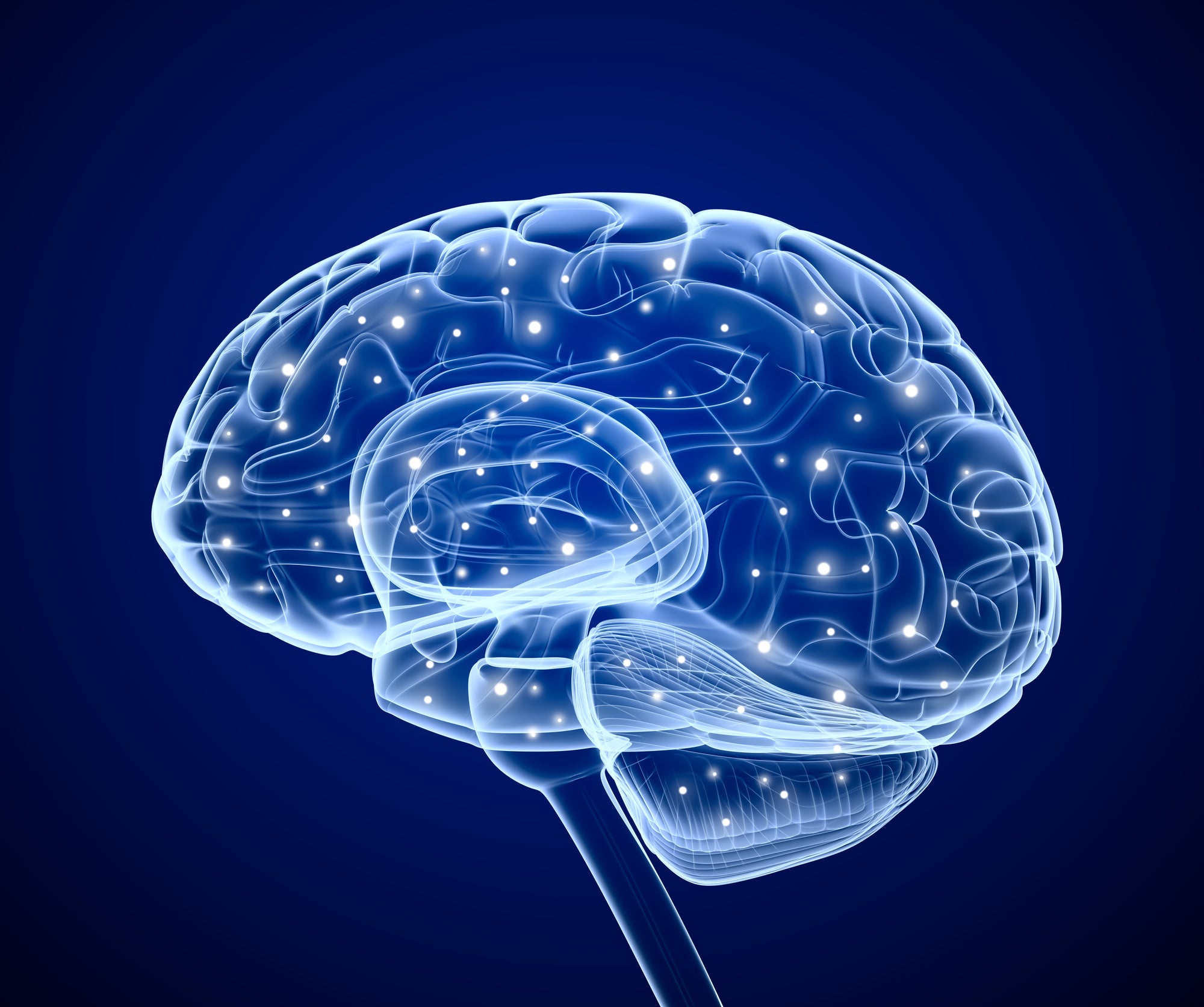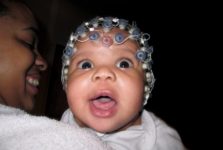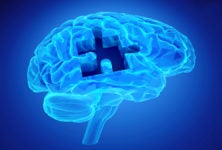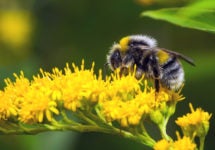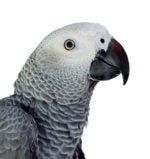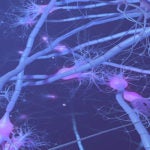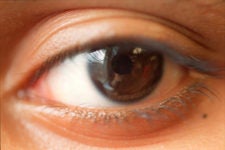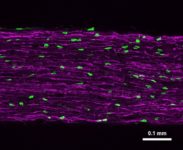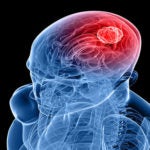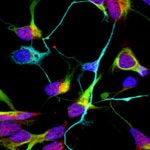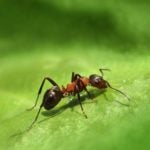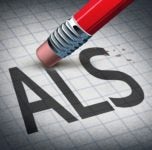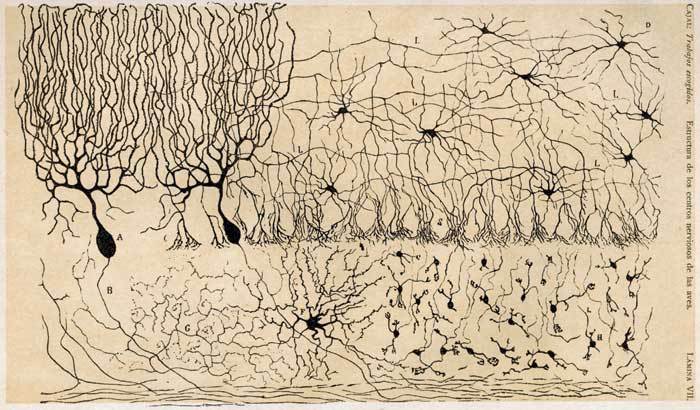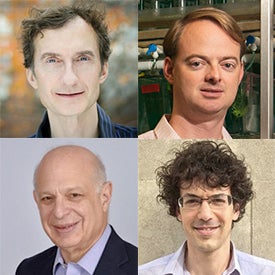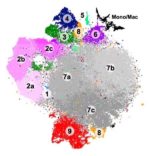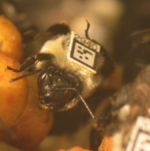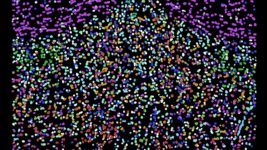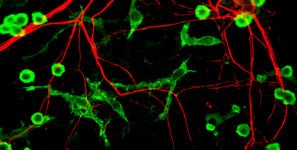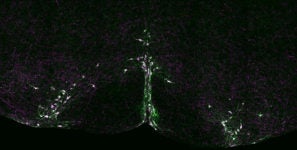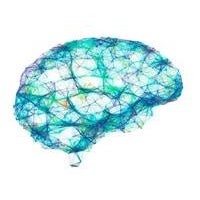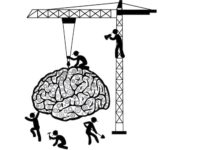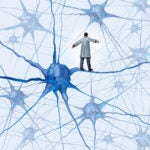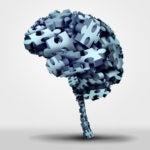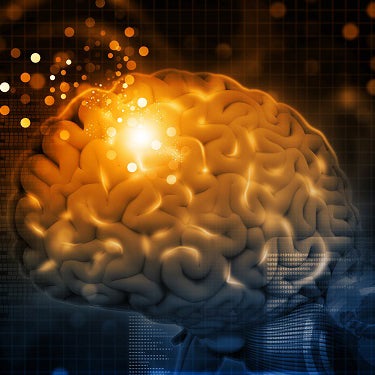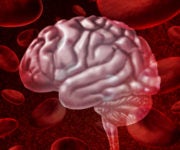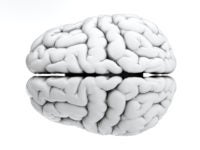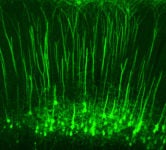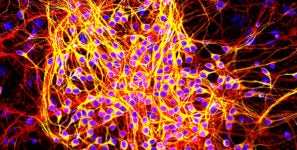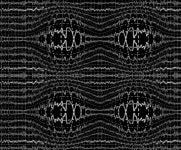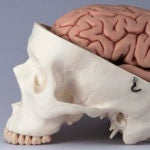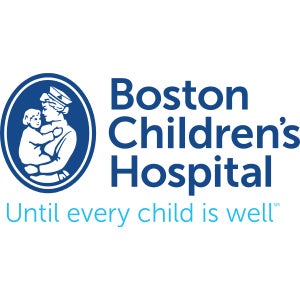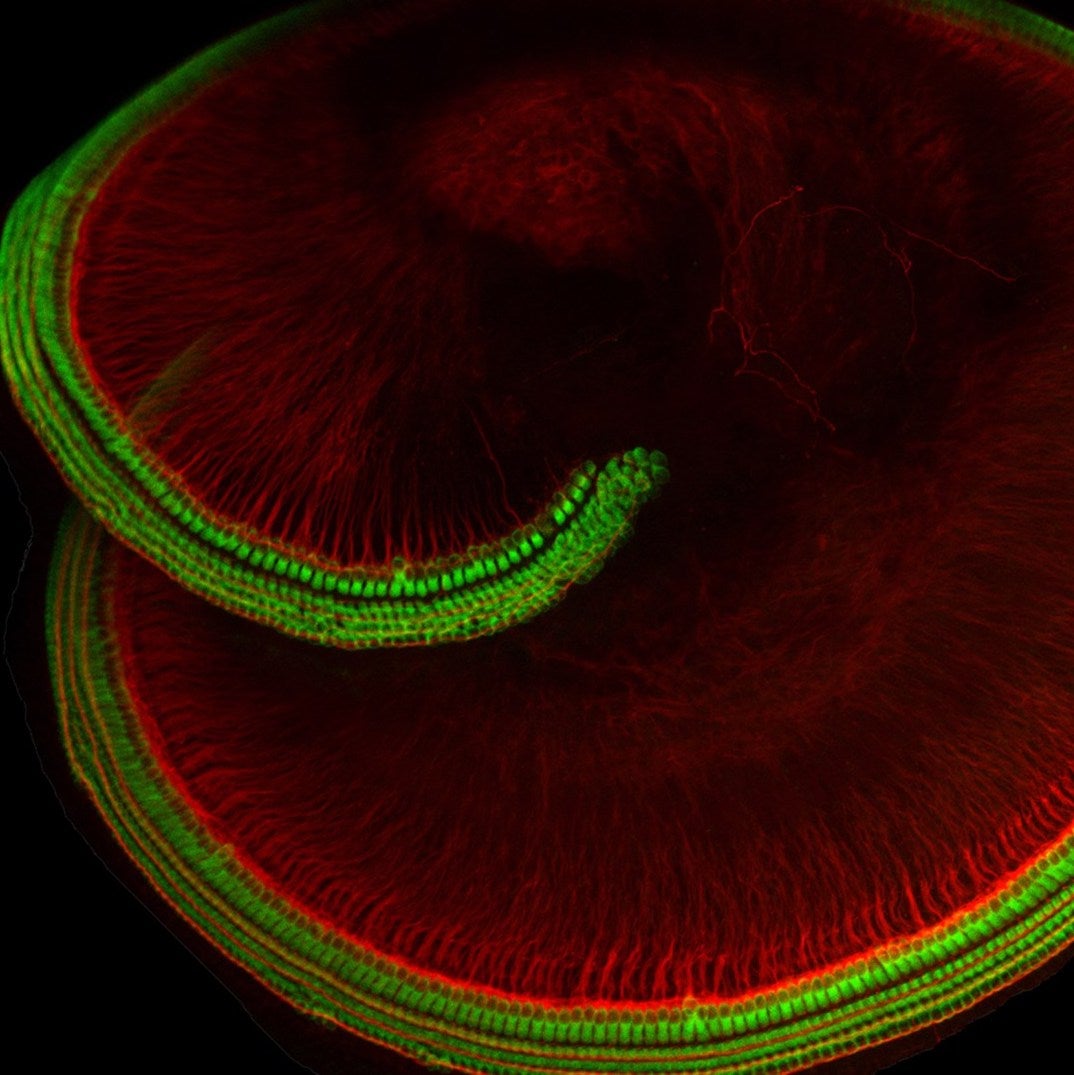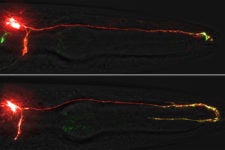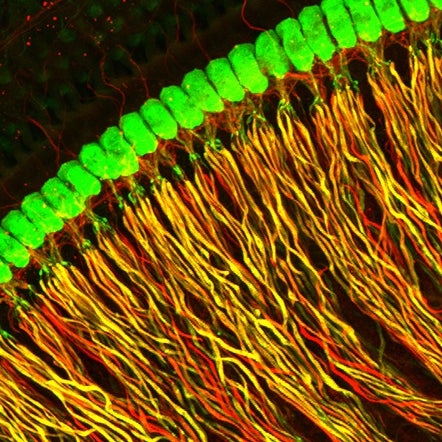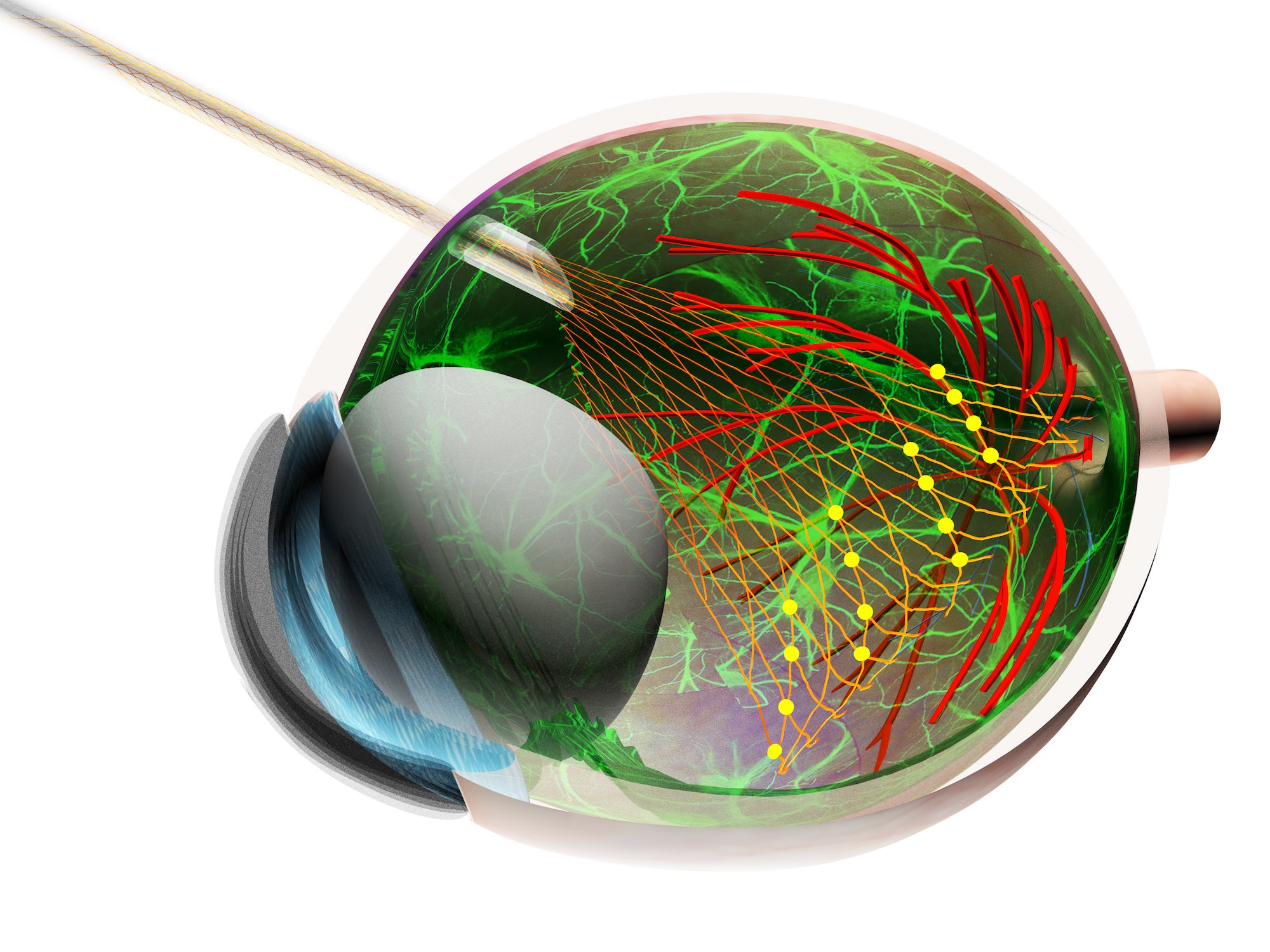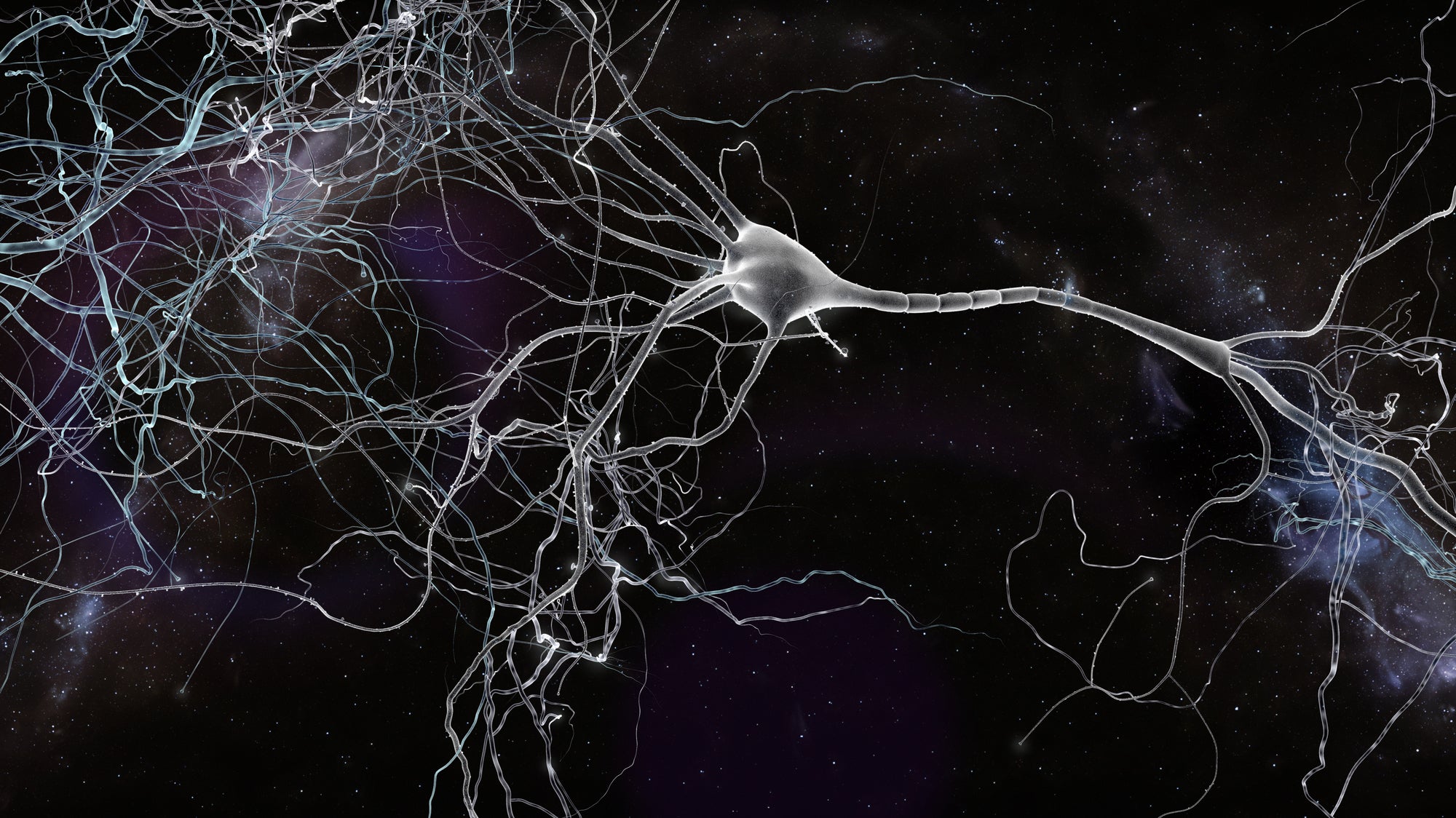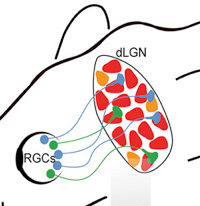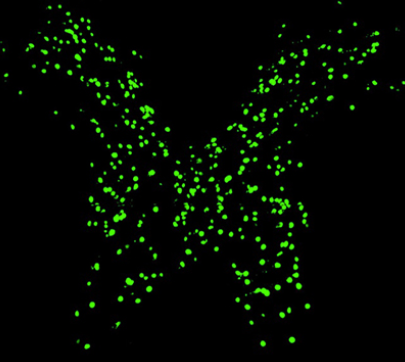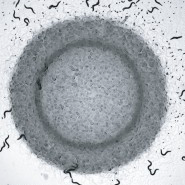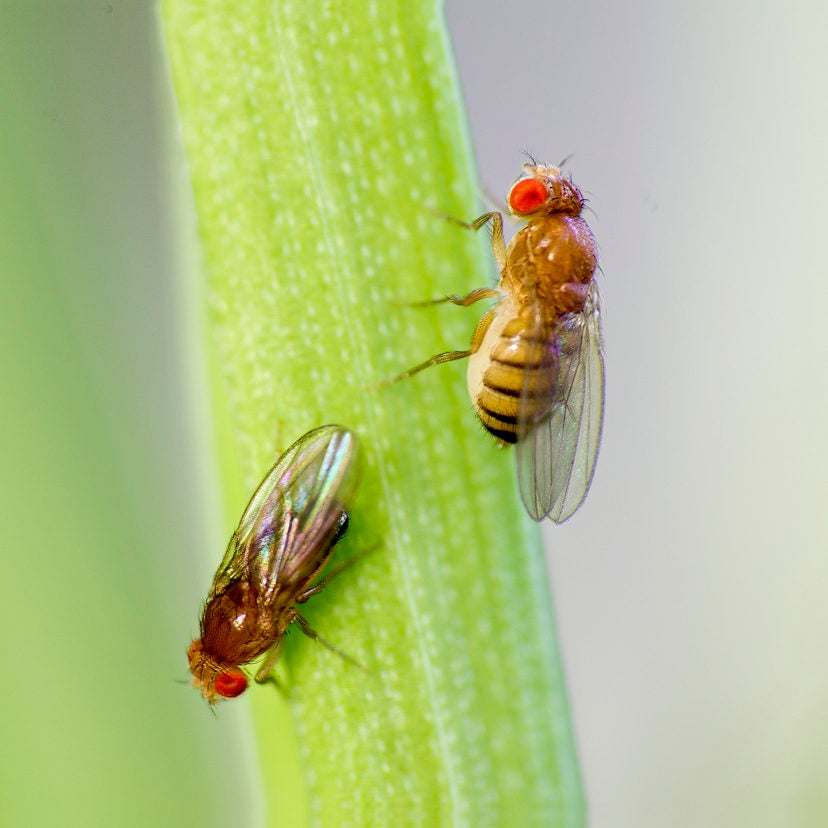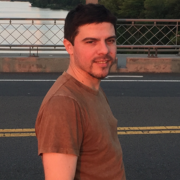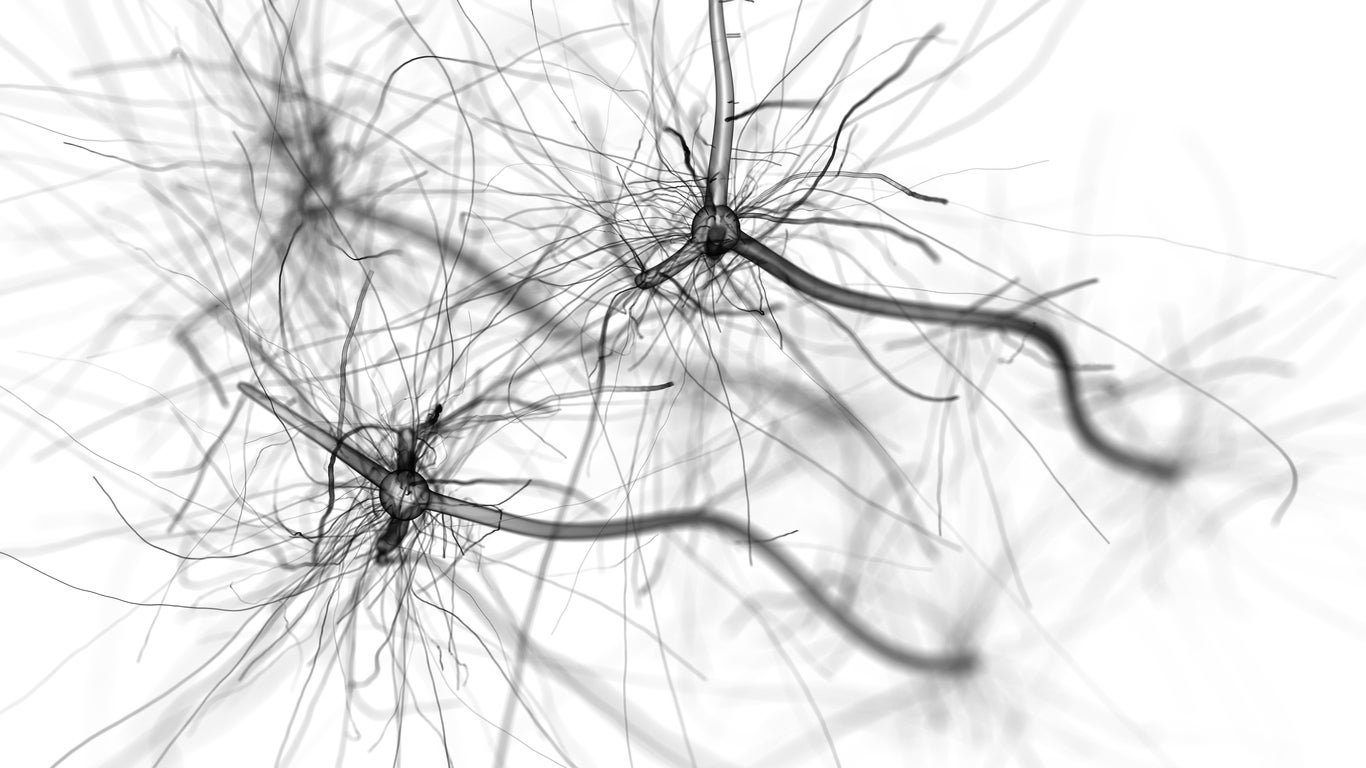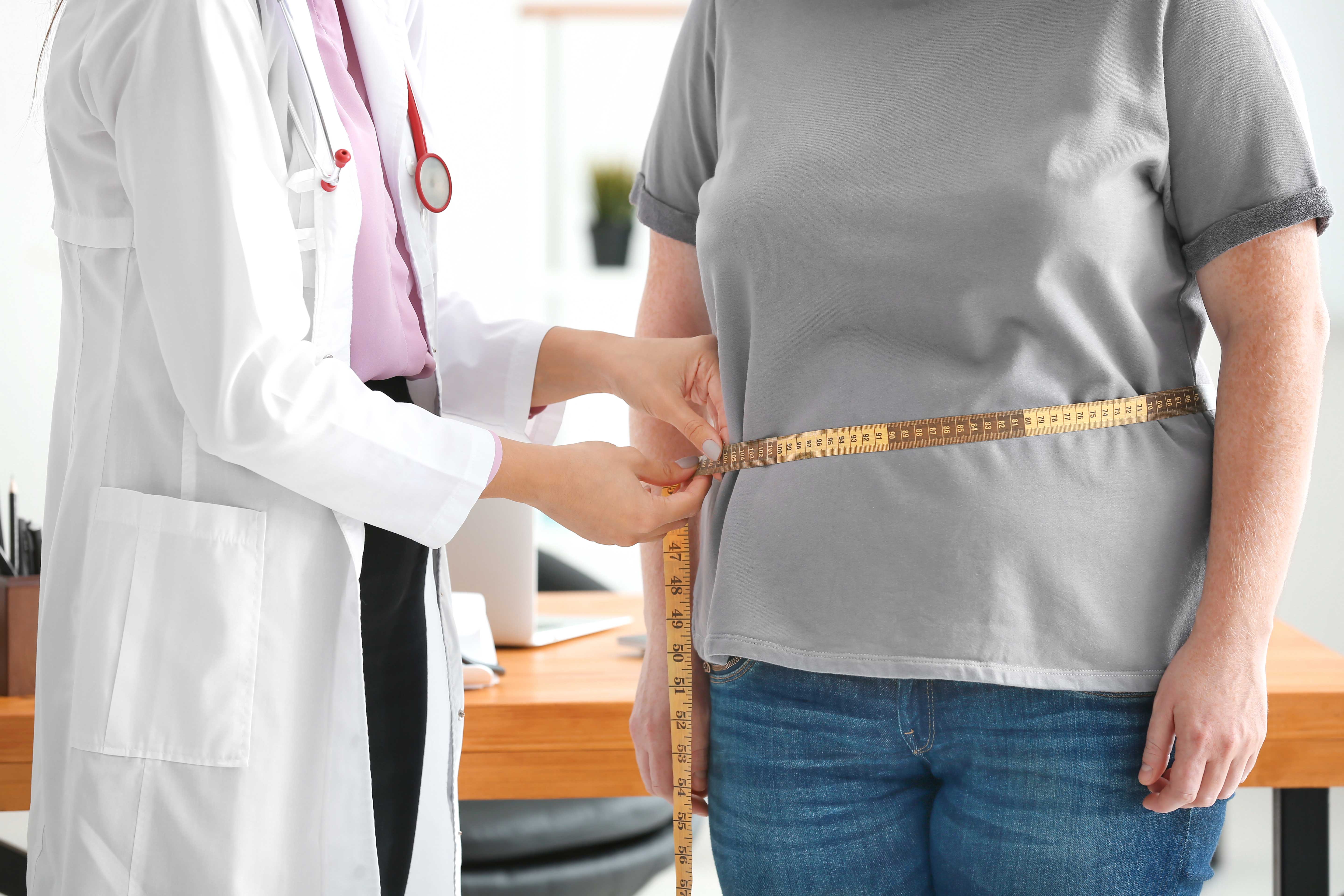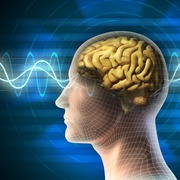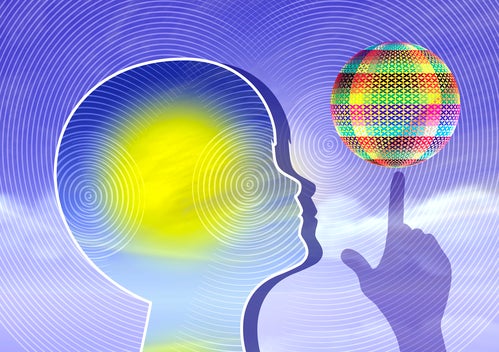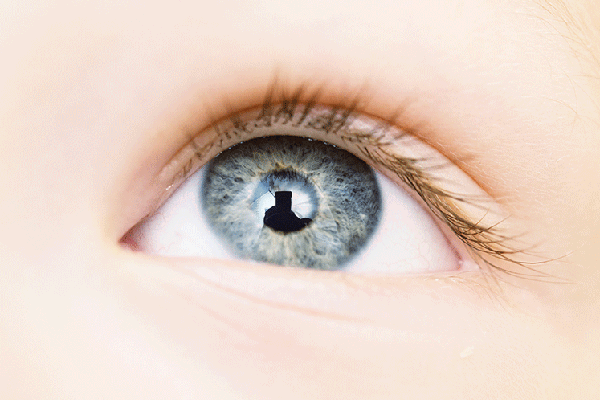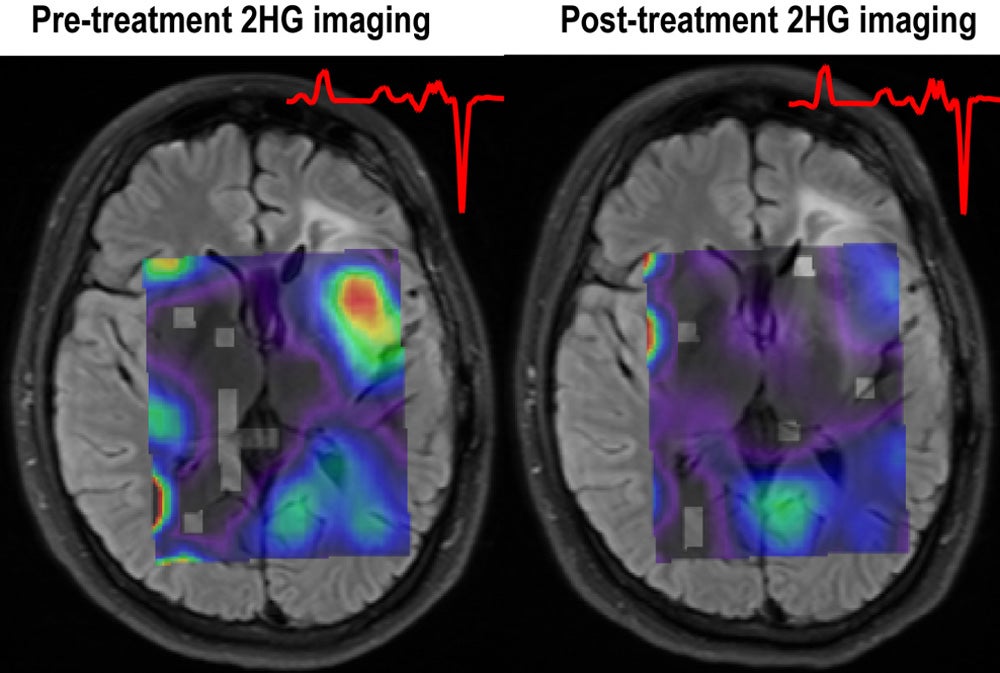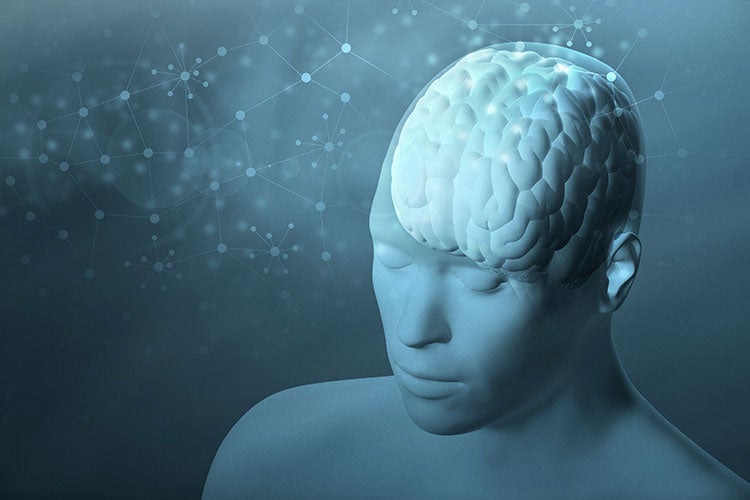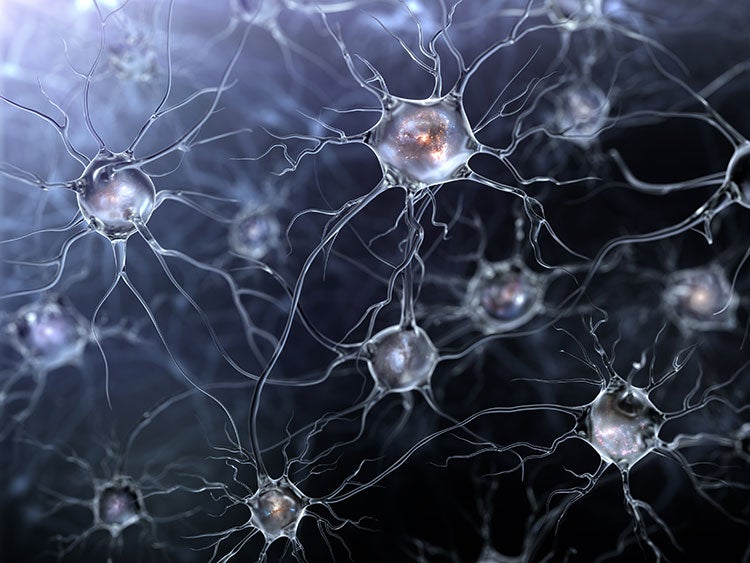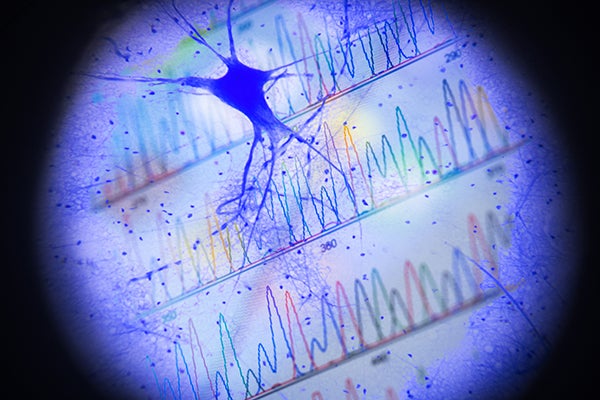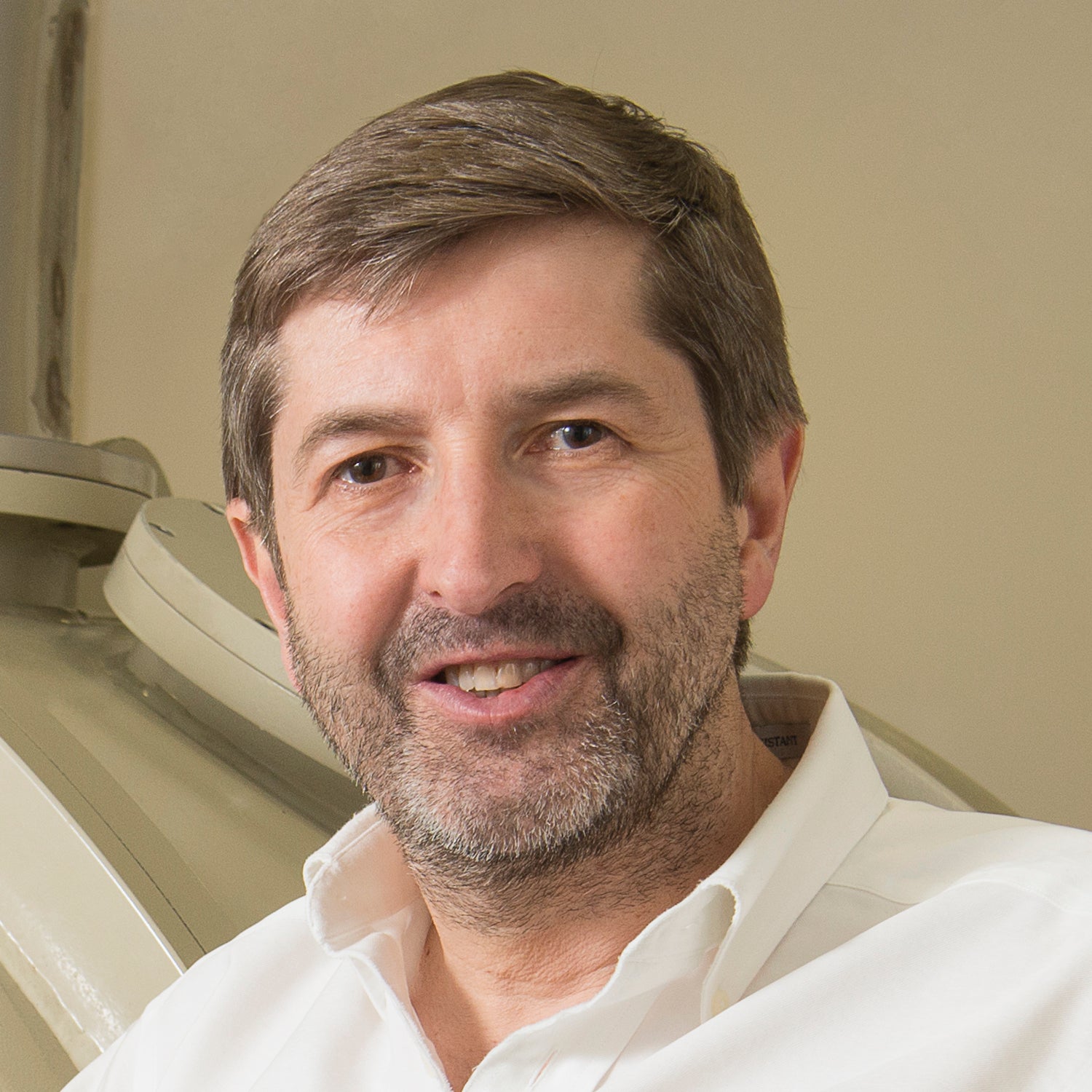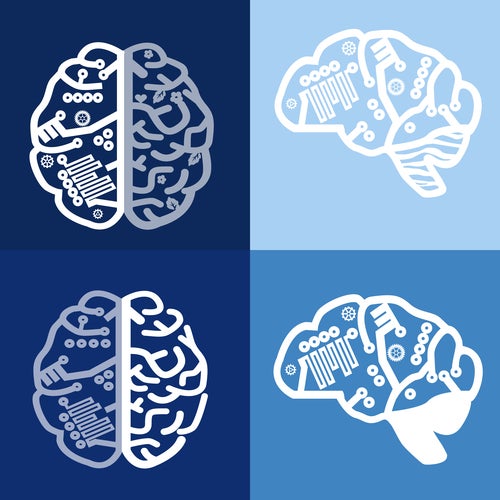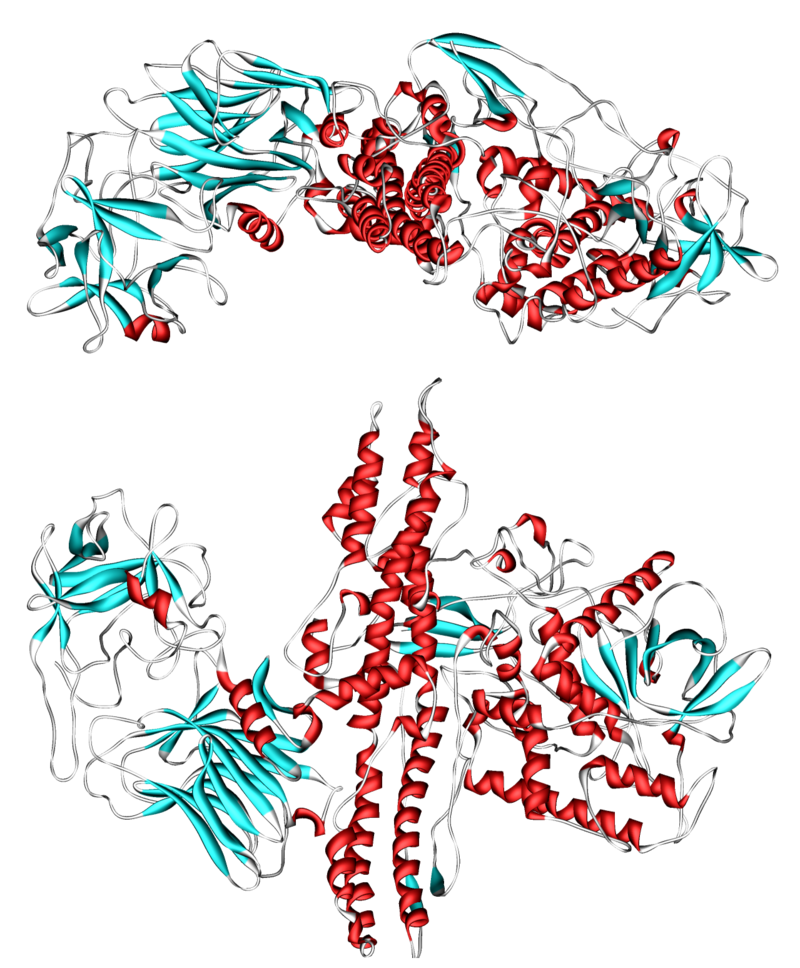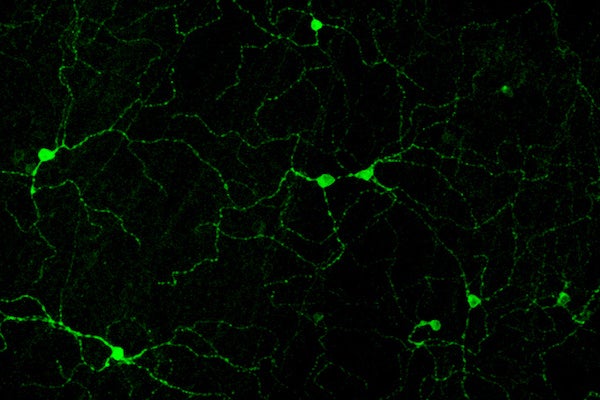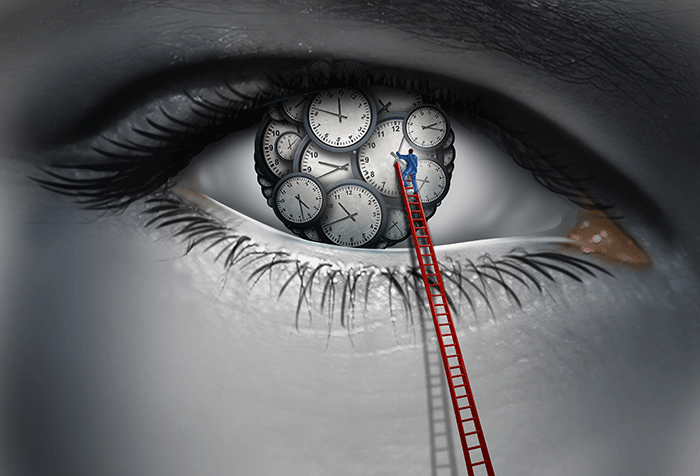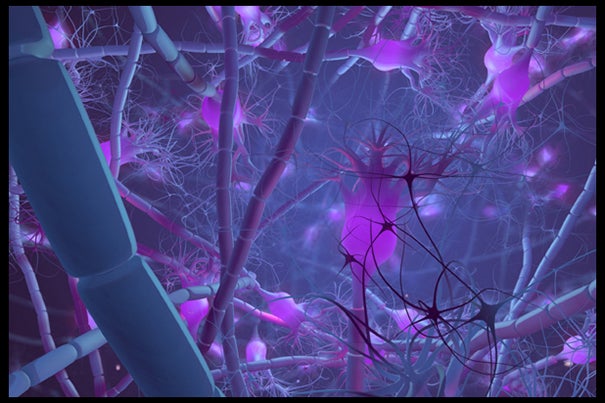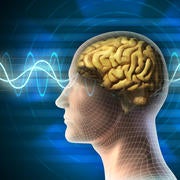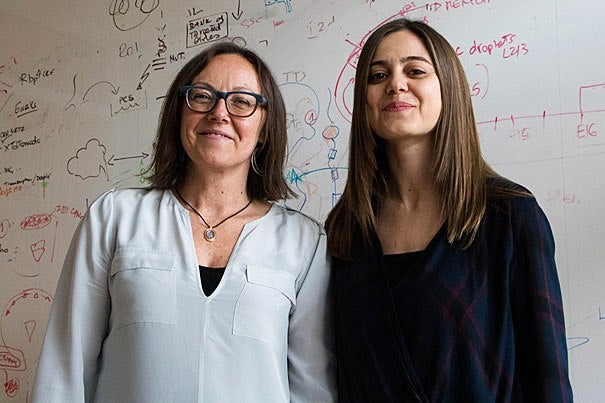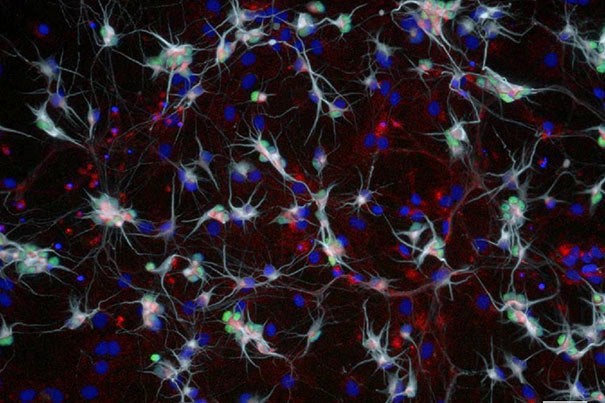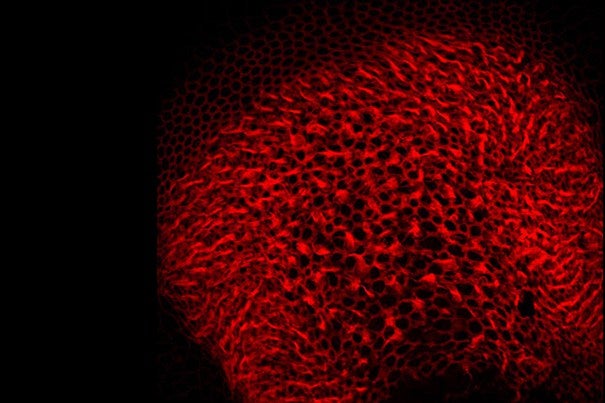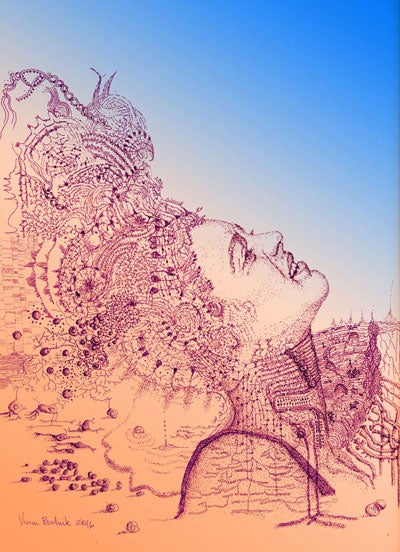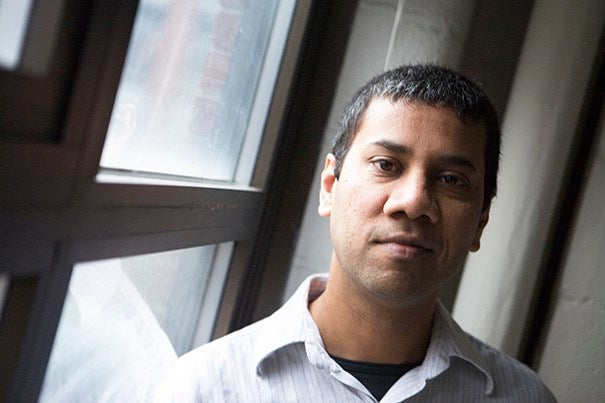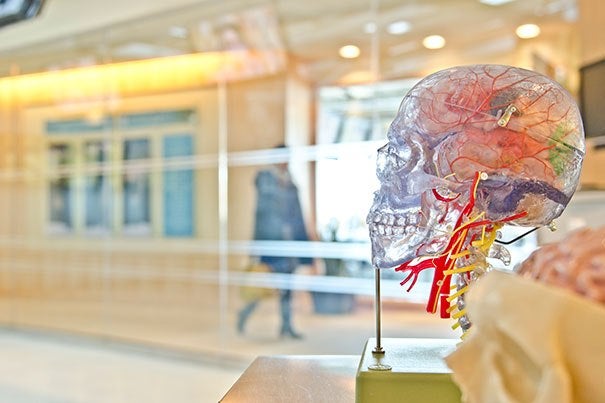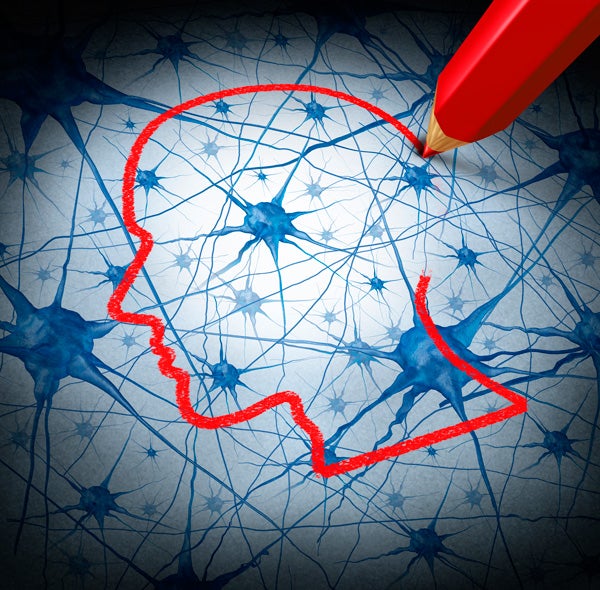May 1, 2025
“If I were starting my career today, I would focus on human neurobiology.” In an article in The Transmitter opening with this sentiment, Josh Sanes introduces a series of upcoming essays he will be editing, on technological advancements that are revolutionizing human neurobiology in areas ranging from organoids and assembloids to neuroimaging, intracranial recordings, brain stimulation methods, and computational and theoretical neuroscience.
May 1, 2025
A new study from Vijay Kuchroo and colleagues, co-first authors Kimitoshi Kimura and Ayshwarya Subramanian, raises the odds that a strategy already successful against some cancers may be deployed against Alzheimer’s. The research, which highlights the role of an immune system “checkpoint” molecule, showed improved cognition in tests with mice.
May 1, 2025
Beth Stevens, NIH-supported investigator of Alzheimer’s and other disorders, explains how one discovery can lead to another.
May 1, 2025
Gary Ruvkun recounts years of research, which gradually drew interest, mostly fueled by NIH grants.
April 17, 2025
New AI method lets researchers get better handle on brain-behavior link, and may offer insights into disorders like autism. From Bence P. Ölveczky and colleagues. Co-first authors Ugne Klibaite and Tianqing Li.
April 17, 2025
A perspectives piece from Josh Sanes in The Transmitter discusses how large-scale genomics studies have failed to identify specific pathways that go awry in schizophrenia. Alternative approaches focusing on cellular, molecular and systems-level changes may be needed.
April 17, 2025
Seventeen modifiable factors have been identified that can lower people’s risk of age-related brain diseases such as stroke, dementia, and late-life depression, according to researchers at Harvard-affiliated Mass General Brigham. The study found a reduced risk of all three conditions by modifying any one of the 17 factors.
April 17, 2025
Females have two X chromosomes. But they do not need twice as many copies of the genes encoded on the X chromosome as males and so must deactivate one of the two chromosomes. New research from Jeannie Lee and colleagues, co-first authors Mingrui Ding and Danni Wang, describes how cells orchestrate this chromosomal silencing. The findings could lead to relief for the many thousands of people living with diseases caused by mutations on the X chromosome.
April 17, 2025
New research from Eric Vallabh Minikel, Sonia M. Vallabh, David R. Liu and colleagues, co-first authors Meirui An and Jessie R. Davis, provides hope that prion disease — a handful of rare, invariably fatal disorders caused by misfolded proteins in the brain — may, in the not-too-distant future, have a treatment if not a cure.
April 17, 2025
After a bout of infection or an autoimmune disease flare-up, some people experience prolonged mood swings, emotional dysregulation, and changes in behavior. HMS News highlights two new studies from the teams of Jun Huh (HMS) and Gloria Choi (MIT), detailing the steps of an intricate brain-immune crosstalk that accounts for this long-known but poorly understood observation.
April 1, 2025
Researchers (Mark W. Albers, Alefiya Dhilla Albers, and colleagues, first author Benoît Jobin) have developed an at-home olfactory test that may help ID those at risk of Alzheimer’s years before symptoms appear. Older adults with cognitive impairment scored lower on the test than cognitively normal adults.
April 1, 2025
Pediatric high-grade gliomas are aggressive brain tumors with a poor prognosis. New research from Mariela Filbin and colleagues, joint first authors Lisa Mayr, Sina Neyazi, Kallen Schwark, and Maria Trissal suggests that platelet-derived growth factor receptor alpha (PDGFRA) could be a potential therapeutic target and provides the first real-world clinical data supporting the use of a PDGFRA inhibitor to treat certain patients with these tumors.
April 1, 2025
New research from Naoshige Uchida, Sam Gershman, Venkatesh Murthy and colleagues, co-first authors Lechen Qian and Mark Burrell shows that dopamine signals and behavior are shaped by prospective contingency—the information a cue provides about the change in likelihood of receiving a future reward, not simply reward frequency. The concept of contingency is crucial in understanding learning, behavior, and decision-making processes.
April 1, 2025
HMS News profiles new Stem Cell and Regenerative Biology department faculty member Michael Segel and his research on mammalian lifespans.
March 14, 2025
When faced with an unfamiliar threat, animals must make split-second decisions: should they flee to avoid potential harm or push forward in pursuit of a reward? New research from Nao Uchida and colleagues, first author Iku Tsutsui-Kimura, shows how the mouse brain dynamically regulates avoidance behaviors by balancing competing neural signals.
March 14, 2025
A new study from Catherine Dulac and colleagues, first author Harris Kaplan explores how one small brain region called the preoptic area (POA) of the hypothalamus changes through early life in mice. Though tiny, the POA is a known hub for neurons that govern basic needs like thirst and hunger, as well as neurons that regulate social behavior.
March 14, 2025
The mechanics of how loneliness or instinctive social need is encoded in the brain are unclear. New research from from Catherine Dulac and colleagues, first author Ding Liu (Dulac and Uchida labs) explores the neurological basis for this need, uncovering the systems that govern the desire for company.
March 14, 2025
A new discussion paper from the Carr Center for Human Rights, first author Lukas Meier, welcomes the potential benefits of brain-computer interfaces (BCIs), but offers a note of caution drawn from the past, detailing unsettling parallels between an era of new therapies and one of America’s darkest chapters: experiments into psychological manipulation and mind control.
February 20, 2025
An increase in high-fat, high-fructose foods in people’s diets has contributed to a dramatic increase in type 2 diabetes. This, in turn, has led to an increase in peripheral neuropathy. New research reveals that months before this damage occurs, immune cells flood into peripheral nerves in an apparent attempt to protect them. This surprising insight could lead to strategies to prevent peripheral neuropathy or at least minimize and slow the onset of the damage.
February 20, 2025
New research from Nao Uchida, Jan Drugowitsch, and colleagues, first author Adam Lowett deepens the connections between natural and artificial intelligence — using modern advances in reinforcement learning to probe the computational principles underlying the anatomy and physiology of the striatum and its dopamine neurons.
February 20, 2025
HMS news profiles the research of married couple Richard S. Schwartz, HMS associate professor of psychiatry, part-time, at McLean Hospital, and Jacqueline Olds, HMS associate professor of psychiatry, part-time, at Massachusetts General Hospital, and what their research has gleaned about the most elusive of human experiences.
February 20, 2025
The Harvard Gazette profiles Kanaka Rajan and research on electric fish. These creatures have the unique ability to sense and generate their own electric fields. This provides a key area of exploration for the emerging field of NeuroAI, which explores the perceptual and cognitive capacities of both natural and artificial systems.
February 4, 2025
New research from Diane Mathis and colleagues, first author Miguel Marin-Rodero. identifies guardian immune cells dwelling in the protective layers of the brain.
February 4, 2025
The anesthetic ketamine has become increasingly popular as a treatment for people with severe depression that resists conventional therapies. Now, new research using zebrafish from Florian Engert and colleagues at Janelia, co-first authors Marc Duque Ramírez and Alex Chen provides new insights into how it works.
February 4, 2025
New research from Jon Clardy and colleagues, co-first authors Sunghee Bang and Yern-Hyerk Shin, has pinpointed a biologic mechanism that strengthens the evidence that one species of gut bacteria, Morganella morganii, influences brain health and provides a plausible explanation for how it does so.
February 4, 2025
A new study from Steven A. McCarroll, Sabina Berretta, and colleagues, co-first authors Robert E. Handsaker and Seva Kashin, shows how a mutation in the Huntingtin (HTT) gene expands over decades and becomes rapidly toxic later in life.
January 17, 2025
New research from David Ginty, David Corey, Lisa Goodrich, and colleagues, first author Erica Huey, may help explain why the sense of touch gets stronger and more precise after hearing loss.
November 22, 2024
New research from Christopher Walsh and colleagues, co-first authors Eduardo A Maury, Attila Jones, and Vladimir Seplyarskiy, suggests that distinctive patterns of non-inherited (somatic) mutations are important contributors to schizophrenia. These mutations appear to have occurred as the brain was forming and affect just a portion of its neurons.
November 22, 2024
New research from David Corey and colleagues, first author Maryna V Ivanchenko, delivered a corrected version of the faulty gene that causes Usher syndrome — PCDH15 — and was able to restore hearing in mouse models and also showed potential in retinal organoids and nonhuman primates for improving vision.
November 22, 2024
Harvard Magazine profiles Harvard alumni Craig Mermel and Ben Rapoport, who twenty years after meeting at HMS, are at the leading edge of efforts to use minimally invasive neural implants to improve human health.
November 22, 2024
Built to support cutting-edge research at the Kempner Institute for the Study of Natural and Artificial Intelligence, and Harvard University more broadly, the Kempner’s AI cluster has just been named the 32nd fastest “green” supercomputer in the world in the Green500, the industry’s premier, independent ranking of the most energy-efficient supercomputers globally.
November 5, 2024
HMS News and the Harvard Gazette profiles the work of David Walt, who is operating at a microscopic level, observing cell abnormalities that may contribute to depression, and Diego Pizzagalli, who is taking a bigger-picture approach, using MRIs and other methods to identify potential treatments by tracking activity in key brain regions. Their work is supported by a major grant from the nonprofit Wellcome Leap.
November 5, 2024
New research from Anne O'Donnell-Luria, Gemma L. Carvill (Northwestern) and colleagues, first authors Vijay S. Ganesh and Kevin Riquin (Nantes Université). diagnoses for the the first time a patient with a rare genetic disorder caused by changes to the CHASERR gene and highlights the need to examine the non-coding parts of the genome in rare diseases.
November 5, 2024
Boston Children's Hospital Answers profiles the work of Ed Smith and his team at the Cerebrovascular Surgery and Interventions Center (CSIC) at Boston Children’s Hospital. They are conducting pioneering research and guidelines to enhance diagnosis and treatment of cavernous malformations, focusing on genetics and advanced interventions for better care and outcomes for families.
November 5, 2024
Harvard MCB News profiles the research of Lichtman lab postdoc Daniel Berger who uses cutting-edge imaging techniques to better understand the basic principles of neuron-neuron connectivity and neuron-glia interactions in mammalian cortex.
October 24, 2024
New research in mice from Pascal Kaeser, Nao Uchida, and colleagues, first authors Xintong Cai and Changliang Liuexplains why levodopa, a drug commonly used to treat Parkinson's Disease, works to alleviate some symptoms but not others.
October 24, 2024
The Dana Foundation announces the launch of Neurotech Justice Accelerator at Mass General Brigham. The five-year $8.6 million initiative aims to improve equitable access to beneficial neurotechnologies and to mitigate the associated risks in medical and legal settings. It is jointly led by neurosurgeon Theresa Williamson (MGH/HMS), bioethicist Gabriel Lázaro-Muñoz (MGH/HMS), and law professor Francis Shen (Univ of Minnesota & MGH/HMS).
October 24, 2024
Leslie Valiant argues that educability, which incorporates both the ability to generate new knowledge by learning from experience and also the ability to transfer that knowledge directly to others, is more important than intelligence when it comes to understanding human cognition.
October 11, 2024
New research from Molly P. Jarman and colleagues, first author Alexander J. Ordoobad, finds that dementia is more frequently diagnosed within one year of a fall compared to other types of injuries.
October 11, 2024
A new study from Aaron Baggish and colleagues, first author Rachel Grashow, of nearly 2,000 former NFL players shows that about one-third believe they have chronic traumatic encephalopathy (CTE), a neuropathological condition linked to repeated head trauma that can only be diagnosed through a postmortem examination of the brain.
October 11, 2024
New research from Corey Allard, Nick Bellono, and colleagues suggests the scuttling sea robin may serve as evolutionary model for trait development, including in humans.
October 11, 2024
Up to 10 percent of the population has dyslexia, yet many children are diagnosed only after struggling with reading for years. EarlyBird, a product that grew from research at Boston Children’s Hospital and incubated in the hospital’s Innovation & Digital Health Accelerator (IDHA), can identify children at risk for dyslexia before they start formal reading instruction, then help them build the skills they need in a fun game format.
September 25, 2024
Harvard Magazine profiles Catherine Dulac, her research into the social behavior of mice, and what this research suggests about the relative importance of sociality in humans and other organisms.
September 25, 2024
New research from From Michael D. Fox and colleagues, first author Shan H. Siddiqi, suggests that using neurostimulation therapies on a specific brain network could treat post-traumatic stress disorder (PTSD) in veterans. By evaluating 193 participants in the Vietnam Head Injury Study with penetrating traumatic brain injury, the team found those with damage connected to their amygdala, the fear center of the brain, were less likely to develop PTSD.
September 25, 2024
New research from Dost Ongur and colleagues, first author Lauren V. Moran suggests that patients taking a high dose of a prescription amphetamine face more than a five-fold increased risk for developing psychosis or mania.
September 25, 2024
New research from From Lee Rubin and colleagues, first author Feodor D. Price has pioneered a groundbreaking method for generating large numbers of adult skeletal-muscle satellite cells, or "muscle stem cells", in vitro. This development could help speed up our understanding and treatment of a range of skeletal muscular disorders, including muscular dystrophy (MD) and (ALS).
September 13, 2024
HMS news profiles PhD student Olúmídé Fagboyegun (lab of Beth Stevens). Olúmídé shares his journey from Kenya to community college in Maryland, to his current PhD research at Harvard, and future mentoring work.
September 13, 2024
A new study from Trisha S. Pasricha and Subhash Kulkarni, first author Jocelyn Chang (Tufts) finds that the risk of developing Parkinson’s disease was 76 percent higher among those with damage to the lining of their upper gastrointestinal tract than among those without.
September 13, 2024
New research in lab models from Stephen Gomperts and colleagues, first author K. N. Rose, indicates that low doses of carbon monoxide — comparable to that experienced by smokers — protected against neurodegeneration and prevented the accumulation of a key Parkinson’s-associated protein in the brain.
August 29, 2024
When tested for “hidden consciousness,” one in four patients with severe brain injury who appeared unresponsive were able to respond to instructions covertly. From Nicholas D Schiff and colleagues, first author Yelena G Bodien.
August 29, 2024
New research from Sharon G Curhan and colleagues (first author Tian-Shin Yeh) has found that an episode of shingles is associated with about a 20 percent higher long-term risk of subjective cognitive decline, one of the earliest noticeable symptoms of Alzheimer’s disease and related dementias.
August 29, 2024
Technological advances allow scientists to more rapidly create in vitro models of Parkinson’s disease using stem cells, in ways that could provide more personalized diagnostic and treatment methods. From Vikram Khurana and colleagues, co-first authors Isabel Lam and Alain Ndayisaba.
August 29, 2024
New research from Eleonora Tamilia and colleague (first author Georgios Ntolkeras) shows that a noninvasive technique combining EEG readings, MRI data, and machine learning can identify the most epileptogenic brain regions much faster than previous methods which required multiple days of invasive monitoring.
August 29, 2024
New research in tadpoles from Donald E. Ingber and colleagues (first author Maria Plaza Oliver) shows that Donepezil, a widely administered FDA-approved drug used to treat Alzheimer’s Disease, can potential buy patients more time to survive critical injuries and diseases, even when disaster strikes far from a hospital.
August 6, 2024
Susan Dymecki and colleagues (First author Giacomo Maddaloni) have identified a mouse brain circuit with multiple groups of neurons that together recognize, decode, and drive behavioral adaptation to changes in the amount of daylight.
August 6, 2024
Jill Goldstein, professor of psychiatry and medicine at Harvard Medical School and the founder and executive director of the Innovation Center on Sex Differences in Medicine at Mass General, discusses what science has revealed about sex differences in the brain.
August 6, 2024
Tianyi Huang and colleagues (first author Sina Kianersi), analyzed the sleep patterns of study participants over seven nights and then followed them for more than seven years. The researchers found those with the most irregular sleep patterns had a 34 percent higher chance of developing diabetes.
August 6, 2024
Joe Kossowsky and colleagues (first author Danielle A Wallace) found that participants who spent more time in bright light had more regular sleep, and that more regular sleep was associated with lower depression symptoms and lower odds of mild or severe depression
August 6, 2024
David Perez and colleagues (first authors Christiana Westlin and Andrew J Guthrie) used machine learning algorithms to compare the brains of patients with functional neurological disorder (FND) and healthy subjects or participants with psychiatric disorders that do not have FND, They found that structural brain MRI has the potential to be a clinically useful tool for diagnosing FND.
July 18, 2024
In a first, neuroscientists have created a microscopic “brain thesaurus” that reflects how the meaning of words is represented. Using a novel technology to record the activity from single neurons in the human brain, the team was also able to predict the meaning of words heard in real-time speech. From Ziv Williams and Colleagues, co-first authors Mohsen Jamali and Benjamin Grannan.
July 18, 2024
New research suggests intensive diet and lifestyle changes may not only forestall cognitive decline related to Alzheimer’s disease but possibly bring some improvement to those in early stages.
From Steven Arnold, Rudolph Tanzi, and colleagues. Read more at the Harvard Gazette.
July 18, 2024
New research finds that the tendency of people’s arousal to wane over the course of brain scans has been distorting the brain connection maps produced by functional magnetic resonance imaging (fMRI). The team developed a new technique called RIPTiDe that can filter out these distortions enhancing the validity and reliability of fMRI findings.
From Amy C. Janes and Blaise B. Frederick, first author Cole Korponay.
July 18, 2024
Boston Children's Hospital Answers profiles the research of clinician-scientists Tamar Katz and Kinga Tomczak, studying potential differences in the microbiomes of individuals with these disorders.
July 3, 2024
In a commentary published on June 20 in the journal Cell's 50th Anniversary Focus Issue on Developmental Biology, Hyun argues that despite huge advances, we are a long way off from developing technologies that would enable embryo models or organoids to achieve personhood.
July 3, 2024
Harvard Medicine News article on ongoing research on the subject of interoception (the perception of internal signals from the body). Wen Chen, Stephen Liberles, and Mark Andermann discuss how we perceive what’s happening inside our bodies, and what that means for our health.
July 3, 2024
Until relatively recently, research on touch has lagged behind other senses like hearing and vision. However, new research tools and greater scientific appreciation has led to a "touch renaissance". David Ginty, April Levin, and Lauren Orefice discuss current research on touch, it's role in development, and potential therapies to help those suffering from touch dysfunction.
July 3, 2024
In a new study, researchers asked whether an artificial agent could improve behavior in an animal, by learning to control a living nervous system. Using optogenetics to allow the RL agent to control C. elegans worm neurons, they were able to help the worms find food better. The team also gained clues as to how different parts of the C. elegans nervous system were involved in generating directed movement.
July 3, 2024
Scientists create realistic virtual rodent with digital neural network to study how the brain controls complex, coordinated movement.
July 3, 2024
Chronic loneliness was associated with higher stroke risk independent of depressive symptoms or social isolation. Addressing loneliness may have an important role in stroke prevention, and repeated assessments of loneliness over time may help identify those particularly at risk.
July 3, 2024
Using imaging reports to back up their findings, researchers have concluded that reports from patients and their partners about cognitive decline can be an early indicator of an accumulation of tau tangles, a hallmark of Alzheimer’s disease.
June 11, 2024
Using mouse and computer model experiments, researchers identified thousands of molecular interactions — most not previously known — between pain-initiating neurons, or nociceptors, and different types of immune cells. These interactions could help explain why pain hypersensitivity sometimes occurs during inflammation — and could also help researchers resolve it.
June 11, 2024
New research finds that gas released by some gut bacteria stimulates other gut bacteria to produce a hormone involved in pregnancy and in an FDA-approved treatment for postpartum depression.
June 11, 2024
Harvard Gazette interview with Reisa Sperling discussing her teams' recent paper finding that genetics may be a direct cause of a specific form of Alzheimer’s disease and not merely a risk factor.
June 11, 2024
The Harvard Gazette profiles the research of Yilai Shu, Zheng-Yi Chen, and colleagues at Fudan University and Mass. Eye Ear who recently developed a new gene therapy for a type of genetic deafness. The story was first reported in January, with a trial of six children, and now a successful expanded trial of this therapy (given to five more children) suggests the treatment could become available within three to five years.
May 22, 2024
Harvard researchers, along with colleagues at Google Research, have created the largest 3D human brain reconstruction to date, showing in vivid detail each cell and its web of connections in a piece of temporal cortex about half the size of a rice grain.
May 21, 2024
HMS News profiles the work of Chirag Patel, others at Harvard, and the Human Exposome Project—which aims to discover the role of various environmental exposures in human disease and health. One such avenue of inquiry showing promise is using AI to help analyze how a lifetime of environmental exposures affects the onset and progression of complex neurological diseases such as Alzheimer's.
May 21, 2024
New research exploring the genome of the fly-infecting fungus Entomophthora muscae reveals it has one of the largest known genomes in the fungal kingdom. The fungus is best known for turning its insect victims into “zombies,” forcing the flies to climb up high, and then exploding out of their bodies.
May 21, 2024
New research using functional MRI data finds that how adolescents’ brains were wired — before COVID-19 — predicted their stress, negative emotions, and overall mental health during the height of the pandemic, making them more vulnerable or more resilient.
May 9, 2024
Results from a small proof-of-concept study indicate that CRISPR gene editing is safe and can improve vision in some people with inherited blindness. In the multicenter clinical trial, 11 of the 14 individuals treated had measurable improvements on at least one key vision test, while six people experienced improvement on two or more vision outcomes.
May 9, 2024
Connie Cepko shares her team's approach to developing a gene therapy that aims to preserve vision in people with RP and certain other forms of genetic blindness, including some cases of macular degeneration, by counteracting damage to the retina caused by any of hundreds of different genetic mutations.
May 9, 2024
New research reveals that certain visual neurons in the brain simply see what’s in front of the eyes, in real time — a departure from prior thinking that neurons use prediction of future images or analysis of past images to achieve stability.
May 9, 2024
Just talking to other people can stimulate different brain functions among socially isolated older adults, even when the interactions are internet-based, according to a new clinical trial out of Massachusetts General Hospital.
May 9, 2024
New research uncovers how inflammation damages excitatory synapses in an experimental model of MS. While there is a constant turnover of synapses in the healthy brain, inflammation accelerates this turnover so that synapses were gained and lost at higher rates. This widespread instability impacts the entire neuron and leading to important changes in the incoming inputs to individual neurons.
May 9, 2024
In a magnetic resonance imaging (MRI) study that integrated ultra-high resolution structural and functional connectivity data, researchers mapped a subcortical brain network that is believed to integrate arousal and awareness in human consciousness.
April 22, 2024
Harvard’s Center for Brain Science has received a gift from the NTT Research Foundation to establish the Center for Brain Science-NTT Fellowship Program. The two-year gift, renewable for up to three more years, creates a fund that supports postdoctoral research in the physics of intelligence, an emerging field that uses physics to tackle fundamental questions in intelligence, bridging computer science, neuroscience and psychology.
April 22, 2024
A new study led by Mass. General Hospital researchers shows how a generative artificial intelligence (AI) model that can analyze the narrative accounts of women who have undergone recent childbirth can accurately screen for post-traumatic stress disorder (CB-PTSD).
April 22, 2024
Some infants who pass away from sudden infant death syndrome (SIDS) are known to have had acute minor infections. Could these have played a role in their death? Using next-generation molecular tools, a new study provides evidence that undiagnosed inflammation and occult infection can contribute to SIDS and the brainstem pathology seen in some infants.
April 22, 2024
A new study led by researchers at McLean Hospital and Washington State University used advances in digital testing to demonstrate that naturally occurring glucose fluctuations impact cognitive function in people with type 1 diabetes (T1D).
April 22, 2024
Researchers investigated factors associated with psychosocial functioning in borderline personality disorder. In this study they share preliminary evidence that one key factor is reflective functioning, the capacity to consider one’s own and others’ mental states.
April 22, 2024
AI technology can be a powerful assistive tool for people like Kempner research fellow Naomi Saphra with non-apparent disabilities — physical or mental conditions that are not immediately obvious to others. But disability advocates say these tools have a long way to go to become truly accessible. Experts say including disabled people in conversations on AI fairness and the development process is key.
April 22, 2024
The Harvard Gazette profiles the work of the lab of Nadine Gaab, specifically their ongoing BabyBOLD study. Gaab’s team enrolls infants between 3 and 8 months with familial risk for reading disabilities. They found that some atypical brain characteristics involving white matter (where information and communication is exchanged), connectivity patterns, and other measurements found in older children are already present as early as infancy.
March 27, 2024
Preliminary results of a first-in-human trial for a new CAR T-based treatment targeting two different sites on glioblastoma tumors result in dramatic, but transient, reductions in tumor size.
March 27, 2024
Topiramate — an antiseizure medication prescribed to treat epilepsy as well as migraines and bipolar disorder — does not appear to increase the risk of autism spectrum disorder (ASD) among children exposed to it prenatally, according to a new study led by Harvard T.H. Chan School of Public Health.
March 27, 2024
A simple skin biopsy test has shown a high accuracy rate in detecting an abnormal form of alpha-synuclein, the pathological hallmark of Parkinson’s disease, according to neurologists at Beth Israel Deaconess Medical Center.
March 27, 2024
Q+A with David H. Rosmarin about his team's research into why patients being treated for anxiety weren’t reporting the worsening symptoms during the COVID-19 pandemic. In a cohort of 764 individuals, they found that cognitive behavioral therapy and dialectical behavior therapy appear to have been protective against pandemic-related anxiety.
March 27, 2024
In 1966, Ed Kravitz, David Potter, and a handful of other professors founded the HMS Department of Neurobiology. The first of its kind in the world, the department brought together specialists who, in Kravitz’s words, “worked in a whole lot of very different fields, but soon began talking and collaborating with each other.” In an interview with HMS News, Kravitz shares his thoughts on how far the field has come — and what’s next.
March 14, 2024
New research From Beth Stevens and colleagues, first author Dan Wilton, shows how the process of Huntington’s disease begins well before symptoms appear — and shows that in mice, the process can be blocked to prevent cognitive problems related to Huntington’s Disease.
March 14, 2024
Brain tissue samples from people with schizophrenia and from older adults have strikingly similar sets of changes in gene activity in two types of brain cells, suggesting a common biological basis for the cognitive impairment often seen in people with schizophrenia and in older people, according to new research from Steve McCarroll, Sabina Berretta, and colleagues. First author Emi Ling.
March 14, 2024
New research from Peter Aungle and Ellen Langer finds that an individual’s perception of how much time has elapsed substantially impacts the speed at which minor bruising fades. This is the first study to demonstrate this psychological effect on the physical healing process.
March 14, 2024
New research Erin Hecht and colleagues, first author Katherine L. Bryant (Aix-Marseille Université) puts fermentation, not fire, as pivot point behind our ancestors’ increasing cranial capacity.
March 14, 2024
Menopause has long been thought to cause psychological distress, but a new review suggests that this is not always the case. Hadine Joffe and colleagues found no evidence that menopause universally caused a rise in risk of mental health conditions—including depressive symptoms, major depressive disorder, anxiety, bipolar disorder, and psychosis—across all women.
February 23, 2024
Researchers from the Wilson Lab gain new insights into how two distinct brain regions — the seat of the compass and the steering center — communicate during navigation.
February 23, 2024
From the team of Rajat M. Gupta and colleagues. Co-first authors Gavin R. Schnitzler and Helen Kang (Stanford). Featured in HMS News.
New research from Rajat M. Gupta and colleagues, co-first authors Gavin R. Schnitzler and Helen Kang (Stanford), uncover how genetic changes in cells that line blood vessels fuel cardiac disease and brain vessel malformations.
February 23, 2024
New research from Joseph Giacino and colleagues may upend the widely held view of traumatic brain injury as a permanently debilitating condition. The findings indicate that electrical stimulation can reawaken quiescent brain circuitry, leading to functional improvements that have the potential to restore work and social activities to patients’ lives.
February 8, 2024
The Engert lab found that in zebrafish, previous visual experience had no effect on the emergence of their optomotor response (OMR). Fish raised in the dark (no visual experience) and fish raised under a strobe light (irregular visual experience) both developed this visually-guided behavior normally.
February 8, 2024
The Uchida lab used a genetically encoded glutamate sensor to examine the pattern of glutamate inputs to dopamine neurons in mice. Combining the results with existing knowledge about GABA signaling to these neurons, they gained a new understanding of how these two neurotransmitters collaborate to bring dopamine neurons the information they need to encode reward prediction error (RPE)—the difference between expected and received rewards.
February 8, 2024
By combining retinal imaging, genetics, and big data, physician-researchers from Harvard Medical School, Mass. Eye and Ear, Massachusetts General Hospital, and the Broad Institute of MIT and Harvard have found that they can estimate how likely a person is to develop eye and systemic diseases in the future.
February 8, 2024
A novel gene therapy approach has given five children who were born deaf the ability to hear. The method, which overcomes a roadblock presented by large genes, may be useful in other treatments, according to researchers.
February 8, 2024
Researchers from Massachusetts General Hospital demonstrate how neurons in the human brain work together to allow people to think about what words they want to say and then produce them aloud through speech. The findings provide a detailed map of how speech sounds such as consonants and vowels are represented in the brain well before they are even spoken and how they are strung together during language production.
February 2, 2024
Harvard Medical School researchers at Brigham and Women’s Hospital and the Wyss Institute have developed a molecular test that successfully detected and quantified telltale protein clumps in tissue and fluid samples obtained from patients with Parkinson’s disease.
February 2, 2024
An international team of researchers have found that the main predictors of language development globally are age, clinical factors such as prematurity or dyslexia, and how much speech children receive from the world around them. No effects were found related to gender, multilingualism, or socioeconomics, contrasting with previous research.
February 2, 2024
Researchers from Harvard and Boston University have used a soft, wearable robot to help a person living with Parkinson’s walk without freezing. When individuals with Parkinson’s disease freeze, they suddenly lose the ability to move their feet, often mid-stride, resulting in a series of staccato stutter steps that get shorter until the person stops altogether. These episodes are one of the biggest contributors to falls among people living with Parkinson’s disease.
February 2, 2024
Researchers from Mass. General Hospital, University College London, and the University of the Republic in Uruguay found a two-way association between anorexia-related genes and those associated with the morning chronotype (waking early/going to bed early). This contrasts with disorders such as depression, binge eating disorder, and schizophrenia, which are associated with an evening chronotype.
December 7, 2023
By focusing on a list of 12 steps covering modifiable behaviors, adults can greatly reduce their risk of developing brain diseases such as dementia and stroke, according to a new study featured in the Harvard Gazette. From the team of Thomas Littlejohns and colleagues, first author Sanjula D. Singh.
December 7, 2023
Researchers have identified at least one potential link that locks sleep deprivation and chronic pain in an endless loop. Featured in the Harvard Gazette. From Shiqian Shen and colleagues, co-first authors Weihua Ding and Liuyue Yang.
December 7, 2023
Using mouse and human models, HMS researchers have shown for the first time that a common skin bacterium — Staphylococcus aureus — can cause itch by acting directly on nerve cells. Featured in HMS News and the Harvard Gazette. From Isaac Chiu and colleagues, first author Liwen Deng.
December 7, 2023
Working with mice, HMS researchers have identified a potential new strategy for replacing retinal ganglion cells to treat glaucoma, one of the leading causes of blindness worldwide. Featured in HMS News From Petr Baranov and colleagues, first author Jonathan R. Soucy.
December 7, 2023
Erin Hecht and the Canine Brains Project at Harvard were profiled in the Harvard Gazette. The article also briefly summarizes a talk she gave for HBI called "Dog Brains 101". You can see a recording on our events page or YouTube channel.
November 14, 2023
Has your research uncovered something breathtaking in the nervous system? An image you’d love to share with the world? Send it to HBI! You could win a $200 cash prize.
November 13, 2023
HMS News article on new research from the lab of Beth Stevens, first author Dan Wilton, showing how the process of Huntington’s disease begins well before symptoms appear — and revealing that in mice, the process can be blocked to prevent cognitive problems thought to be relevant in Huntington’s disease, studied with visual discrimination learning and cognitive flexibility tasks.
November 13, 2023
Harvard Gazette article on new research from an international team co-led by Bruce Fischl (MGH/Harvard) and Patrick Hoff (Mount Sinai School of Medicine). By combining different noninvasive imaging techniques such as MRI, optical coherence tomography, and light-sheet fluorescence microscopy, their team created a comprehensive cellular atlas of a region of the human brain known as Broca’s area, critical for producing language.
November 13, 2023
Harvard Gazette article on new research from David Mischoulon and colleagues, first author Maren B. Nyer, showing that in a randomized controlled clinical trial of adults with moderate-to-severe depression, those who participated in heated yoga sessions experienced significantly greater reductions in depressive symptoms compared with a control group.
November 13, 2023
Harvard Gazette article on new research from Martin Kathrins and colleagues, first author Zachary Walker, assessing the effects of anxiety and depression in men on fertility and IVF outcomes. They found no correlation between anxiety, regardless of antidepressant use, and IVF outcomes or live birth rate.
October 27, 2023
Harvard Gazette article highlighting the work of Jeff Lichtman, who along with partners at Princeton University, MIT, Cambridge University and Johns Hopkins has received $30 million from the National Institutes of Health and an additional $3 million from Harvard and Princeton toward the goal of reconstructing, for the first time, all the neural wiring inside a mouse brain.
October 27, 2023
Harvard MCB Department news article on new research from the lab of Amanda Whipple, first author Daniel Loftus, finding that differences in maternal and paternal genomes in embryonic stem cells shape gene expression in neurons.
October 27, 2023
Boston Children's Hospital Answers profile on HMS Neuro/Boston Children's Hospital faculty member Brielle Ferguson and her lab's goal to open a path to better treatments for psychiatric disorders, especially those like schizophrenia that cause cognitive dysfunction.
September 27, 2023
Boston Children's Hospital Answers article on the creation of a prototype two-armed, joystick-controlled neurosurgical robot. This was engineered by Pierre Dupont, chief of Pediatric Cardiac Bioengineering at Boston Children’s, in consultation with neurosurgeon Scellig Stone, and others. The robot was able to perform a series of two-handed neurosurgical tasks involved in tumor resection and tumor debulking in lab-created models.
September 27, 2023
Boston Children's Hospital Answers article on new research from Charles Nelson and colleagues at HMS, Boston Children's Hospital, The University of San Francisco, and the University of Minnesota, suggesting a possible way to detect anxiety disorders in children before they become apparent clinically using electroencephalograms (EEGs).
September 27, 2023
HMS News and the Harvard Gazette profile a new Harvard-Mass. General Hospital center providing clinicians with lab-tested tools for identifying and treating those most at risk. This center launched in August 2023 is co-directed by Matthew Nock and Jordan Smoller.
September 27, 2023
HMS News article on new research from Ross Zafonte and colleagues, first author Saef Izzy, finding that people who sustain a brain injury have an increased risk of developing chronic cardiovascular disease than people without a brain injury.
September 27, 2023
Harvard Gazette article on new research from Tianyi Huang and colleagues, first author Sina Kianersi, finding that people with later sleep and wake times had less-healthy lifestyles and were at greater risk of developing diabetes than those with early bird habits.
September 27, 2023
Harvard Gazette article on the creation newly designed device that can help test treatments in patients with gliomas, a type of tumor that originates in the brain or spinal cord. This device is the shape and size of a grain of rice, and is designed to be used during standard of care surgery and can conduct dozens of experiments at once offering unprecedented insight into the effects of drugs on glioma tumor. From the team of Oliver Jonas and colleagues, first author Pierpaolo Peruzzi.
September 27, 2023
Harvard MCB News profile on Rachelle Gaudet, who began serving as chair of the Department of Molecular and Cellular Biology Department in July
September 27, 2023
Harvard MCB News spotlights growth of the undergrad neuro concentration and welcomes new staff member, Kristina Penikis, to the team.
September 13, 2023
HMS News article on new research from Mike Greenberg and colleagues, co-first authors Xin Gu and Christopher Nardone, identifying a protein called midnolin that plays a key role in degrading many short-lived nuclear proteins. The study shows that midnolin does so by directly grabbing the proteins and pulling them into the cellular waste-disposal system, called the proteasome, where they are destroyed.
September 13, 2023
HMS News article on new research from David Ginty and colleagues, first author Charalampia Koutsioumpa. Studying mice, they found that sensory neurons develop customized nerve endings based on cues from the skin.
September 13, 2023
Harvard Gazette article on new research from Tracy Young-Pearse and colleagues using stem cells from patients with Alzheimer’s. They studied the disease risk gene SORL1 and found that loss of normal SORL1 function leads to a reduction in two other key proteins known to be involved in Alzheimer’s -- providing a mechanistic link between strong genetic risk factors.
September 13, 2023
HMS News article on new research from Sharon K. Inouye and colleagues from Harvard Medical School and Hebrew SeniorLife, pinpointing several risk factors that contributed to older adults’ likelihood of experiencing loneliness, including older age, inability to complete daily activities, vision impairment, depression, and anxiety.
August 30, 2023
HMS News article on new research from David Ginty and colleagues, first author Rachel L. Wolfson, defining five types of colon neurons that are specialized for sending different signals to the brain. These findings may eventually lead to the development of better therapies for a variety of gastrointestinal problems.
August 30, 2023
HMS News article on new research from Chris Harvey, Mike Greenberg, and colleagues, first author Jonathan Green. They identified a specific group of neurons in a brain region involved in navigation that undergo bursts of activity when mice running a maze veer off course and correct their error.
August 9, 2023
HMS News article on new research from Francisco Quintana and colleagues, first author, Liliana M. Sanmarco, designing a probiotic suppressing autoimmunity in the mouse brain, a condition that occurs when the immune system attacks the cells of the central nervous system. This technique offers a more precise way to target brain inflammation and minimizes negative side effects when compared with standard therapies.
July 31, 2023
HMS News article on a new large-scale study from the team of Ronald Kessler (HMS), John McGrath (Univ. of Queensland), and colleagues from 27 other countries. The results of this study demonstrate the high prevalence of mental health disorders worldwide, with 50 percent of the population developing at least one disorder by the age of 75.
July 21, 2023
HMS News article on new research from Sean Megason, Chenghua Gu, Allon M. Klein, and colleagues, first author Natasha O'Brown, using mice and zebrafish to discover a signal produced by neurons that helps the blood-brain barrier form and maintain its protective properties.
July 21, 2023
Harvard Gazette article on new research from Sam Gershman and colleagues, first author Momchil Tomov, using fMRI and video games to test ideas about complex decision-making.
July 21, 2023
HMS News article on new research from Haiden A. Huskamp and colleagues, first author Lindsay Overhage, finding that the number of young people in the United States visiting hospital emergency departments for mental health crises increased sharply during the second year of the COVID-19 pandemic.
July 21, 2023
HMS News article on new research from Kun-Hsing Yu and colleagues, co-first authors MacLean P. Nasrallah (Penn) and Junhan Zhao, creating an AI tool that can rapidly decode a brain tumor’s DNA to determine its molecular identity during surgery — critical information can take a few days and up to a few weeks with current approaches.
June 30, 2023
Harvard Gazette article on new research from, Alberto Ascherio, Merit E Cudkowicz, and colleagues, first author Kjetil Bjornevik, finding that consuming omega-3 fatty acids — particularly alpha-linolenic acid (ALA), a nutrient found in foods including flaxseeds, walnuts, and chia, canola, and soybean oils — may help slow the progression of disease in patients with amyotrophic lateral sclerosis (ALS).
June 30, 2023
Boston Children's Hospital Answers article on new research from Melissa Christino and colleagues explore the links between an athlete’s mental and emotional state and their physical recovery from injury.
June 16, 2023
Harvard Gazette article on a Mass. General Brigham led clinical trial (first author Amit Anand). Of the 403 patients studied, they found that 55 percent of those receiving ketamine treatment experienced a sustained improvement in depressive symptoms without major side effects.
June 16, 2023
Harvard Gazette Q+A with Fangyun Tian who was the first author of a recent MGH study tracing the effects of ketamine, a fast-acting antidepressant with potential for abuse due to its dissociative effects, to three regions of the human brain. The prefrontal cortex and hippocampus are believed to have a role in the drug’s effectiveness as an antidepressant, while the posteromedial cortex, in the back portion of the brain, is a likely site for dissociative effects.
June 16, 2023
Harvard Gazette Q+A with JoAnn Manson, who along with Howard Sesso, co-led a collaboration between BWH and HSPH called the the COSMOS-Web Study. This study showed that among 3,500 subjects 60 and older, a daily multivitamin led to 3.1 years less cognitive aging than for those assigned a placebo. This clinical study was the second cognition trial in COSMOS to suggest that multivitamins can slow memory loss.
June 16, 2023
Harvard Gazette Q+A with Scott McGinnis, an Alzheimer's disease expert from Brigham and Women's hospital about the results of a clinical trial published in January, identifying for the first time a drug (lecanemab) that can slow the cognitive decline characteristic of the disease, and his own work on a new clinical trial investigating this drug's potential as a preventative treatment when given to cognitively normal individuals who have elevated brain amyloid.
May 25, 2023
HMS News article on new research from Joseph Arboleda-Velasquez, Yakeel Quiroz, and colleagues. They studied the extraordinary case of a patient with strong genetic predisposition for early-onset Alzheimer’s disease who remained cognitively intact more than two decades beyond the expected age of memory impairment. This led to the discovery of a protective variant, a pathway for ‘resilience’ to dementia, and the identification of a brain region to target with therapies.
May 25, 2023
HMS News article on new research from Christopher A. Walsh and Kristopher T. Kahle, co-first authors Sattar Khoshkhoo and Yilan Wang, examining the role of somatic mutations — DNA alterations that occur after conception — in Temporal Lobe Epilepsy (TLE) and suggesting the potential of using existing cancer therapies to treat TLE that is resistant to anti-seizure medications.
May 25, 2023
Boston Children's Hospital Answers article on new research from from the teams of Maria Lehtinen, Mark Andermann, Hanno Steen, and clinician colleagues at Boston Children’s Hospital and Mass General Hospital, co-first authors Cameron Sadegh and Huixin Xu, suggesting that gene therapy targeting the brain’s choroid plexus could help prevent or ameliorate hydrocephalus in premature newborns with brain bleeds.
May 11, 2023
Harvard Gazette article on new research from Matthew Nock and colleagues, first author Daniel Coppersmith, using smartphones to capture the duration and frequency of suicidal thinking. Their research revealed that suicidal thinking changes rapidly and on far shorter timescales than previously thought. They also gained new understanding of when suicidal desire is most predictive of future intent—knowledge which could lead to more effective prevention.
May 11, 2023
Harvard Gazette article on new research from Vadim N. Gladyshev and colleagues, first author Jesse R. Poganik, finding that in preclinical models and in humans, stress from surgery, pregnancy, and severe COVID-19 increased signs of biological age, which were reversed following recovery.
May 11, 2023
Brigham and Women's Hospital press release on new research from Laura D Kubzansky, Yang-Yu Liu, and colleagues, first author Shanlin Ke, linking specific bacteria in the gut to positive emotions like happiness and hopefulness and healthier emotion management skills. Also featured in the Harvard Gazette.
May 11, 2023
HMS News article on new research from David Corey, Artur A Indzhykulian, and colleagues, first author Maryna Ivanchenko. Using mice, the team designed a “mini gene” that could in the future be developed into a therapy for Usher Syndrome type 1F, a severe genetic condition that causes blindness and deafness.
May 11, 2023
Harvard MCB Department news article on new research from Venkatesh Murthy and colleagues, co-first authors Alice Berners-Lee and Elizabeth Shtrahman, examining how odor mixtures are represented in the piriform cortex of mice while they learn to discriminate a unique target odor mixture from hundreds of other odor mixtures. They found that with time the target mixture becomes over-represented--meaning more neurons of this brain region become selective for the target odor mixture than they were at
May 11, 2023
Harvard Gazette article on new research from Katie A. McLaughlin and colleagues, first author David G Weissman (a recipient of the HBI Young Scientist Transitions Award). They found that robust aid programs may buffer young minds from the effects of anxiety and depression. Benefits like cash assistance and access to Medicaid were found to be especially beneficial.
April 20, 2023
The lab of Nick Bellono, along with colleagues at UC San Diego and UT Southwestern Medical Center, recently published two papers in Nature describing the path of divergent sensing capabilities in cephalopods by tracking their evolutionary lineage from common ancestral neurons.
April 20, 2023
Harvard Gazette article profiling the research of postdoc Carolyn Elya (lab of Benjamin de Bivort) into how a parasitic fungus hijacks the nervous system of flies and uses mind control to manipulate behavior as the insects near death
April 20, 2023
HMS News interview with Dragana Rogulja on her research and the unexpected connections between the brain and gut.
April 20, 2023
HMS News animation showing how bacteria hijack crosstalk between nerve and immune cells to cause meningitis. Animation illustrates recent research by the lab of Isaac Chiu shared in a previous article.
April 20, 2023
Harvard Gazette article on new research from Marc G. Weisskopf and colleagues, first author Elissa H. Wilker, finding consistent evidence associating fine particulate air pollutants and cognitive decline.
April 20, 2023
HMS News article on new research from Rebecca Robbins and colleagues finding that in-person interactions with friends, family, and health care providers were associated with fewer mental health concerns. In contrast, interactions using digital technologies, including emails and video calls, were associated with feelings of depression and anxiety about COVID-19.
April 20, 2023
Harvard Crimson article highlighter a recent joint talk between Harvard Law School's Petrie-Flom Center for Health Law Policy, Biotechnology, and Bioethics and Massachusetts General Hospital's Center for Law, Brain, and Behavior on the scientific and legal perspectives on criminally trying children as adults.
March 31, 2023
The lab of Stephen Liberles was featured in Science News for their recent paper illuminating how the brain becomes aware that there is an infection in the body.
March 31, 2023
The lab of Bob Datta was featured in the New York Times for their recent study finding that the behavior of male mice is more unpredictable than that of females, challenging century-old assumptions used to exclude females from research because of their hormones.
March 31, 2023
HMS News article on new research from Roy H. Perlis and colleagues, first author Andrea G. Edlow, finding that male but not female babies born to women who tested positive for SARS‐CoV‐2 during pregnancy were more likely to be diagnosed with a neurodevelopmental disorder in their first 12 months.
March 31, 2023
HMS News article on new research from Brad Manor and colleagues, co-first authors Junhong Zhou and Gabriele Cattaneo, finding that that the ability to dual-task when walking starts to decline by the age of 55, up to a decade before old age, as traditionally defined by the threshold of 65 years.
March 31, 2023
Harvard Gazette article on new research from Chi-Fu Jeffrey Yang and colleagues, first author Alexandra L Potter, revealing elevated suicide rates among adults undergoing surgery for cancer, with half of the suicides occurring during the first three postoperative years.
March 31, 2023
HMS News article on new research from Sharon K Inouye and colleagues suggesting that delirium — the most common postoperative complication in older adults — is associated with a 40 percent faster rate of cognitive decline in those who develop delirium over those who do not.
March 31, 2023
HMS News on a new study from Isaac Chiu, Judy Lieberman, and colleagues, co-first authors Dylan V. Neel and Himanish Basu, suggesting that inflammatory proteins in innate immune system may damage neurons and could lead to ALS.
March 31, 2023
HMS News article highlighting the collaboration of Peter Park and Tim Yu and their work developing novel therapy for specific form of frontotemporal dementia.
March 9, 2023
HMS News article on new research from Isaac Chiu and colleagues, first author Felipe Pinho-Ribeiro, showing that bacteria hijack crosstalk between nerve and immune cells to cause meningitis.
March 9, 2023
HMS News article on new research from Joseph DeGutis and colleagues suggesting that as many as one in 33 people (3.08 percent) may meet the criteria for face blindness, or prosopagnosia.
March 9, 2023
Boston Children's Hospital Answers article on new research from Siddharth Srivastava, Annapurna Poduri, and colleagues confirming a previous study finding that about 1 in 4 children with cerebral palsy (CP) who had DNA testing had genetic variants likely to have caused or contributed to their condition.
March 3, 2023
Harvard Gazette article on new research from Yun Zhang and colleagues, co-first authors Taihong Wu and Minghai Ge, illuminating how pathogens — and pheromones — alter social behavior in animals.
March 3, 2023
Harvard Gazette article on new research from Hyungsoon Im, Sudeshna Das, and first author Matthew Leming. Using a new deep-learning model trained on tens of thousands of routine brain scans, and they spotted disease risk with 90% accuracy.
March 1, 2023
HMS Neurobiology professor David Ginty is succeeding Harvard Brain Science Initiative (HBI) founder Michael Greenberg as chair of the Department of Neurobiology and as co-director of HBI. Ginty’s duties as co-director include spearheading a vision of neuroscience at Harvard that captures the University’s incredible ecosystem of multidisciplinary scholars.
February 24, 2023
HMS News article on new research from Aaron Baggish and the Football Players Health Study at Harvard University, first author Rachel Grashow. The odds that former professional football players will be diagnosed with high blood pressure — a known risk factor for cardiovascular and cognitive dysfunction — rises in step with the number of concussions the athletes sustained during their careers
February 24, 2023
Harvard Gazette article on new research from Jeremy Wolfe and colleagues, showing that while people often think their memory is terrible, they can recall where and when an object appeared with good, if not perfect, precision for a large number of objects.
February 24, 2023
Harvard Gazette article on new research from Susan Carey and colleagues, first author Brian Leahy, on the developmental psychology of 3-year-olds. They found that they struggle to keep track of competing options and instead they "find one state that is merely possible and treat it as fact."
February 24, 2023
In an interview with the Harvard Gazette, Amanda Baker discusses her recent paper comparing the effectiveness of mindfulness-based stress reduction to that of a commonly prescribed anxiety drug.
February 24, 2023
Harvard Gazette article on new research from Kathryn Rexrode and colleagues, first author Alexandra C Purdue-Smithe, finding that women with pre-pregnancy migraines have a greater risk of complications, including preterm delivery, gestational hypertension, and pre-eclampsia.
February 24, 2023
Harvard MCB Department news article on new research from Sharad Ramanathan and colleagues, first author Giri Anand. They cultivated stem cells to mirror the process of axial elongation in the developing embryo allowing them to see how the neural tube develops into the spinal cord.
February 24, 2023
HMS News article on new research from Nathaniel Harnett and Kerry Ressler, first author Nathalie M. Dumornay, highlighting how structural racism may affect brain development and psychiatric disease in Black and white children.
February 24, 2023
HMS News interview with Wei-Chung Allen Lee discussing the field of connectomics, which which aims to comprehensively map connections between neurons in the brain.
February 24, 2023
MCB news article on new research from Jeff Lichtman and colleagues, first author Neha Karlupia, describing a method where small samples of human medical biopsies made available at the time of neurosurgery are rapidly preserved and then stained with heavy metals and embedded in a hard resin for connectomic studies.
January 25, 2023
HMS News article on new research from Frank J. Slack, Maria Mavrikaki (co-first author with Jonathan lee) and colleagues, finding for the first time the molecular signatures of brain aging in patients with severe COVID-19.
January 25, 2023
HMS News article on new research from Sandeep Robert Datta, David Brann, Tatsuya Tsukahara, and colleagues at Duke Health and UC San Diego, finding that long-term loss of smell may be linked to an ongoing immune assault on olfactory nerve cells and an associated decline in the number of those cells.
January 25, 2023
HMS News article on new research from Olivier Pourquié and colleagues, first author Yuchuan Miao, on the creation of organoids that mimic early spine development in humans. These organoids include a ticking “segmentation clock” like those they previously identified in the embryos of several species and replicated in human stem cells.
January 25, 2023
HMS News article on new research from Khalid Shah and colleagues, first author Kok-Siong Chen, on the development of a new cell therapy approach engineered to eliminate established tumors and to train the immune system to prevent cancer recurrence.
January 25, 2023
Harvard Gazette article on new research from the labs of Xiaowei Zhuang and Catherine Dulac, first author William E. Allen. They used the imaging method MERFISH to examine the relationship between inflammation and cognitive impairment as we age. Their results suggest this may be due to a cellular chain reaction.
January 25, 2023
HMS News article on new research from Tamara Fong, Sharon Inouye, and colleagues, finding that the modified and extended version of the Hospital Elder Life Program (HELP-ME), a well-established and highly successful delirium prevention program, is both feasible and acceptable to hospital staff and patients.
December 8, 2022
HMS News article on two new research papers from David Ginty, Chris Harvey, and colleagues, first authors Josef Turecek, Anda Chirila, and Genelle Rankin, suggesting the spinal cord and brainstem are essential for processing touch signals as they travel to the brain.
December 8, 2022
HMS News article on new research from Sharon K. Inouye, and colleagues, co-first authors Tammy Hshieh and Ray Yun Gou, analyzing one-year health care costs for older hospitalized patients with Alzheimer’s disease and related dementias. They found costs were higher for those who had delirium than for those who did not.
December 8, 2022
Harvard Gazette article on new research from Kristen Koenig and colleagues, co-first authors Francesa R. Napoli and Christina M. Daily, applying a new live-imaging technique to watch the creation of neurons in squid embryos in almost real-time. Tracking these cells through the development of the nervous system in the retina they discovered that these neural stem cells behaved very much like those in vertebrates during nervous-system development.
December 8, 2022
Harvard Gazette article spotlighting a new course taught by Erin Hecht investigating canine behavior and what it can tell us about ours.
December 8, 2022
Harvard Gazette article on new research from Elizabeth A. Kensinger and colleagues, first author Tony Cunningham, validating the impact major political events can have on sleep and how it affects the public’s collective mood, well-being, and alcohol consumption.
November 28, 2022
HMS News article on new research from Wade Harper, Tobias Walther, Robert Farese Jr, and colleagues, co-first authors Sebastian Boland, Sharan Swarup, shedding light on the basic biology of frontotemporal dementia caused by a particular genetic mutation.
November 28, 2022
HMS News article on new research from Michael Prerau and colleagues, extracting tens of thousands of electrical events from the brain waves of a sleeping person, creating a picture of brain unique for each person and consistent from one night to the next in order to better identify potential biomarkers in the brain activity of people with schizophrenia and other brain conditions.
November 28, 2022
HMS News article on new research from Isaac Chiu and colleagues, first author Daping Yang, illuminating how pain neurons shield the gut from damage.
October 14, 2022
Boston Children's Hospital Answers article on new research from Maria Lehtninen, Naama Kanarek, and colleagues, first author Ahram Jang, on the feasibility of targeting the cerebrospinal fluid and choroid plexus to treat "chemo-brain"-- a side effect of chemotherapy that makes it harder to remember things, maintain attention, and learn new information.
October 14, 2022
HMS News article on new research from Frank Scheer and colleagues, first author Nina Vujović, providing experimental evidence that late eating may increase hunger and obesity risk.
October 14, 2022
Harvard Gazette article on new research from Judith Owens and colleagues, first author Rebecca Robbins, surveying parents and caregivers and finding that more than two-thirds of those surveyed believed in the top three most salient myths about sleep.
September 29, 2022
HMS News article interviewing Margaret Livingstone about a recent publication highlighting observations of macaque mothers over 10 years, with surprising new insights into how the mothers form attachments to their newborns.
September 29, 2022
Harvard MCB News article on new research from Nao Uchida, Mitsuko Watabe-Uchida, and colleagues, first author Korleki Akiti, second author Iku Tsutsui-Kimura, identifying a neural circuit that plays a key role in deciding whether the animals engage with or avoid novel stimuli.
September 29, 2022
Brigham and Women's Hospital press release on new research from Frank Sheer, Sarah Chellappa, and colleagues, first author Jingyi Qian, adding new evidence that meal timing may affect mental health, including levels of depression- and anxiety-related moods. Also featured in HMS News.
September 29, 2022
Brigham and Women's Hospital research brief on new research from Tamar Sofer and colleagues, first author Einat Granot-Hershkovitz, finding in diverse study populations that blood metabolites related to sugars were associated with older adults’ global cognitive health.
September 29, 2022
Boston Children's Hospital Answers article on new research from Joseph Gonzalez-Heydrich, David Glahn, and colleagues, co-first authors Catherine Brownstein and Elise Douard (Université de Montréal) finding that children with early-onset psychosis have similar rates of deleterious copy number variants (CNVs) as children diagnosed with autism spectrum disorder. The new study suggests that all children and adolescents with a psychotic diagnosis might benefit from undergoing genetic screening.
September 20, 2022
HMS News article on new research from the labs of Christopher Harvey and Michael Greenberg, first author Noah Pettit, and second author Lynn Yap, finding that a gene called Fos is a key player in spatial mapping. It helps the brain use specialized navigation cells to form and maintain stable representations of the environment.
September 20, 2022
HMS News article on new research from Matthew Crowson, Christopher Hartnick, and colleagues at HMS and Mass. Eye and Ear. They built an artificial intelligence model that they have shown to outperform clinicians in diagnosing pediatric ear infections.
September 20, 2022
Harvard Gazette article highlighting recent research from Michael Barnett, Arno Cai, and colleagues showing how much the mental health system increasingly relies on psychiatric mental health nurse practitioners (PMHNPs) to meet the psychiatric needs of Medicare patients.
August 1, 2022
HMS News article on new research from Bob S. Carter, Leonora Balaj, and colleagues, first author Syeda Maheen Batool, describing improvements in a blood test for gene mutations linked to gliomas, the most common type of adult brain tumors. The test previously focused on mutations in the TERT gene, and now has added capability to detect mutations in the EGFR gene.
August 1, 2022
HMS News article profiling the research of Bruce Bean and Clifford Woolf, who are studying how CBD inhibits pain-sensing neurons in order to develop more effective pain medicines.
August 1, 2022
Harvard Gazette article on new research from Samuel Mehr and colleagues, co-first authors Courtney Hilton and Cody J. Moser. They studied 21 cultures, from San Diego to East Africa and found striking similarities in infant-directed speech and song.
July 15, 2022
Harvard MCB Department news article on new research from the team of Mitsuko Watabe-Uchida and Nao Uchida, first author, Ryunosuke Amo, finding evidence that rodent brains exhibit a specific form of learning called temporal difference (TD) learning, widely used in both animal learning models and artificial intelligence.
July 15, 2022
HMS News article on new research from Hadine Joffe and colleagues, first author Alexandra Z. Sosinsky, showing that females are underrepresented in key disease clinical trials, with the largest gap observed in psychiatric clinical trials.
July 15, 2022
HMS News article on the development of a new word-score model from Stéphane Maison and colleagues, first author Kelsie J. Grant, which leads to better evaluations of cochlear nerve damage.
July 15, 2022
HMS News article on new research from Winston Hide and colleagues, first author Sarah Morgan, involving text-mining of over 200,000 publication abstracts that revealed that broad effects of the disease are reflected in immune, metabolic, and depression-related pathways.
July 15, 2022
Harvard Gazette article on new research from Zhongcong Xie and colleagues, first author Feng Liang, revealing that two newly identified plasma biomarkers of Alzheimer’s disease can predict postoperative delirium, one of the most common postoperative complications in older patients.
June 30, 2022
HMS News profiling PiNBAC, a new post-bac program that seeks to increase diversity in neuroscience by providing research experience and professional development to college graduates from underrepresented groups. PiNBAC is led by Tari Tan and Bob Datta of the Dept of Neurobiology at HMS.
June 30, 2022
HMS News article on new research from Stephen Liberles and colleagues, first author Chuchu Zhang, using mice to describe how different cell types in the brain work together to suppress nausea.
June 30, 2022
HMS News article on new research from Michael D. Fox and colleagues, co-first authors Juho Joutsa, Khaled Moussawi, Shan H. Siddiqi, using a new lesion network mapping technique to map addiction remission to entire brain circuits rather than specific brain regions.
June 30, 2022
Harvard Gazette article on new research from Sydney Cash, Leigh R. Hochberg, and colleagues, first author Daniel B. Rubin, may help explain how humans form memories and learn, and could eventually aid the development of assistive tools for people affected by neurologic disease or injury.
June 30, 2022
Harvard MCB News article on new research from the lab of Venki Murthy, first author Nuné Martiros, providing insight into the workings of neural circuits in the ventral striatum’s olfactory tubercle during odor association learning.
June 30, 2022
Harvard Gazette article on soaring alcohol use during the pandemic. Marisa Silveri, Scott Hadland, Joji Suzuki, and Kevin Hill discussed alarming drinking trends, safe weekly limits, and approaches for cutting back or quitting.
June 15, 2022
Harvard Dept. of MCB News article on new research from Catherine Dulac and colleagues, first author Jessica Osterhout, showing how neurons in the brain directly read signals from the body’s immune system and how those signals alter neural circuit activity to trigger symptoms of sickness.
June 15, 2022
Harvard Gazette article on new research from Charles Czeisler and colleagues, first author Jeanne F Duffy, showing that administering a 5 mg dose of melatonin increased total sleep time compared to a placebo in a small group of healthy adults aged 55 and older.
June 15, 2022
Boston Children's Hospital Answer article on new research from Christopher A. Walsh and colleagues, co-first authors August Yue Huang and Michael B. Miller, revealing that that people with Alzheimer’s have an abundance of newly acquired mutations in their neurons — more than people of the same age without Alzheimer’s, and enough to disable genes important to brain function.
June 15, 2022
Mass. General Hospital Advances in Motion article on new research from Randy Buckner and colleagues, co-first authors Constanza M. Vidal Bustamante and Garth Coombs III, determining in an intensive full-year study of elite first-year college students that frequent social stress is more likely than academic stress to be associated with subsequent psychological problems.
June 15, 2022
HMS News article on new research from Kira Bona, Puja J. Umaretiya, and colleagues, showing that race, ethnicity, and poverty are linked to worse outcomes in children treated for high-risk neuroblastomas.
June 15, 2022
HMS News article on new research from Laura Barger and colleagues, first author Matthew Weaver, using national surveys of residents before and after a 16 hour shift limit on new medical residents was enacted in 2011, find that reported medical errors and adverse events dropped by more than a third, and medical errors resulting in patient death declined by almost two-thirds.
June 15, 2022
Harvard Gazette article on what language a bilingual or multilingual person is most likely to dream in and why.
June 15, 2022
Harvard Gazette Article on a recent conversation with author W.A Harris and Josh Sanes about Harris's book Zero to Birth: How the Human Brain Is Built. In his book, Harris elucidates how one cell develops into the complex operational centers that not only make us human, but also individuals, with entirely unique traits, behaviors, and malfunctions.
June 15, 2022
Harvard Health Publishing article on how a deluge of traumatic news is affecting us. Our responses to the pandemic and continuous uncertainty, fueled by doomscrolling and newsfeeds, range from hyperactivation (fight or flight) to numbness (freeze).
June 15, 2022
Harvard Gazette article on new research from Mohammad Jalali and colleagues, first author Tse Yang Lim (MIT), capturing how the interconnections between stages of prescription and illicit opioid use, from initiation and addiction treatment to relapse and overdose mortality, have evolved over time.
May 24, 2022
HMS News article on new research from Yakeel Quiroz and colleagues, co-first authors Edmarie Guzmán-Vélez and Ibai Diez, showing that the accumulation of amyloid-beta and tau proteins can disrupt brain connectivity years before Alzheimer's symptoms emerge.
May 24, 2022
Harvard Gazette article on new research from Matthias Nahrendorf and colleagues, co-first authors Fadi E. Pulous and Jean C. Cruz-Hernández, finding that cerebrospinal fluid (also known as “brain water”) can exit the brain into the skull’s bone marrow through tiny channels in the skull, and this may be key to detecting infection and injury.
May 24, 2022
HMS News article on new research from Rishi Wadhera, Michael Liu, and colleagues, showing worse mental health outcomes and higher rates of substance abuse among adolescents experiencing homelessness.
May 24, 2022
HMS News article on new research from Christopher J. Hartnick and colleagues, first author Phoebe K. Yu, demonstrating that a surgically implanted device that moves the tongue forward during sleep can safely and effectively reduce sleep apnea in adolescents with Down syndrome.
May 24, 2022
HMS News article on new research from Christopher J. Hartnick and colleagues, first author Phoebe K. Yu, demonstrating that a surgically implanted device that moves the tongue forward during sleep can safely and effectively reduce sleep apnea in adolescents with Down syndrome.
May 24, 2022
HMS News profile on Josefina del Marmol, a newly hired assistant professor of biological chemistry and molecular pharmacology, who studies how animals detect and identify scents.
May 24, 2022
Harvard Health Publishing article outlining LATE (limbic-predominant age-related TDP-43 encephalopathy), the third most common cause of dementia in older individuals.
May 4, 2022
Harvard Gazette article on new research from Yun Zhang and colleagues, co-first authors He Liu and Taihong Wu, showing that forgetting generates a novel brain state that is different from the one before learning happened or the one that exists after a memory is formed.
May 4, 2022
Harvard Gazette article on new research from Michael A. Lodato, Eunjung Alice Lee, Christopher A. Walsh, Michael B. Miller, and colleagues, demonstrating that somatic mutations accumulated in the brain cells of patients with Alzheimer’s disease at a faster rate, potentially explaining why brain cells die and revealing new pathways to target for treatment.
May 4, 2022
HMS News article on new research from Benjamin Neale and colleagues at the Broad Institute, first author Duncan Palmer, revealing new insight into the condition’s molecular underpinnings.
May 4, 2022
HMS News article from Claude Desplan (NYU) and colleagues, co-first authors Nikolaos Konstantinides, Isabel Holguera, and Anthony M. Rossi, on new research uncovering factors that regulate neuron development in fruit fly visual system.
May 4, 2022
HMS News article on new research from Sarinnapha Vasunilashorn, Sharon Inouye, and colleagues on the development of a novel measure of delirium severity that could help improve patient-centered care for delirium.
May 4, 2022
HMS News article on new research from Pascal Kaeser and colleagues, first author Changliang Liu, identifying a new mechanism that underlies dopamine release in the brain.
April 21, 2022
HMS News article on new research from the lab of Chenghua Gu, first author Swathi Ayloo, identifying a new mechanism regulating the permeability of the blood-brain barrier in mice.
April 21, 2022
Harvard Medicine News Q+A with Aleena Garner about her research, focusing on how memory affects perception of visual and auditory information.
April 21, 2022
Harvard Gazette article on a recent conversation with between Harvard’s Mind Brain Behavior Interfaculty Initiative with Professor of Psychology Jesse Snedeker and Professor and author Avi Loeb. This panel discussed the potential challenges of communicating with aliens who may be much more intelligent than us.
April 21, 2022
Harvard Gazette article on new research from Anne Oaklander and colleagues, suggesting that that some patients with long COVID have lasting nerve damage that appears to be caused by a potentially treatable infection-triggered immune dysfunction.
April 21, 2022
Harvard Health Publishing article discussing recent research suggesting that cataract surgery may protect against dementia.
March 8, 2022
HMS News article on a new report on depression commissioned by the Lancet and World Psychiatric Association. The report included recommendations for how health care practitioners, policymakers, community members, and people with depression can work together to build sustainable solutions in response to the ongoing mental health crises caused by the COVID-19 pandemic.
March 8, 2022
Erin Hecht answers this question as part of Harvard Gazette's Wondering, a new series of random questions answered by Harvard experts.
March 8, 2022
HMS News article on new research from Marco Loggia and colleagues, first author Ludovica Brusaferri, suggesting that pandemic-related stressors may lead to brain inflammation in people not infected with SARS-CoV-2.
March 8, 2022
Harvard Gazette article on new research from Elizabeth Spelke and colleagues at MIT, first author Ashley Thomas, suggesting infants view kissing or sharing food or utensils as social cues indicating close relationships.
February 24, 2022
Harvard Health Publishing article comparing studies on the benefits and drawbacks of using mobile apps that claim to treat depression, anxiety, and other mental illness in lieu of a therapist.
February 24, 2022
Harvard Gazette article on a recent book talk by author Leonard Mlodinow on his new book, Emotional: How Feelings Shape Our Thinking, which argues that thinking and feeling are inextricably linked.
February 24, 2022
Harvard Gazette article on a recent panel sponsored by the Harvard Mind Brain Behavior Initiative featuring Kirk R. Daffner, Daniel L. Schacter, and Susanna C. Siegel using the plot of the film Memento to discuss memory, amnesia, and personality.
February 7, 2022
HMS News article on new research from Siddharth Srivastava, Annapurna Poduri, Mustafa Sahin, and colleagues, first author Maya Chopra, finding that up to 1 in 4 patients with CP have an underlying genetic condition.
February 7, 2022
HMS News article on new research from Roy Perlis and colleagues showing links between depressive symptoms and belief in false statements.
February 7, 2022
Harvard Gazette article on recent study from lead author James McKowen and colleagues suggesting that 20% of young adults treated for alcohol or drug use may have undiagnosed traits characteristic of autism-spectrum disorder.
February 7, 2022
Harvard Gazette Q+A with Alexandra Touroutoglou about her research on 'super agers' and a related new study getting underway to test whether a neurostimulation intervention can restore function in those experiencing age-related decline.
February 7, 2022
Harvard Gazette article on new research from Alberto Ascherio, Kassandra L. Munger, and colleagues, first authors Kjetil Bjornevik and Marianna Cortese, providing the first compelling evidence of causality between Epstein-Barr and MS.
January 21, 2022
HMS News article on a new discovery by Sean Megason and colleagues, first author Akankshi Munjal, of mechanical process by which sheets of cells morph into the delicate, looping semicircular canals of the inner ear.
January 21, 2022
HMS News article on new research from Isaac Chiu and colleagues, first author Nicole Yang, suggesting that anthrax has an unexpected benefit— one specific type of anthrax toxin can silence multiple types of pain in animals.
January 21, 2022
HMS News Q+A with Jan Drugowitsch about his lab's research on how the brain processes information in order to make split-second decisions, the role of computation, and the importance of collaboration in unraveling the mysteries of decision-making.
January 21, 2022
Harvard Gazette conversation with David Silbersweig on the neuroscience behind why certain songs get stuck in our heads more than others.
January 18, 2022
The Tan-Yang Center seeks a Program Manager who will be responsible for planning scientific events and outreach activities, running a postdoctoral fellowship program, managing a website, newsletter, and social media, developing new community-building activities, and liaising with the related scientific and administrative units at Harvard University, as well as our sister Center at the McGovern Institute at MIT.
December 9, 2021
Round up of awards and honors earned by the HBI community.
December 9, 2021
Harvard Gazette article on new research from Steven A. Lubitz and colleagues, first author Shaan Khurshid, using an artificial intelligence-based method for identifying patients who are at risk for atrial fibrillation, a common condition that often leads to the formation of clots in the heart that can travel to the brain and cause a stroke.
December 9, 2021
Harvard Gazette article on the establishment of the Kempner Institute for the Study of Natural and Artificial Intelligence at Harvard, launched with a $500M gift from Priscilla Chan and Mark Zuckerberg. The Institute will be led by neurobiologist Bernardo Sabatini of Harvard Medical School and computer scientist Sham Kakade of the University of Washington, who will join the Harvard faculty in January 2022.
November 12, 2021
HMS News article on new research from Qiufu Ma and colleagues, co-first authors Shenbin Liu and Zhifu Wang, elucidating the underlying neuroanatomy of acupuncture that activates a specific signaling pathway.
November 12, 2021
HMS News article on new research from Albert Edge and colleagues, first author Yushi Hayashi, identifying the role of the protein behind rare Norrie disease.
November 12, 2021
Boston Children's Hospital Answers article highlighting the research of Annapurna Poduri and the Epilepsy Genetics team at Boston Children's Hospital.
October 26, 2021
HMS News article on new research from the labs of David Ginty and Christopher Harvey, with first authors Brendan P. Lehnert and Celine Santiago, that reveals mechanisms that may underlie the greater sensitivity of certain skin regions.
September 29, 2021
HMS News article on new research from the labs of Gord Fishell and colleagues, first author Kathryn Allaway, revealing how two key cell types in the brain’s cortex arise from a single progenitor in mice, as well as shedding light on genetic and molecular factors that allow these two populations to develop different identities.
September 29, 2021
Harvard Gazette article summarizing a recent online lecture by Carole Hooven on the wide-reaching effects of testosterone in the human body, and across society, powering acts of aggression, violence, and the large disparity in their commission between men and women.
September 29, 2021
Harvard MCB Department News article on new research from the lab Aravi Samuel, first author Vladislav Susoy, using whole-brain calcium imaging to examine the mechanisms behind the mating behavior of male worms at single-neuron resolution.
September 29, 2021
MGH Psychiatry News article on new research from Deborah Blacker and colleagues at the T.H. Chan School of Public Health on the potential beneficial effects of flavonoids (naturally occurring compounds found in plants, generally fond in the highest concentrations in more pigmented foods, such as berries, citrus fruits, kale, and red cabbage) on cognitive decline.
September 14, 2021
HMS News article on new research from Frank Scheer and colleagues showing that the endogenous circadian system plays a significant role in modulating pulmonary function and asthma severity independent of sleep and other daily behavioral or environmental cycles.
September 14, 2021
Harvard Gazette Q+A with Michael Pollan on his new book investigating how opium, caffeine, and mescaline affect the mind.
September 14, 2021
Boston Children's Hospital Answers article on new research from the labs of Basil Darras and colleagues showing that the oral drug Risdiplam improves motor function in infants, including the ability to sit unassisted for a period of time. They were also more likely than the controls to achieve motor milestones and lived longer than would be expected.
September 14, 2021
Harvard MCB News article on new research from the lab of Catherine Dulac, first author Anita Autry (Albert Einstein College of Medicine; former postdoc in the Dulac lab), identifying hypothalamic neurons activated during infant-directed attacks in males and females, but not other behaviors.
September 1, 2021
Harvard Gazette article on new research from the labs of Katie L. McLaughlin and colleagues at the University of Washington, first author Maya L. Rosen, suggesting practical strategies to help children through a pandemic.
September 1, 2021
Massachusetts General Hospital News article on new research from the labs of Christiane Wrann, Rudolph Tanzi, and Bruce Spiegelman, co-first authors Mohammad Islam and Sophia Valaris, demonstrating for the first time that irisin, the cleaved and circulating form of the exercise-induced membrane protein FNDC5, is sufficient to confer the benefits of exercise on cognitive function.
September 1, 2021
Boston Children's Hospital Answers article on new research from the Developmental Behavioral Pediatrics Research Network (DBPNet), first author Elizabeth Harstad, comparing two types of ADHD medications in preschool-age children. They found that alpha-2-adrenergic agonists like guanfacine and clonidine are effective in reducing ADHD symptoms but with a lower rate of side effects than stimulants.
September 1, 2021
HMS News article on new research from Joseph T. Giacino and colleagues finding that many people with moderate to severe traumatic brain injury (msTBI) achieve favorable outcomes over the course of their first year of recovery, moving from a deep coma to being able to live independently for at least eight hours per day within a year.
August 30, 2021
Beth Israel Deaconess Medical Center press release on new research from the lab of Mark Andermann, first author Stephen X. Zhang, uncovering the precise hypothalamic neurons that regulate the drive to engage in mating behaviors in mice.
August 11, 2021
Harvard Gazette article on new research from the lab of Paul Shamble, first author Massimo De Agrò, demonstrating that jumping spiders can distinguish between animate and inanimate objects — an ability previously detected only in humans and other vertebrates.
August 11, 2021
Harvard MCB News article on new research from the labs of Jeff Lichtman, Aravi Samuel, Mei Zhen (U Toronto) and colleagues, first author Daniel Witvliet, reconstructing the full brain of eight isogenic Caenorhabditis elegans to investigate how it changes with age.
August 11, 2021
Boston Children's Hospital Answers article on new research from Christopher A. Walsh and colleagues, first author Richard Smith, linking mutations in the gene ATP1A3 to polymicrogyria, a disease causing irregular folds and disorganized layering in the cortex, often resulting in severe developmental and intellectual disabilities.
August 11, 2021
Boston Children's Hospital Answers article on new research from Edward Smith and colleagues, first author Julie Sesen, showing that the levels of a specific protein detected through a patient’s urine can track a tumor’s size and responsiveness to treatment in children with diffuse intrinsic pontine gliomas (DIPG).
August 11, 2021
MGH Press Release on new research from from Natalia Rost and colleagues, first author Anna Katharina Bonkhoff, demonstrating that brain lesions in regions subserving motor and language functions help explain stroke severity in both men and women, however more widespread lesion patterns are relevant in female patients.
July 29, 2021
HMS News article on new research from the lab of Bradford Lowell and colleagues, first author Janet Berrios, on how neurons and the feeling of hunger they cause actually drive an animal to find and consume food.
July 29, 2021
HMS News article on new research from Clas Linnman and colleagues, on the development of a new imaging technique allowing researchers to capture images of injuries caused by whiplash that previously eluded scans.
July 29, 2021
HMS News article on new research from the labs of Gordon Fishell, Beth Stevens, Sandeep Robert Datta, and colleagues, first author Emilia Favuzzi, identifying the immune cells that sculpt inhibitory neurons and regulate brain wiring.
July 29, 2021
Harvard Gazette article on research from the lab Dushan N. Wadduwage and colleagues about the development of a new process of computational imaging that uses complex algorithms and machine learning in order to get high-resolution images 100 to 1,000 times faster than other state-of-the-art technologies.
July 29, 2021
Harvard Gazette article on new research from Filip Swirski, Rudolph Tanzi, and colleagues, first author Cameron McAlpine, suggesting that Interleukin-3 from astrocytes may reprogram immune responses in the brain that cause cell death and lead to dementia.
July 7, 2021
Harvard Gazette article on new research from the lab of Paola Arlotta and colleagues at the Broad Institute, co-first authors Daniela Di Bella and Ehsan Habibi, combining single-cell genomic technologies to create an atlas for studying cellular diversification in the developing mouse cortex.
July 7, 2021
Harvard Gazette article on new research from Erin Hecht and colleagues from the U.S and Russia demonstrating that foxes bred to be tame saw similar increases in gray matter volume as foxes bred to be aggressive when compared to a control group. This suggests that selection for opposite behaviors can influence brain morphology in a similar way.
July 7, 2021
Harvard Gazette article announcing the founding of the Center for the Neuroscience of Psychedelics at Massachusetts General Hospital, to be led by Jerrold Rosenbaum.
June 11, 2021
Harvard Gazette article on new research from Lee H. Schwamm and colleagues, first author Richard A. Bernstein, demonstrating how a small chip inserted under the skin may help predict patients' likelihood of experiencing a second stroke.
June 11, 2021
HMS News article on new research from Rudolph Tanzi and colleagues, first author Raja Bhattacharyya, discovering how amyloid beta—the neurotoxin believed to be at the root of Alzheimer’s disease—forms in axons and related structures that connect neurons in the brain, where it causes the most damage.
June 4, 2021
Harvard Gazette article on new research from Rakesh K. Jain and colleagues, co-first authors Zohreh Amoozgar, Jonas Kloepper, and Jun Ren, retraining tumor-promoting immune cells to fight most aggressive type of brain cancer.
June 4, 2021
Harvard Gazette Q+A with David R. Williams on the mental and physical tolls discrimination take on Black lives and what individuals can do to help mitigate them.
June 4, 2021
Harvard Gazette article profiling the research of Deirdre Barrett into how our dreams have changed during the COVID-19 pandemic.
June 4, 2021
Harvard Gazette article on new research from a collaboration of more than 50 international scientists finding that Neanderthals and ancient humans adapted to eating starch-rich foods as far back as 100,000 years ago.
May 4, 2021
HMS News article on new research from Jochen Lennerz and colleagues uncovering the molecular and cellular mechanisms behind cold-induced tooth pain and hypersensitivity.
May 4, 2021
HMS News article on new research from Stephen Liberles and Nao Horio into the neurobiology that underlies food attraction and how hungry mice choose to pay attention to one object in their environment over another.
May 4, 2021
HMS News article on new research from the Harvard Medical School and Cambridge Health Alliance’s Health Equity Research Lab, first author Ana Progovac, finding that transgender and gender-diverse (TGD) patients in an urban safety-net health system experienced more suicide attempts, suicidal ideation, and violence victimization than other patients in the health system
April 23, 2021
Harvard Gazette article on new research from the lab of Christina Woo, first author Yun Ge, on the development of a new highly-selective tool to study proteins through the sugars they depend on.
April 23, 2021
HMS News article highlighting a new project from Max Heiman, Keith Blackwell, and Monica Colaiácovo, looking into why some species of wild Caenorhabditis elegans are able to thrive in in high temperature environments.
April 23, 2021
HMS News article on new research from K. Frank Austen and Isaac Chiu, first author Tiphaine Voisin, suggesting that cysteine leukotriene receptor 2 (CysLT2R) may be a new target for designing treatments to target intractable chronic itch.
April 23, 2021
HMS News article on new research from the lab of Connie Cepko, first author Yunlu Xue, marking an important first step in developing a gene therapy to treat retinitis pigmentosa, or RP, an inherited form of progressive blindness that affects around 20 million people worldwide.
April 23, 2021
Harvard Gazette article on new research from Katie A. McLaughlin and colleagues, first author Jorge Cuartas, suggesting that spanking may affect a child’s brain development in ways similar to more severe forms of violence.
April 8, 2021
Harvard Catalyst interview with Paulo Lizano, a neuropsychiatrist and assistant professor of psychiatry at Beth Israel Deaconess Medical Center (BIDMC) and Harvard Medical School.
April 8, 2021
Harvard Gazette article on new research from Ya-Chieh Hsu, Amar Sahay, and colleagues, first author Sekyu Choi, identifying the biological mechanism by which chronic stress impairs hair follicle stem cells, confirming long-standing observations that stress might lead to hair loss.
April 8, 2021
Harvard Gazette article on new research from Bradley Hyman and colleagues, co-first authors Susanne Wegmann and Sarah L. DeVos, applying a genetic engineering strategy to dramatically reduce levels of tau — a key protein that accumulates and becomes tangled in the brain during the development of Alzheimer’s disease — in an animal model of the condition.
April 8, 2021
Closer to Truth interview with Robert Stickgold where he discusses his new book and his newest findings on sleep and dreams.
March 23, 2021
HMS News article on new research from Mark Albers, Artem Sokolov, and colleagues, co-first authors Steve Rodriguez and Clemens Hug, using an artificial intelligence-based method to screen currently available medications as possible treatments for Alzheimer’s disease.
March 23, 2021
HMS News article on new research from Ross Zafonte and colleagues, first author Saef Izzy, finding that people who have suffered concussions may also carry increased risk for other medical conditions such as diabetes, neuropsychiatric, and cardiovascular disorders.
March 23, 2021
Harvard Gazette article on new research from Min Dong, David Liu, and colleagues, first author Travis Blum, on the potential of botulinum toxin therapies to aid in neuroregeneration, regulating growth hormones, calming rampant inflammation, or dampening cytokine storms.
March 9, 2021
Harvard Gazette article on new research from Daniel Gilbert and colleagues, first author Adam Mastroianni, finding that that most conversations don’t end when the participants want them to.
March 9, 2021
Harvard Gazette article on new research from Naomi Pierce and colleagues, first author Marjorie A. Liénard, describing a novel method for isolating opsins, light-sensitive proteins found in the eyes of insects, and detailing their molecular history, structure, and function to determine what colors an insect can see.
March 9, 2021
Harvard Gazette article on a recent Facebook Live event "The Coronavirus Pandemic: Grieving and Mental Health". This article highlights the work of Christy Denckla, a postdoc at the Broad Institute and Harvard T.H. Chan School, whose research focuses on resilience following exposure to trauma.
February 26, 2021
HMS News article on research from the labs of David Corey and Wesley Wong, first author Eric Mulhall, providing new insight into the functioning of the tip link—the tiny apparatus of hair cells in the ear that converts auditory signals into electrical ones.
February 26, 2021
Harvard Gazette article on research probing the molecular basis for the stinging response in sea anemones and jellyfish, and identifying how these organisms detect and filter cues from the environment when making the decision to sting or not sting. From the labs of Nicholas Bellono, Amy Lee and colleagues, first author Keiko Weir.
February 26, 2021
Harvard Gazette article on new research from the teams of Charles Czeisler and colleagues, first author Rebecca Robbins, on the connection between sleep deficiency and risk of dementia.
February 26, 2021
MCB News article highlighting recent radio show and podcast interviews featuring HBI co-director Venkatesh Murthy, discussing the neuroscience of olfaction.
February 26, 2021
Harvard Gazette article on new research from the MGH Center for Genomic Medicine, from the team of Marta Garaulet, Richa Saxena and colleagues, co-first authors Hassan S. Dashti and Iyas Daghla, demonstrating that how often a person takes daytime naps, if at all, is partly regulated by their genes.
February 8, 2021
HMS News article on new research from the lab of Ziv Williams and colleagues at MIT, first author Mohsen Jamali, identifying the specific neurons critical for social reasoning. Also featured in the Harvard Gazette.
February 8, 2021
Harvard Gazette article on new research from the labs of Keith A. Johnson and colleagues, first author Justin Sanchez, on the development of an automated method that identifies and tracks the development of harmful tau deposits in a patient’s brain.
February 8, 2021
Harvard Gazette article recapping an online seminar about mental health during the pandemic. Experts from the Harvard T.H. Chan School of Public Health, the National Alliance on Mental Illness (NAMI), and the Dr. Lorna Breen Heroes’ Foundation gathered for an hour long online discussion of what may be one of the pandemic’s most painful if lesser-recognized effects.
January 28, 2021
Pint-Sized Science, a podcast of Science in the News, features HBI co-director Venkatesh Murthy. In an interview with graduate students Ana-Andreea Stoica (Columbia Univ) and Anastasia Repouliou (Harvard Univ), Murthy discusses our sense of smell—why it matters, how it works, and what are some of the big questions in olfaction research today.
January 28, 2021
HMS News article on new research from the labs of Wei-Chung Allen Lee and colleagues, co-first authors Jasper Phelps, David Grant Colburn Hildebrand, and Brett J. Graham, on the development of GridTape, an automated electron microscopy system enabling comprehensive, high-resolution imaging of large neural circuits.
November 30, 2020
BCH Discoveries article on new research from the labs of Judith Steen and Hanno Steen, co-first authors Hendrik Wesseling and Waltraud Mair. They find that the Tau protein looks very different at different stages of Alzheimer's disease, undergoing a series of chemical changes over time. This discovery suggests that multiple Alzheimer's drugs may be needed, to target different disease stages.
November 30, 2020
BCH Discoveries article on new research from the lab of Zhigang He, joint first authors Yi Li, Xuelian He, and Riki Kawaguchi. They studied recovery from spinal cord injury in neonatal mice and found that microglia cells play a crucial role in the healing process.
November 30, 2020
Harvard Gazette article on a preliminary MR spectroscopic imaging study of the brain in COVID-19. COVID-19 patients with neurological symptoms show some of the same metabolic disturbances in the brain as patients who have suffered oxygen deprivation from other causes, but also notable differences. From Eva-Maria Ratai and colleagues, co-first authors Otto Rapalino and Akila Weerasekera.
November 30, 2020
McLean Hospital joins forces with the National Institutes of Health, the U.S. Food and Drug Administration, and several public and private organizations in an Accelerating Medicines Partnership program with $99M contract to find early therapeutic interventions for people at risk for schizophrenia.
November 2, 2020
MCB News piece on new research from the Bellono lab, first author Lena van Giesen, uncovering the molecular basis of chemotactile sensation in octopuses.
November 2, 2020
Harvard Gazette article on new research from Harvard’s Music Lab, revealing that infants relax in response to lullabies even when those lullabies are in an unfamiliar foreign language. Co-first authors Constance M. Bainbridge and Mila Bertolo, senior author Samuel A. Mehr.
November 2, 2020
Nature Technology Feature highlights the work of Jeff Lichtman, Aravi Samuel and other scientists across the world who are eager to apply advances in AI and microscopy to mapping the wiring diagrams of nervous systems.
November 2, 2020
Harvard Gazette article on new findings from MGH researchers, showing how genetic mutations that promote the growth of the most common type of adult brain tumors can be accurately detected and monitored in blood samples using an enhanced form of liquid biopsy. First author Koushik Muralidharan, co-senior authors Leonora Balaj and Bob S. Carter.
November 2, 2020
Harvard Health Publishing article discussing recent findings by the AARP on the impact of music on cognitive and emotional well-being.
October 21, 2020
HMS News article on how new research into a newly discovered primate brain cell type could improve studies on neuropsychiatric disease. From the labs of Stephen McCarroll, Guoping Feng, Gordon Fishell, Sabina Berretta, Leslie Kean, Chris Walsh and several others, first author Fenna Krienen.
October 6, 2020
HMS News article on new research showing that a machine learning-based sleep test may help diagnose and predict dementia in older adults. From M. Brandon Westover, Alice Lam, and colleagues, first author Elissa Ye. Also featured in the Harvard Gazette.
October 6, 2020
Harvard Gazette Q+A with Laura Kubzansky on a new study finding a host of health benefits accompany an optimistic attitude.
October 6, 2020
Harvard Gazette article on a new study led by MGH researchers suggesting light therapy is safe and may help patients with moderate brain injury. From Rajiv Gupta, Benjamin Vakoc and colleagues, co-first authors Can Ozan Tan and Maria Gabriela Figueiro Longo.
September 23, 2020
Harvard Medicine Magazine article showcasing many beautiful images taken by members of the lab of David Ginty at HMS showing cutaneous sensory neurons in action.
September 23, 2020
Harvard Gazette article on new machine learning models that are able to predict how much time aging mice have left from David Sinclair and colleagues, co-first authors Michael B. Schultz, Alice E. Kane. Also featured in HMS News.
September 11, 2020
HMS News article on a new experimental treatment that shows promise in slowing the progression of ALS, in a clinical trial run by investigators at MGH and Amylyx Pharmaceuticals, led by PI Sabrina Paganoni and senior author Merit Cudkowicz.
September 11, 2020
HMS News article on research from principal investigator Ula Jurkunas and colleagues on a new stem cell technique that offers hope for those with corneal damage.
September 10, 2020
Harvard Gazette article on a new study from Erin Dunn and colleagues, first author Katherine Crawford, finding that the loss of a pet can potentially trigger mental health issues in children.
August 24, 2020
HMS News article on new research from Karmel Choi, Jordan Smoller, and colleagues, finding that social connection is the strongest protective factor for depression.
August 24, 2020
Harvard Gazette article recapping a recent Zoom seminar with author and Lewis K. Chan Arts Lecturer and Professor of the Practice of Non-Fiction, Michael Pollan discusses his latest work on the world’s most-used psychoactive substance.
August 24, 2020
HMS News article on new research from the labs of Isaac Kohane and colleagues, co-first authors Yuan Luo and Alal Eran, revealing a subtype of autism associated with lipid abnormalities.
August 24, 2020
HMS News and Harvard Gazette article on new research from the labs of Qiufu Ma and colleagues, first author Shenbin Liu, demonstrating that acupuncture activates inflammation-regulating pathways and tames cytokine storms in mice.
August 24, 2020
Harvard Gazette interview with David H. Rosmarin, Assistant Professor of Psychology, clinician at McLean Hospital, and director of McLean's Spirituality and Mental Health program, offering perspective on the pandemic’s raging effects.
July 28, 2020
HMS News article on new research from the lab of Sandeep Robert Datta and colleagues, co-first authors David H. Brann, Tatsuya Tsukahara, and Caleb Weinreb, demonstrating that olfactory support cells are vulnerable to novel coronavirus infection.
July 28, 2020
HMS News article on new research from the lab of M. Charles Liberman, first author Pei-zhe Wu, on a new study that uncovers damage to hair cells as an underlying cause of age-related hearing loss.
July 28, 2020
HMS News article on new research from the labs of Konstantina Stankovic and Albert Edge, first authors Richard Seist and Mingjie Tong, suggesting that bone disease medications may reverse hearing loss.
July 1, 2020
HMS News article on a new study from the labs of Matthew Harris and colleagues at Duke University Medical Center and the University of Kansas, bolstering confidence that fish can provide useful models of human spine biology and disorders.
July 1, 2020
BCH Discoveries article on new research from the labs of Jeffrey Holt, David Liu, and colleagues at the Broad and MIT, co-first authors Wei-Hsi Yeh and Olga Shubina-Oleinik, restoring hearing in deaf mice using a new genetic engineering technique.
July 1, 2020
A conversation with Lisa Goodrich, professor of neurobiology at HMS, in Harvard Medicine Magazine.
July 1, 2020
Harvard Gazette article on new research from the labs of Paola Arlotta, Leonard Zon and Jeff Lichtman, first author James Harris, exploring how precise control over neuron growth might pave the way for repairing nervous system injuries.
July 1, 2020
Harvard Medicine Magazine article sharing the perspectives of Xavier du Maine and four other HMS students on how the 2020 pandemic has affected their lives and research.
June 23, 2020
BCH Discoveries article on new research from the labs of Jeffrey Holt, David Liu, & colleagues at the Broad and MIT (co-first authors Wei-Hsi Yeh & Olga Shubina-Oleinik). They used a new genetic engineering technique to restore hearing in deaf mice.
June 18, 2020
Harvard Medicine Magazine article sharing the perspectives of Xavier du Maine and four other HMS students on how the 2020 pandemic has affected their lives and research.
June 11, 2020
Prof. Venki Murthy will assume the directorship of the Center for Brain Science at Harvard on July 1st. We are pleased to announce that he will accordingly assume the position of co-director for HBI at that time.
June 1, 2020
HMS News article on new research from the labs of Tomas Kirchhausen & colleagues, co-first authors Mootaz Salman, Philip Kitchen, & Andrea Halsey, demonstrating that a drug that reduces swelling may help protect against brain and spinal cord injury.
May 13, 2020
The Longwood Chorus has recently released a music video featuring a virtual performance of “Bridge Over Troubled Water”, highlighting members' contributions to fighting COVID-19.
May 13, 2020
Harvard Gazette article on new research from the lab of Kevin Eggan, first author Aaron Burberry, identifying a gut-brain connection in mice with a common ALS genetic mutation.
May 11, 2020
HMS News article on new research from the labs of Steven McCarroll and colleagues, first author Nolan Kamitaki, pinpointing genes underlying sex biases in autoimmune disorders and schizophrenia.
May 6, 2020
HMS News article on new research from the lab of Stephen Liberles, co-first authors Sara Prescott and Benjamin Umans, identifying rare throat-innervating sensory neurons that guard upper airways against threats.
April 22, 2020
HMS News article on new research from the teams of Ross Zafonte, Alvaro Pascual-Leone and colleagues, first author Rachel Grashow, raising questions about diagnoses of CTE in former NFL players.
April 22, 2020
MCB news article on new research from the lab of Venkatesh Murthy on recent developments in reinforcement learning in mice.
April 16, 2020
Harvard Gazette article where the Chan School’s Karestan Koenen discusses rising mental health concerns in the coronavirus era.
April 16, 2020
Harvard Gazette article summarizing a recent Chan School forum led by Donn Posner, who says problem is becoming more common, and offers tips for falling and staying asleep.
April 8, 2020
Preliminary research from the lab of Bob Datta, joint first authors David Brann, Tatsuya Tsukahara, and Caleb Weinreb, examines cell types in the olfactory epithelium that might mediate infection by SARS- CoV-2, the causal agent in COVID-19.
April 8, 2020
HMS News article highlighting how Longwood Chorus members create community through song, with quotes from Christopher Chen, postdoctoral fellow in the lab of Wade Regehr, David Mazumder, graduate student in the lab of Gabriel Kreiman and several othe
April 8, 2020
Harvard Gazette article on new research from the labs of Mark Fishman and colleagues, exploring how genes related to psychiatric conditions can influence group behavior in zebrafish.
April 8, 2020
MCB News article on new research from the labs of Venkatesh Murthy and Beth Stevens, first author Jenelle Wallace, suggesting that microglial regulation of adult-born neuron development could contribute to ongoing plasticity in the olfactory system.
April 8, 2020
MCB News article on new research from the lab of Jeff Lichtman, first author Josh Morgan, using serial section EM to map the hundreds of synaptic inputs and outputs of a single inhibitory interneuron in the mouse thalamus.
March 4, 2020
HMS News article on new work from the lab of Max Heiman, first authors Elizabeth Cebul and Ian McLachlan, revealing a new molecular mechanism for sensory neuron dendrite growth by retrograde extension.
March 4, 2020
HMS News article on new research from the lab of Jacob Hooker, first author Nicole Zürcher, showing abnormally low levels of a key protein observed in brains of young men with autism spectrum disorder.
March 4, 2020
HMS News article on new research from the labs of Chenghua Gu and Bernardo Sabatini, first authors Brian Chow and Vicente Nunez, revealing how the brain and arteries communicate to increase blood flow for neural activity.
February 12, 2020
HMS News article on new research from the labs of Paolo Bonato and colleagues suggesting that wearable technology and other mobile data-gathering devices should replace self-reporting diaries to track symptoms in people with Parkinson’s disease.
February 7, 2020
Harvard Gazette article on new research from the labs of Adam Cohen, Anne Takesian, and colleagues, first author Linlin Fan, on the development of new technology that can help dissect how the brain ignores or acts on information.
February 3, 2020
Harvard Gazette article highlighting stem cell models of human spine development, coming from new research from the lab of Olivier Pourquié (co-first authors Margarete Diaz-Cuadros and Daniel E. Wagner).
February 3, 2020
BIDMC News article on new research from the lab of Mark Andermann (first author Yoav Livneh) shedding new light on interoception.
February 3, 2020
Harvard Gazette Q+A with David Ginty and Lauren Orefice on a novel approach to treating tactile hypersensitivity in patients with autism-spectrum disorders.
February 3, 2020
New findings from the lab of Ya-Chieh Hsu (first author Bing Zhang) involving nervous system and stem cells suggest just how stress may trigger the change.
February 3, 2020
This prize honors original essays written by Harvard graduate students about their research. (Click here to read the essay, “To Change the Brain”).
December 19, 2019
Are you an artist in your spare time? Do you draw, paint, sculpt or make crafts? HBI will collaborate with the Longwood Chorus on an Art & Music event in 2020! The program will feature singing, visual arts and short talks.
December 19, 2019
HMS News article on new research from the labs of Joseph DeGutis and colleagues, first author Maruti V. Mishra, suggesting a country’s degree of gender equality can affect men’s ability to recognize famous female faces.
December 19, 2019
HMS News article on new research from the lab of Jeremy Gunawardena, co-first authors Joseph P. Dexter and Sudhakaran Prabakaran, hinting at complex decision making in a single-cell organism.
December 19, 2019
HMS News article on new research from the lab of Zheng Yi-Chen, joint first authors Yilai Shu, Wenyan Li, Mingqian Huang, and Yi-Zhou Quan, introducing a new strategy to reprogram and regenerate inner-ear cells.
December 19, 2019
HMS News article on new research from the lab of Isaac Chiu and colleagues, first author Nicole Y. Lai, demonstrating in mice that the nervous system is able to detect and actively defend against Salmonella.
December 19, 2019
Harvard Gazette article profiling McLean's Spirituality and Mental Health program, directed by David H. Rosmarin.
November 27, 2019
New research from the labs of Joshua Sanes, Zhigang He and colleagues provides novel insights into the CNS injury response of axons and how it might be improved.
November 27, 2019
HMS News article on new research from the lab of Yakeel Quiroz-Gaviria and colleagues, first authors Joseph F. Arboleda-Velasquez, Francisco Lopera, and Michael O’Hare, identifying a new gene variant that may protect against Alzheimer's disease.
November 27, 2019
HMS News article on new research from the lab of Rachel Wilson, first author Yvette Fisher, on virtual reality experiments that reveal how visual cues reorganize direction-sensing 'compass neurons' in fruit flies.
November 27, 2019
HMS News article on new research from the labs of Bernardo Sabatini and colleagues on the development of a new light-based method to capture and pinpoint the epicenter of neural activity in the brain.
November 7, 2019
Harvard Gazette article on new research from the lab of Bence Ölveczky, first author Ashesh Dhawale, on how the brain uses performance to regulate variability in motor functions.
October 23, 2019
HMS News article on the first evidence of immune response targeting specialized brain cells in autism. From a postmortem study of human brains, from the lab of Matthew Anderson, first author Marcello DiStasio.
October 16, 2019
New research from the labs of Bruce Yanker and colleagues, co-first authors Joseph Zullo and Derek Drake, shows that neural activity emerges as a factor in longevity.
October 15, 2019
New research from the labs of Sara Lazar and colleagues, first author Gunes Sevinc, suggests that mindfulness meditation training alters how we process fearful memories.
October 4, 2019
Pioneers of optogenetics celebrated at 2019 Warren Alpert Prize Symposium
September 30, 2019
HMS News article on new research from the lab of Mark Weisskopf, first author Andrea Roberts, and colleagues suggesting that longer careers and playing position each appear to spell greater long-term risk for serious cognitive problems in NFL players.
September 26, 2019
Elizabeth earned her PhD from the Program in Neuroscience this summer and is now off to the University of Michigan, to start a postdoc in the lab of Bing Ye.
September 20, 2019
A new perspective piece from Charles Lieber and Shaun Patel on how precision electronic medicine in the brain can offer a better way to treat brain disorders, control prosthetics, or even enhance cognitive abilities.
September 16, 2019
HMS News article on new research from the lab of Elsie Taveras and colleagues suggesting that irregular sleep schedules increase obesity and cardiometabolic risk.
September 12, 2019
Harvard Gazette profile on Samuel Mehr, director of Online Music Lab which studies questions of melody and harmony.
September 6, 2019
HMS News article on new research from the lab of Stéphane Maison suggesting that chronic conductive hearing loss may interfere with speech recognition deficits.
September 3, 2019
Harvard Gazette article on new research from the lab of Erin Hecht finding that that different breeds have different brain organizations owing to human cultivation of specific traits.
August 27, 2019
Artificial neural networks could be used to provide insight into biological systems.
August 26, 2019
Concussions are linked to erectile dysfunction in former NFL players.
August 22, 2019
New research from Jennifer Gatchel and colleagues, suggesting depression symptoms and Alzheimer's disease pathology could be warning signs for cognitive decline in older adults.
August 22, 2019
Gene linked to rare disorder also regulates key Alzheimer’s enzyme.
August 22, 2019
After using tools, the birds behave more optimistically, study suggests.
August 8, 2019
New research points to potential therapy for abnormal touch sensitivity in autism spectrum disorders.
July 29, 2019
Study using brain imaging suggests why zebrafish facing a threat surprisingly opt to keep mating rather than flee.
July 23, 2019
Regardless of what genetic mutation causes glioblastoma, it can readily shift among four distinct cell types, each of which may need to be targeted separately.
July 22, 2019
New research suggests that two simple, quantifiable measures — spontaneous fluctuations in pupil dilation or heart rate — could enable much earlier diagnosis of Rett syndrome and possibly other disorders with autism-like features.
July 12, 2019
HMS News article on new research from the lab of Rudolph Tanzi, first author Ana Griciuc, on how crosstalk between certain microglial receptors regulates neuroinflammation in Alzheimer’s disease.
July 8, 2019
Harvard Gazette article on new research from Radcliffe Fellow Ani Patel suggesting that humans are not the only species who can dance to a beat.
July 3, 2019
HMS News article on new research from the labs of David Corey, Jeffrey Holt and Gwenaëlle Géléoc. They used a newly optimized gene-editing tool to prevent hearing loss in mice with hereditary deafness without detectable off-target effects.
July 3, 2019
McLean's Deborah Levy and colleagues provide a proof-of-principle demonstration of symptom relief by targeting a specific genotype and links an individual structural mutation to the pathophysiology of psychosis and treatment response.
June 28, 2019
Digital devices can interfere with everything from sleep to creativity
June 28, 2019
How one species of bacteria consumes the primary treatment for Parkinson’s disease could reveal more about how the microbiome impacts our health.
June 28, 2019
HMS News interview with Pascal Kaeser on the debut of a Wiki-like knowledge base for more than 1,000 synaptic genes.
June 21, 2019
The Chan Zuckerberg Initiative (CZI) recently selected 38 collaborative science teams to launch CZI’s Seed Networks for a Human Cell Atlas projects, including a Harvard team focused on mapping cells of the human eye from birth to old age.
June 21, 2019
Wyss Institute scientists have developed chip technology that mimics the blood-brain barrier in humans. The new models will help researchers study drugs to treat cancer, neurodegeneration, and other diseases of the central nervous system.
June 18, 2019
He is profiled in the June 2019 issue of the Proceedings of the National Academy of Sciences.
June 17, 2019
Harvard Gazette Q+A with Anne Harrington about her new book documenting the rise of biological psychiatry.
June 5, 2019
Harvard Gazette article highlighting Paola Arlotta's lab's research into reproducible, miniature 3D models of human brain tissue and describing how these models open new frontiers in neuroscience.
May 24, 2019
Harvard Gazette story highlighting technology from the lab of Adam Cohen (first author Yoav Adam), which enables a live broadcast of optical recordings from multiple neurons in the hippocampus of mice as they walk.
May 20, 2019
Chenjezo Grant Gonani wants to build culturally relevant mental health care
May 2, 2019
Artificial intelligence reveals what neurons in the visual cortex prefer to look at.
April 30, 2019
HMS News article highlighting new research from the lab of Kip Connor (first author Yoko Okunuki), on how unraveling microglia’s role in neuroinflammation could improve treatment for visual disorders like uveitis.
April 26, 2019
Congratulations to Bill Carlezon, Kerry Ressler, Elena Chartoff, Vadim Bolshakov, Edward Meloni, Isabelle Rosso, Scott Rauch, Sabina Berretta & colleagues!
April 17, 2019
Harvard Gazette article on how new research from the labs of Sam Patz (BWH), Ralph Sinkus (King’s College, London), and colleagues led to the development of new a technique for measuring brain activity that’s 60 times faster than traditional fMRI.
April 17, 2019
Stat News article describing how the origins of a collaboration between Clifford Woolf, Bruce Bean, along with later input from Bruce Levy, sparked the creation of a biotech start-up aimed at developing a treatment for chronic cough and pain.
April 15, 2019
Brain imaging reveals neural network changes that may explain resistance to changes in brain structures caused by childhood maltreatment.
April 9, 2019
BCH Vector Blog article on a new study from the lab of Charles Nelson (first author Lara Pierce) assessing new mothers’ stress levels and EEG patterns in their 2-month-old babies. Such patterns could help flag at-risk infants.
April 9, 2019
HMS News article on a new study from the lab of Joseph DeGutis (first author Elizabeth Riley) shedding light on associations between psychological distress symptoms and cognitive dysfunction in returning combat veterans.
April 9, 2019
Scientists at Dana-Farber Cancer Institute and Massachusetts General Hospital (MGH) have successfully cleared patient-derived brain cells of an abnormal protein associated with dementia and other neurogenerative disorders.
April 3, 2019
HMS News article on a new report from Isaac Kohane and colleagues at Google outlining the promises and pitfalls of machine learning in medicine.
March 25, 2019
Bees and ants have begun to play key roles in neuroscience research. At Harvard alone, at least five labs have recently turned to these non-traditional model organisms to answer questions about social and navigational behaviors.
March 20, 2019
MGH research finds chemical pathway from lack of shut-eye to atherosclerosis.
March 12, 2019
Charles Lieber and his colleagues published a paper on neural probes that are less detectable by the human brain and may be more effective in treatment.
March 6, 2019
Insulin signaling failures in the brain linked to Alzheimer’s disease.
February 28, 2019
Harvard Gazette article on recent work from Irene Pepperberg, Susan Carey, and colleagues, revealing the cognitive abilities of African grey parrots.
February 28, 2019
Once seen as the nerve cells’ foot soldier, the axon emerges as an independent decision-maker in its own right.
February 21, 2019
Harvard Gazette story on first cellular atlas of primate retina and its value in understanding blinding diseases, from the lab of Joshua Sanes and colleagues
January 31, 2019
This paper explores what NK cells do in response to nerve injury and how understanding that could lead to better treatments for pain.
January 30, 2019
HMS News article, on new research from the team of PierPaolo Peruzzi, E. Antonio Chiocca, and colleagues (first author Vivek Bhaskaran), showing how certain microRNAs can weaken brain cancer cells in advance of standard therapy in preclinical models.
January 29, 2019
Harvard Gazette article highlighting a large international genetic study from the teams of Michael Weedon (University of Exeter), Richa Saxena (MGH), and colleagues (co-lead authors Samuel Jones and Jacqueline Lane), shedding new light on the body clock and its links to mental health.
January 29, 2019
New cell model of most common form of Alzheimer’s points to molecular causes, drug target.
January 23, 2019
HMS News article on new research from the lab of Francisco Quintana (BWH) on the role of environmental exposures in neurologic disease.
January 22, 2019
New York Times article on recent research from the lab of Venkatesh Murthy providing new insight into how ants use their antennas to navigate their world.
January 18, 2019
A new discovery opens doors to improving diagnostics and developing new therapy for majority of ALS patients
January 17, 2019
New technique enables rapid, high resolution imaging of entire fruit fly brain and mouse neuronal circuits.
December 21, 2018
Harvard Gazette article highlighting breakthrough studies tracking the development of zebrafish and frog embryos from the labs of Alexander Schier (Harvard), Allon Klein, Sean Megason, and Marc Kirschner.
December 20, 2018
HMS News article on new research from the lab of Qiufu Ma identifying the nerve pathway that drives sustained pain following injury.
December 12, 2018
HMS scientist David Corey is working to prevent hereditary deafness with the support of the Bertarelli Foundation
December 11, 2018
In the glimpse of the past provided by organoids, Paola Arlotta sees a chance to shape the future of how we fight neurological disease
December 1, 2018
HMS News article on new research from the labs of Beth Stevens and Steven McCarroll on identifying which microglia in the brain are "good" and which are "bad".
December 1, 2018
The December 2018 issue of Scientific American highlights hearing research from labs of David Corey, Gwenaëlle Géléoc, and Jeff Holt
November 27, 2018
Boston Globe story on new work from Eric Holbrook and colleagues, taking initial steps towards a potential treatment for anosmia, the loss of the sense of smell.
November 19, 2018
Harvard Gazette article on new research from the labs of Benjamin de Bivort and colleagues, revealing that pesticide exposure can disrupt social behaviors and thermoregulation in bumblebees.
November 1, 2018
Harvard Gazette article on recent work from the labs of Xiaowei Zhuang, Catherine Dulac and colleagues, creating a first-of-its-kind cellular atlas of an important region in the brains of mice, the hypothalamic preoptic region.
October 30, 2018
Harvard Gazette article on recent research from Randi Schuster & colleagues finding that one month of abstaining from cannabis results in measurable improvement in memory functions important for learning among regular cannabis users in adolescence.
October 25, 2018
HMS News article on recent research from the lab of Joseph El-Khoury about how immune checkpoint therapy may reduce damaging inflammation in neurodegenerative diseases.
October 23, 2018
HMS News article on new research from the lab of Susan Dymecki and colleagues, suggesting that certain serotonin neurons contribute to a fail-safe necessary for recovery from interrupted breathing in newborn mice
October 11, 2018
BIDMC News Brief on study from the lab of Mark Andermann, suggesting there is a division of labor between intermingled ensembles of neurons in the visual association cortex which encode the potential value vs. identity of a visual stimulus
October 10, 2018
BCH Vector Blog post on research from the labs of Fred Alt and colleagues describing a new way to create customized mouse models for studying how specific genes influence brain development or function
October 10, 2018
BCH Vector Blog post on new research from the labs of Beth Stevens, Chinfei Chen, Hisashi Umemori and colleagues, identifying a “don’t eat me” signal which prevents microglia from pruning away useful synaptic connections
October 9, 2018
BCH Vector Blog post on new work from the labs of Mustafa Sahin, Wade Regehr and colleagues, delineating sensitive periods for the treatment of cerebellum-mediated autistic-like behaviors in mice
October 9, 2018
HMS video in which Rachel Wilson describes how curiosity-driven science influences discovery and impacts human health
October 1, 2018
Has your research provided a breathtaking image of the nervous system that you’d love to share with the world? Send it to HBI! You could win a $200 cash prize and have your work displayed online and/or on the walls of Harvard’s science buildings.
September 28, 2018
BCH Vector Blog post on new research from the labs of Charles Nelson and colleagues, involving children in Romanian orphanages—tells cautionary tale about the psychiatric and social risks of family separation
September 27, 2018
A new study from the labs of Staci Bilbo and colleagues reveals role of microglia in adolescent development different for males, females.
September 21, 2018
Harvard Gazette article on new organ on a chip that lets researchers study effects of drugs and disease on the brain and the importance of blood vessels. From the labs of Donald E. Ingber, Kevin Kit Parker and colleagues.
September 21, 2018
BCH Vector Blog post on recent research on the genes involved in the regulation of brain folding, speech motor development from labs of Maria Lehtinen, Christopher A. Walsh and colleagues.
September 12, 2018
HMS News article highlighting a new study from the labs of Zhigang He, Clifford Woolf and colleagues identifying neurons in the brain that influence touch sensitivity.
September 6, 2018
Harvard Gazette article highlighting a study from the lab of Rudolph E. Tanzi at MGH and colleagues, demonstrating that exercise generates new neurons and improves cognition in mouse models.
September 5, 2018
HMS News article on research from the lab of Bradley T. Hyman and colleagues demonstrating how an Alzheimer’s associated tau protein disrupts molecular transport within neurons.
September 5, 2018
BCH Vector Blog post highlighting work from the labs of Michela Fagiolini at HMS/Boston Children's Hospital, Hui Fang at Northeastern University and colleagues on innovation in EEG technologies.
August 31, 2018
HMS News article highlighting recent work from the Spaulding Rehabilitation Hospital Motion Analysis Lab (Paolo Bonato and colleagues) unveiling the complexities of arm and head movements.
August 30, 2018
Harvard Gazette story on an open-source AI tool for studying movement across behaviors and species, from the of labs of Mackenzie Mathis, Venkatesh Murthy and colleagues.
August 30, 2018
HMS News article about recent research from the team of Matthias Nahrendorf and colleagues discovering channels connecting skull bone marrow to brain surface.
August 29, 2018
Boston Children's Hospital Vector blog post about a recent paper from the labs of Christopher A. Walsh and colleagues, unveiling the role of extracellular vesicles in mammalian brain development.
August 27, 2018
Harvard Gazette story on new work from the labs of Jeffrey Holt, David Corey and colleagues, revealing identity of a sensor protein that helps inner ear hair cells translate sound and head movements into electrical signals that the brain can process
August 24, 2018
HMS News article on a recent study from the lab of Maxwell Heiman suggesting that neuron length must be actively maintained throughout life.
August 23, 2018
HMS News article on a recent study from the labs of Junying Yuan, Bruce Yankner and colleagues identifying the molecular link between aging and neurodegeneration.
August 13, 2018
HMS News article highlighting new work on sensory neuron diversity in the inner ear, from the labs of Lisa Goodrich and Charles Liberman at Harvard Medical School and Massachusetts Eye and Ear
August 11, 2018
A new collaborative study from the labs of Charles Lieber and Josh Sanes reveals how injectable mesh electronics can revolutionize the way scientists study the retina
August 9, 2018
HMS News article highlighting recent publication of a cellular atlas of a mouse brain, from the labs of Steven McCarroll and colleagues.
July 24, 2018
New work from the labs of Michael Greenberg and Chinfei Chen reveals role of the Fn14 protein in visual experience-dependent synapse refinement
July 23, 2018
New study from the lab of Zhigang He at Boston Children's Hospital and Harvard Medical School, on a compound that gets mice with spinal cord injury to recover their stepping ability
July 17, 2018
An eLife press release on new work from the labs of Yun Zhang and Joshua Kaplan, exploring how C. elegans sense and avoid nitric oxide in their environments
July 13, 2018
HMS News article on new work from the labs of Dragana Rogulja and Michael Crickmore, who use Drosophila courtship as a way to study the neurobiology of motivation
July 6, 2018
Postdoc Manuel Baizabal's synopsis of new research in the lab of Corey Harwell, on how the regulatory DNA landscape in neural stem cells contributes to architecture of cerebral cortex.
June 27, 2018
HMS News article on a new study from the lab of Amar Sahay, examining workings of Klf9, a stress-responsive transcription factor important in the hippocampus
June 26, 2018
HMS News article on a recent Molecular Psychiatry paper from the lab of C. Ronald Kahn on the connection between gut microbiota, depression, and anxiety in individuals who are obese or have type II diabetes.
June 20, 2018
Harvard Gazette article on new study from the lab of Sara Lazar, comparing the neural mechanisms underlying two popular mindfulness-based stress reduction programs
June 19, 2018
Harvard Gazette article on a recent Psychological Science paper from the lab of Dan Schacter suggesting that wandering minds are not always detrimental to completing a task.
May 31, 2018
BIDMC News Release on recent study from the labs of Mark Andermann and Chinfei Chen, examining functional logic of neural connections between the retina and thalamus.
May 31, 2018
HMS News article on magnetic resonance spectroscopy discoveries from the lab of Ovidiu Andronesi, interested in developing targeted new therapies for glioma patients
May 17, 2018
HMS News article highlights new collaborative study from the labs of Bob Datta and Bernardo Sabatini, on how the brain orchestrates 3D motion behaviors
May 14, 2018
HMS News article on a recent Neuron paper from the lab of Pascal Kaeser.
April 26, 2018
Harvard Medicine News article about a recent Neuron paper from the labs of Jesse Gray (HMS), Mark Andermann (BIDMC), Ramendra Saha (University of California, Merced) and Serena Dudek (National Institute of Environmental Health Sciences).
April 19, 2018
Harvard Gazette article highlighting Ronald Walsworth's research using atom-scale impurities in diamonds read cell-sized magnetic resonance signals.
April 17, 2018
Harvard Gazette article on the launch of a the Quantitative Biology Initiative
April 12, 2018
HMS News article on this year's Bertarelli Symposium which showcased research on using gene therapy to treat sensory disorders.
April 12, 2018
HMS News article on a recent Nature paper from the lab of Christopher Walsh on the genes that regulate brain size.
April 11, 2018
HMS News article highlighting a recent Nature Neuroscience paper by Clifford Saper, William Todd, and colleagues' research on the relationship between the circadian clock and aggressive behavior of patients with Alzheimer's.
March 30, 2018
HMS News article highlighting Global Mental Health Day.
March 30, 2018
HMS News on a recent Nature paper from the labs of Gordon Fishell and Rahul Satija detailing the emergence and diversification of interneurons.
February 1, 2018
Harvard Medicine News article on a recent Cell paper from the lab of Pascal Kaeser.
January 29, 2018
Harvard Medicine News article on a recent Cell Host and Microbe paper from the lab of Min Dong.
December 19, 2017
Harvard Gazette article on a recent Proceedings of the National Academy of Sciences paper by Michael Fox.
October 2, 2017
HMS News article about a recent paper from the lab of Michael Do.
September 7, 2017
Harvard Medicine News story about Molecular Cell paper from the lab of Charles Weitz, revealing the macromolecular organization of proteins in the mammalian circadian clock.
September 4, 2017
Harvard Medicine News story about Nature Neuroscience paper from the lab of Margaret Livingstone, revealing that the experience of seeing faces is necessary for the formation of face domains in the brain.
August 17, 2017
Harvard Gazette article on a Cell paper from the lab of Christopher Harvey, using a virtual reality task to reveal the flexibility of neural circuits that link sensory stimuli with behavioral actions.
July 5, 2017
Today the Paul G. Allen Frontiers Group announced a $10M grant to launch the Allen Discovery Center for Human Brain Evolution at Boston Children’s Hospital and Harvard Medical School.
July 5, 2017
In early July, the Allen Discovery Center for Cell Lineage Tracing at UW Medicine, in collaboration with labs at Caltech and Harvard, launched alongside the Allen Discovery Center for Human Brain Evolution at Boston Children’s Hospital and HMS.
May 1, 2017
Stanley Center member Paola Arlotta (left) and postdoctoral fellow Giorgia Quadrato have produced long-cultured brain organoids that have the potential to advance our understanding of brain development and disorders.
April 16, 2017
SMN protein (red) is necessary for the survival of spinal cord neurons (motor neurons) responsible for breathing and all movement. Harvard researchers have found a compound that stabilized this protein in mouse and human motor neurons.
January 29, 2017
To super-charge a specific virus as a gene carrier into the inner ear, the team used a form of the virus wrapped in protective bubbles called exosomes (tiny bubbles made of cell membrane).
November 14, 2016
Mammalian bone gene may be repurposed to fuel cognition in humans
September 21, 2016
In experiments echoing mice behavior, researchers emulate how brains recognize specific smells
September 13, 2016
New research reveals how some older adults appear to be “super-agers” with unusually resilient memories.
August 24, 2016
HMS News story highlights Science paper from HBI ALS Seed Grant Awardee Prof. Junying Yuan
August 17, 2016
HMS News story highlights Neuron paper from HBI Bipolar Seed Grant Awardee Prof. Pascal Kaeser
June 9, 2016
Mouse study suggests autism is not just a disorder of the brain






